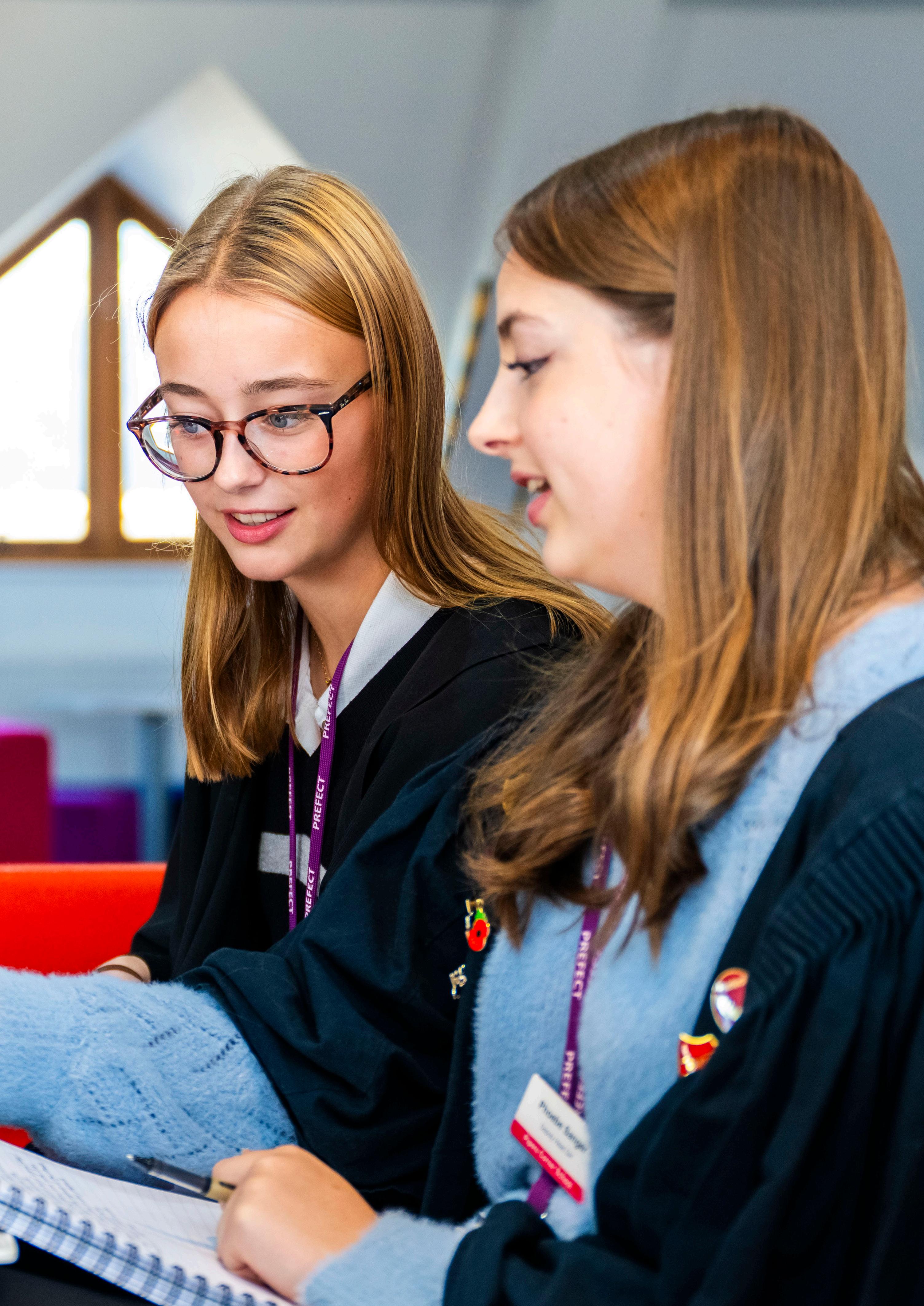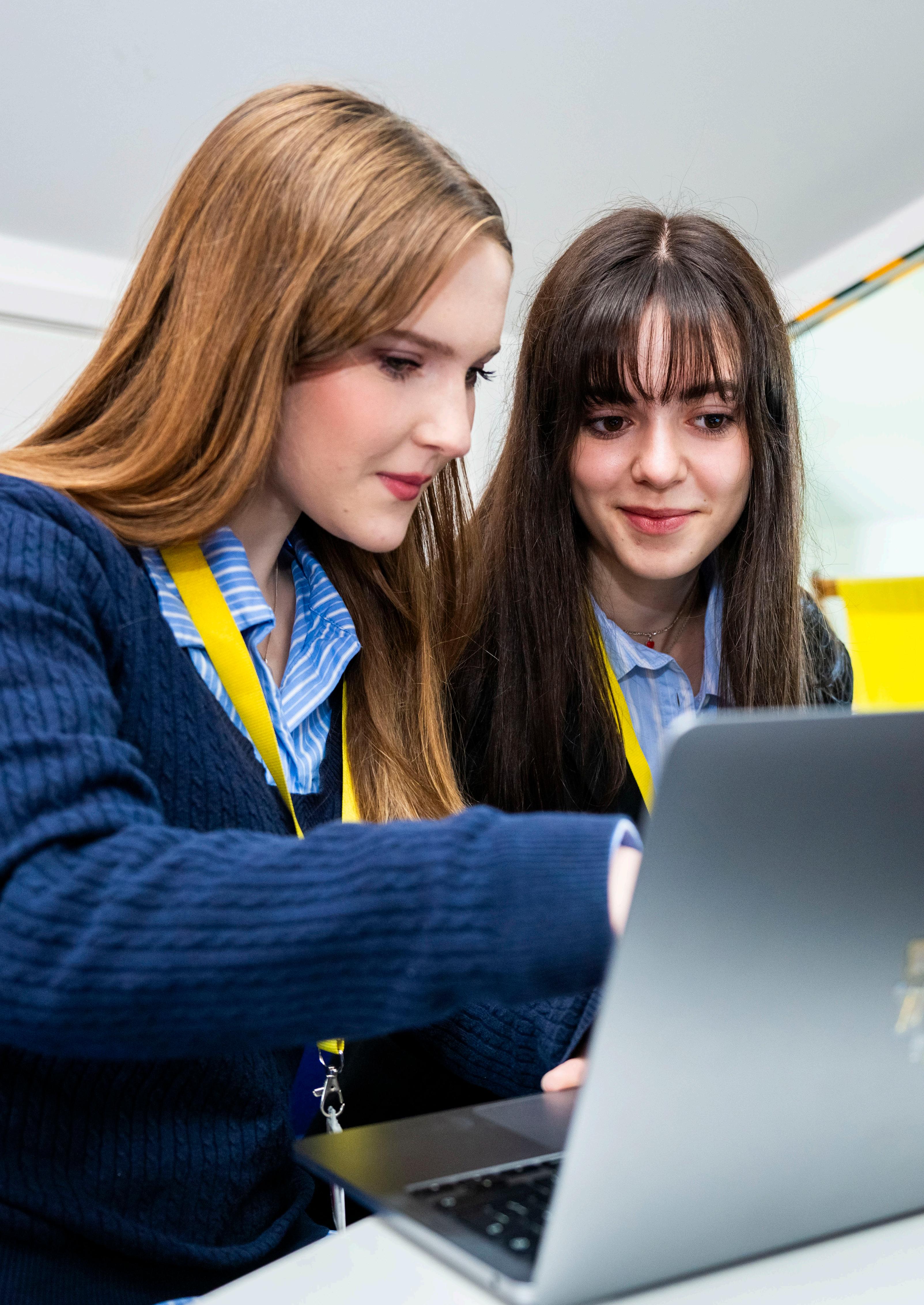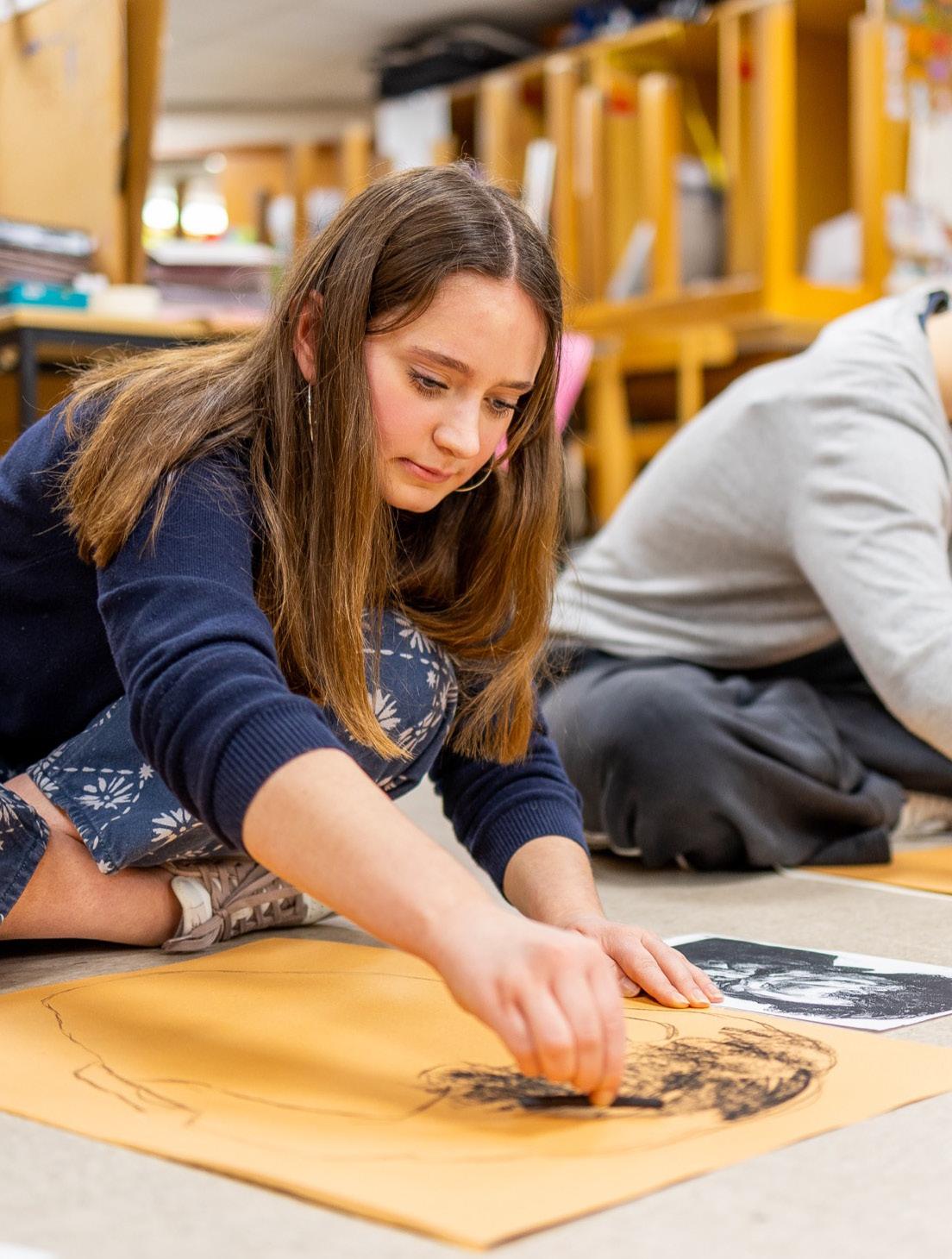
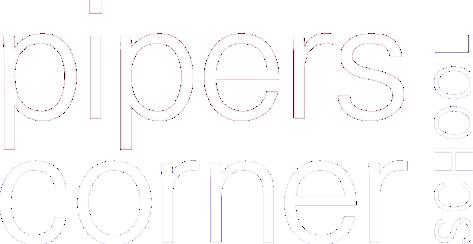
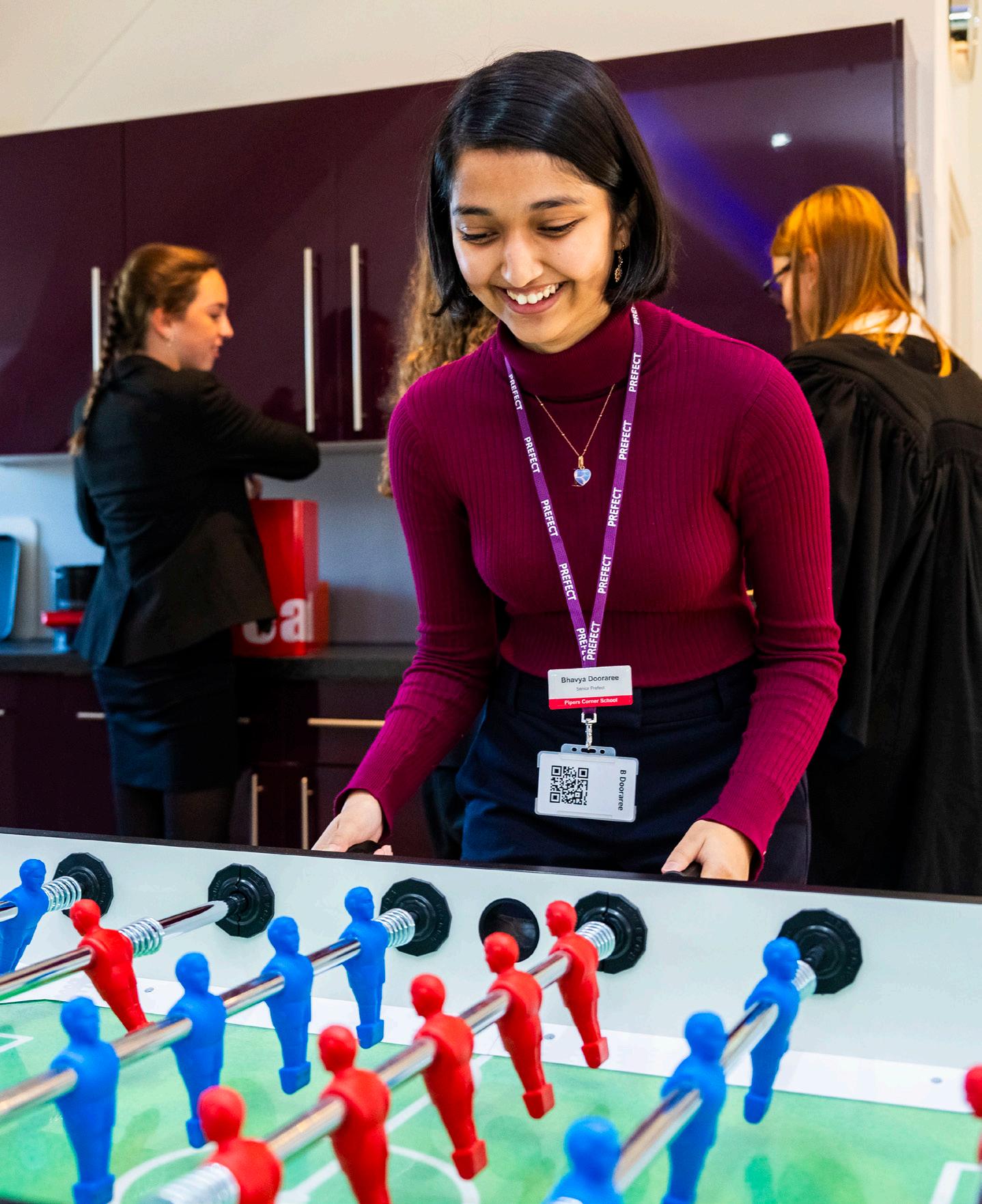





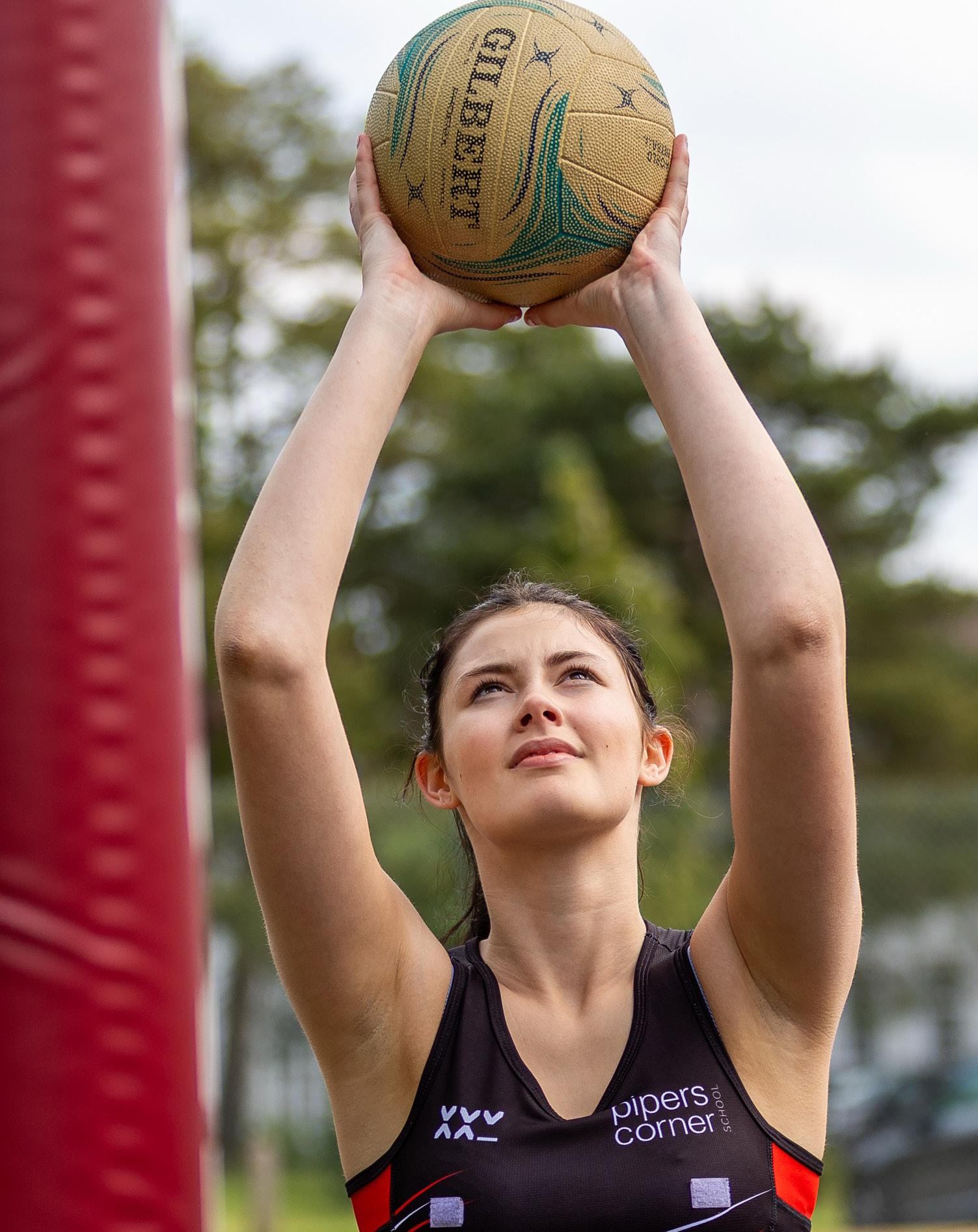
We encourage our students to take three AS Level qualifications - although a small number do take four - which are externally examined at the end of the Lower Sixth. In the Upper Sixth they will usually continue with three subjects at A Level.
All of the A Level qualifications are linear, which means that the full course will be externally examined at the end of the second year of study (Upper Sixth).
Students entering the Sixth Form need to have achieved at least five GCSEs, Grades 9 to 4 including Mathematics and English. Furthermore, it is usually necessary to have a minimum of Grade 6 or 7 in the subjects students wish to study at A Level. In some subjects (such as Sciences, Mathematics and Languages), achieving a Grade 9 to 7 at GCSE is strongly advised (please refer to the individual course pages for specific information). However, we always consider each student’s application individually in order to construct the best possible course combination.
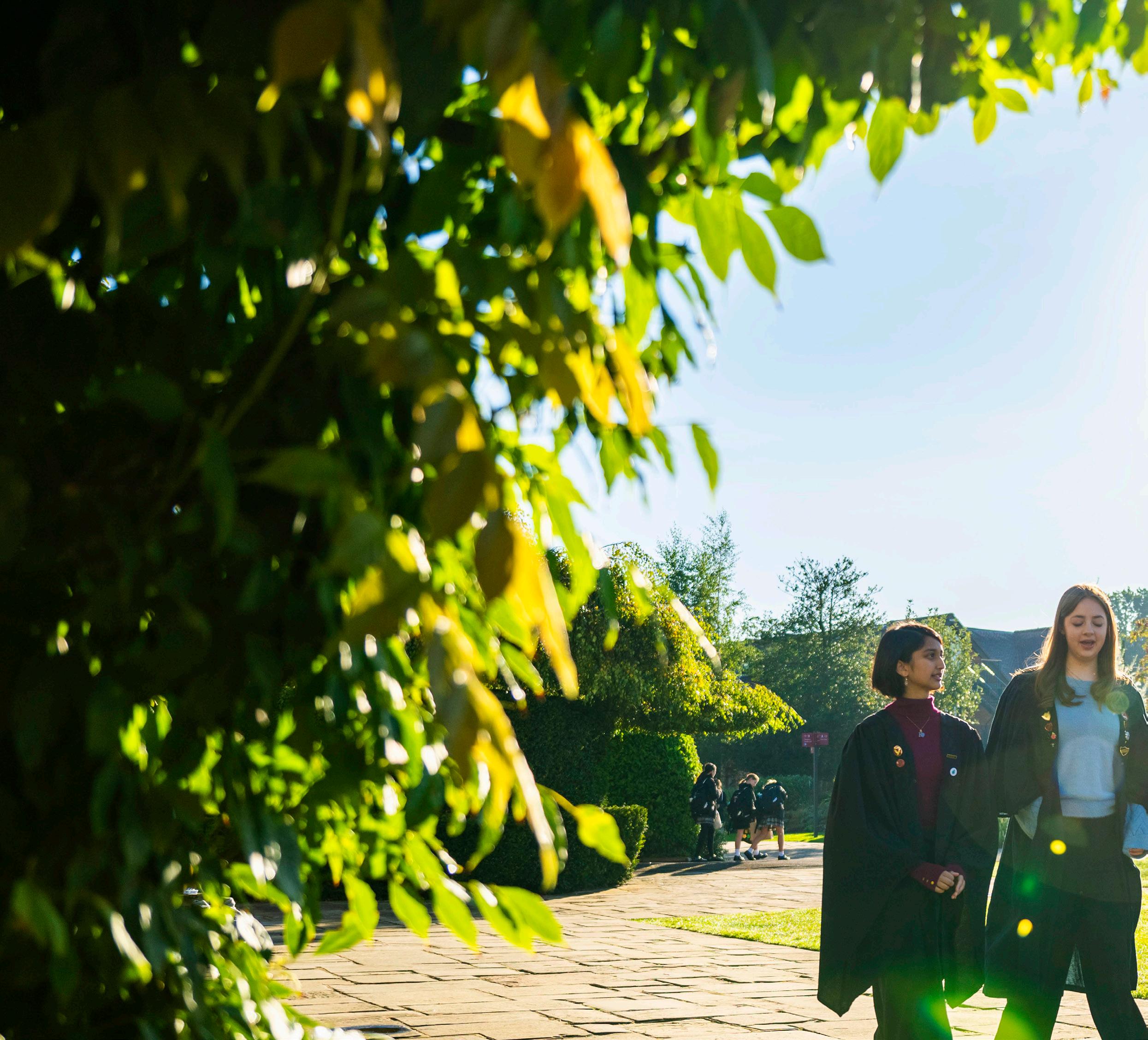
• Choose the subjects you think you can do best in – it is the nature of your A Level grades which determines your university choice.
• Choose subjects which you like, will enjoy studying and for which you have the motivation and interest to engage in additional research and background reading.
• Research your subjects and the course content thoroughly.
• Look ahead to possible degree courses and careers, but do not be too narrow in this. Don’t commit yourself to areas of study for which you have no enthusiasm because of a career plan which you may wish to change later on.
• Do not select on narrow definitions of “usefulness”. It is very difficult to prove that one subject is more useful than another.
• Listen to advice offered by staff, subject teachers, current Sixth Form students, parents and professionals.
• Think about breadth – consider the opportunity to have variety in your studies.
Disclaimer: Whilst every effort is made to ensure the information within this guide is correct at the time of printing, some details may be subject to change.
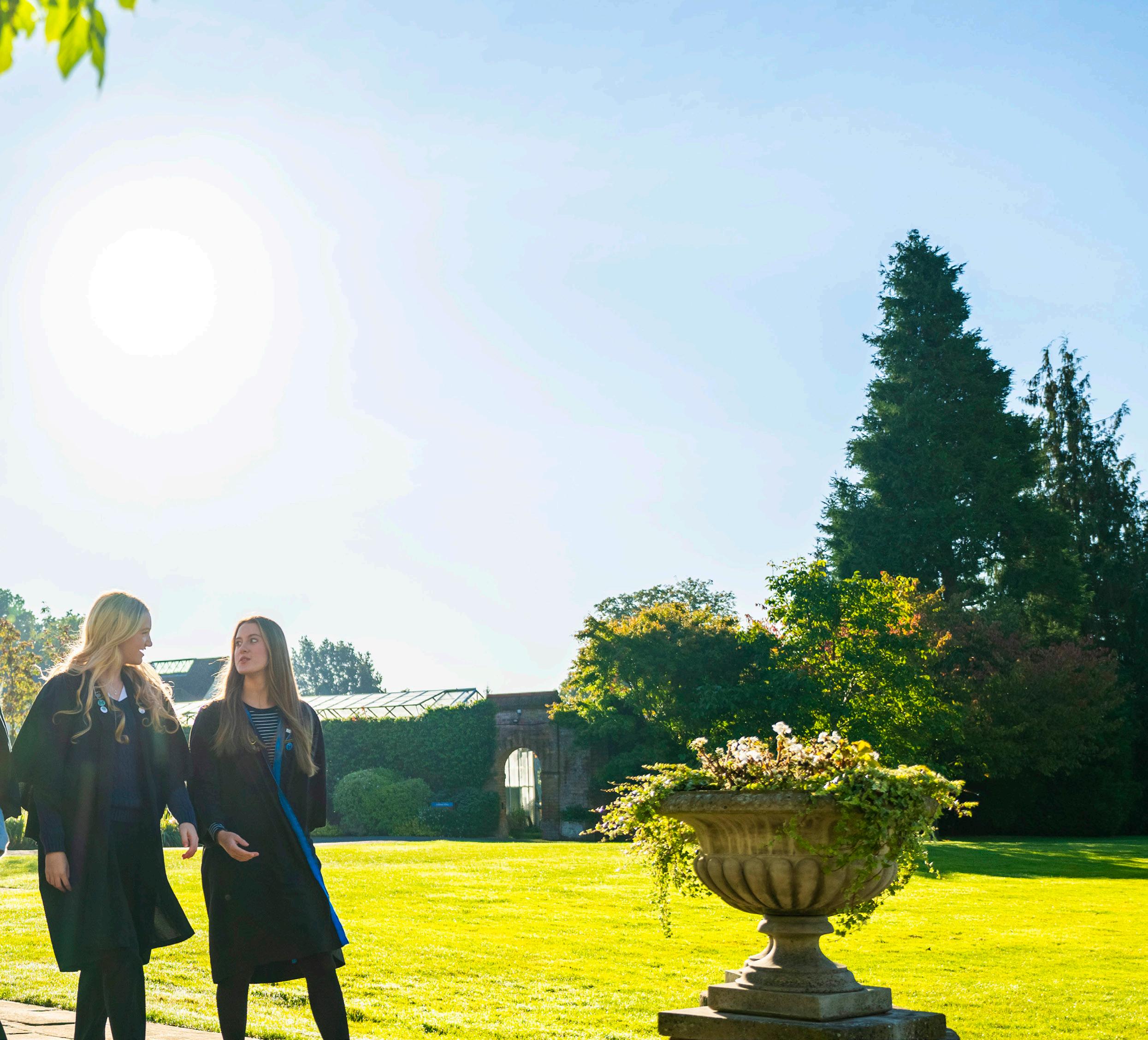

Taking an A Level in Art and Design will help you to develop a number of new skills as well as developing your creativity and independent thought. The various areas of study will enable you to learn how to express yourself visually. National and international study trips will allow you to experience historical and contemporary artists’ work first hand and to learn in an interactive way through guided tours and art workshops.
In Year 12, from September to May, students build up their AS portfolio currently based on the theme ‘The Five Senses’. Students develop their skills and techniques over the year in a wide range of media and processes including drawing, painting, printmaking, photography, mixed-media, ceramics, sculpture and life-drawing. ‘The Five Senses’ portfolio is entered for AS Level (worth up to 100% of AS grade) at the end of their first year. A selection of this work is adapted and added to in their second year based on the students’ own chosen Personal Investigation direction (worth up to 60% of A Level grade including Related Study). After their Personal Investigation is completed, they start their Externally Set Task in the February of Year 13 (worth up to 40% of A Level grade).
In Art, we aim to guide all our students to become increasingly confident in using a wide range of drawing, painting, printmaking and sculptural techniques in imaginative ways.
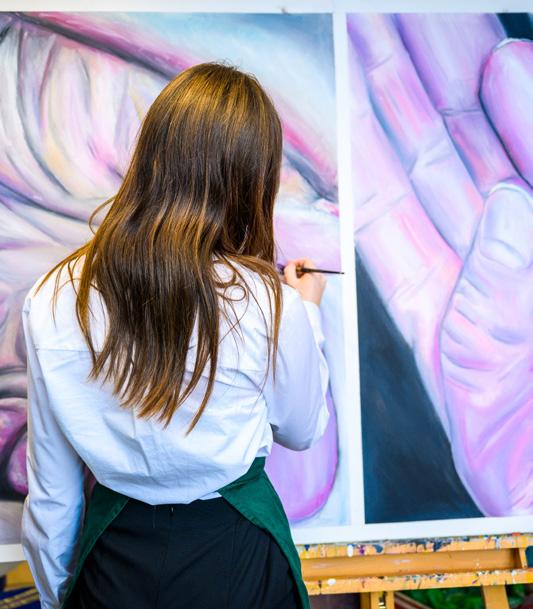

Year One
Component 1: Personal Investigation
Students will produce a portfolio of practical work showing their personal response to a selected theme.
This portfolio work is internally assessed and externally moderated.
Year Two Assessment
Component 1: Personal Investigation
Worth up to 100% of the AS Level Grade.
Component 2: Externally set assignment
Students will produce two elements:
1. A portfolio of practical work showing their personal response to either a starting point, brief, scenario or stimulus, devised and provided by the student or centre.
2. A related written study of a minimum of 1,000 words.
Students produce work in response to one of OCR’s seven written and visual starting points, briefs and stimuli.
Worth up to 120 marks (60% of A Level).
Preparatory work starts in early February and continues until the first day of the 15 hours of supervised time. Worth up to 80 marks (40% of A Level).
A student who enjoys expressing their ideas, feelings and thoughts in a visual way would really enjoy the A Level Art course we run. Ideally the student is open to experimenting and exploring a wide range of artistic media, techniques and taking creative risks. A student’s love of art may have been further inspired by visiting galleries to see artists’ work. It helps a lot if a student is self-motivated, and they are willing to work independently, at times, on long-term projects with teacher guidance. Ideally the student can manage their time effectively, especially when developing a personal portfolio. It is useful if a student has the ability to reflect thoughtfully on their own work. An interest in art from the past and present is important as a source of inspiration for students’ portfolio work.
You will build on the knowledge gained at GCSE in Art and become much more confident with expressing your ideas visually through your own artwork. Your artistic skills will improve greatly as you experiment with materials, techniques, and styles. You will develop a strong, personal portfolio that can be used for university or job applications in a wide range of creative fields. You will learn to write about, analyse and interpret artworks, both produced by yourself and others, developing a deeper understanding of artists. You will get a sense of satisfaction as you produce work that increasingly not only shows off your improved artistic skills but also reflects your growing ability for personal expression.
The skills needed include the ability to generate original ideas and the willingness to take creative risks and think outside the box. Artistic skills including amongst other things; drawing, painting, printmaking and ceramics are useful to have been developed as far as possible at GCSE Level. Understanding the artistic elements of what makes a piece of art successful such as composition, colour theory, texture and form is useful. Experience of investigating artists, movements, and themes is important. The ability to reflect on your own art will help you progress quicker.
There are many career pathways that a student who has studied Art at A Level can take. As well as preparation for an undergraduate degree course in a creative field, A Level Art can be one of the stepping stones to a career in Fine Art, Photography, Graphic Design, Architecture, Fashion, Illustration, Animation, Art Therapy and Museum and Gallery Work.
Students are encouraged to appreciate and analyse the work of artists from different eras and cultures. A big part of this is visiting galleries to see art first-hand. School gallery trips and art workshops are organised regularly. Trips are optional but actively encourages. The cost for national trips and art workshops varies but an approximate cost would be £30-£40. The cost of international trips again varies, and an approximate cost would be £1000 - £1300 but could be more, subject to the destination. Students often find that buying educational cost materials and equipment through the department can be cheaper than internet purchases. A list of materials and equipment that we stock is available in the art studios. Materials and equipment purchases are written down by students and later disbursed onto termly parental bills.
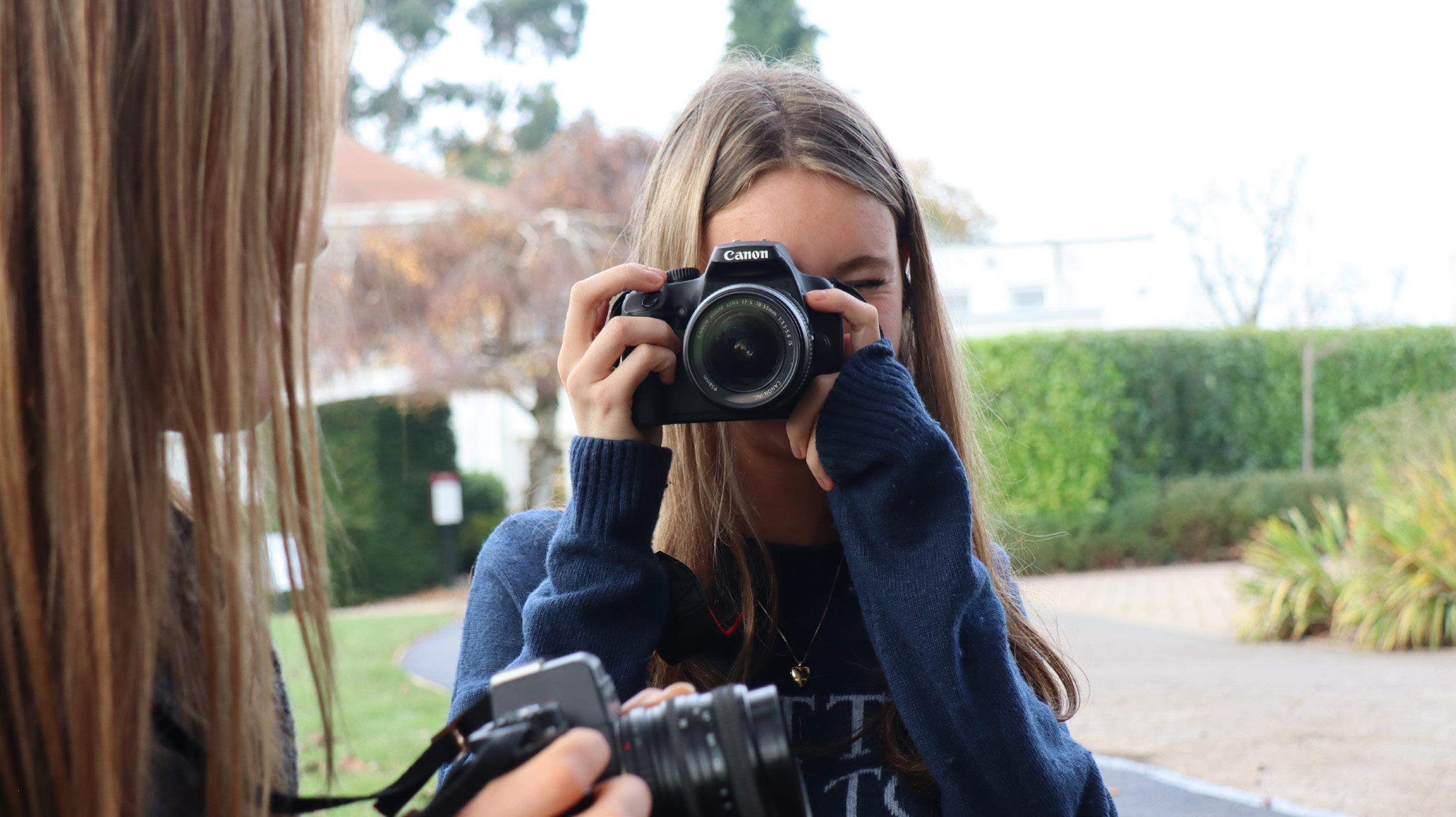
Students will cover skills such as composition in Photography; understanding and application of scale appropriate to the chosen work and direction relevant to learners’ intentions; applying formal elements such as colour, tone, texture, shape and form; selecting, editing and highlighting photographic images; using appropriate visual language and terminology; manipulating imagery and/or understanding and using relevant conventions and genres.
Students will learn to explore, research and acquire techniques and develop their skills, knowledge and understanding in a range of photographic media.
They will explore relevant images, artefacts and resources relating to traditional and digital photography. Students will get the chance to use traditional methods such as darkroom photography and digital techniques to produce images. Drawing skills will be explored when appropriate as a way of recording and communicating intentions, ideas and emotions in the context of Photography.
Brief summary of what happens in Year 12
In Year 12, from September to May, students build up their photographic portfolio currently based on the theme ‘Unusual Viewpoints’. Students develop their skills and techniques over the first year in a wide range of media and processes including experimental classroom photography, darkroom photography and computer manipulation. The ‘Unusual Viewpoints’ portfolio is entered for AS Level (worth up to 100% of the AS grade) at the end of their first year. A selection of this work is adapted in their second year based on the students own Personal Investigation direction (worth up to 60% of the A Level grade including Related Study) before they start their Externally Set Task in the February of Year 13 (worth up to 40% of the A Level grade). In Photography, our aim is for every student we teach to become increasingly confident in using a wide range of darkroom, experimental and digital photographic techniques in imaginative ways.
GCSE
and/or
Year One Assessment Content Details (subject to change)
Personal Investigation
Component 1: Personal investigation
Students will produce a photographic portfolio of practical work showing their personal response to a selected theme. This portfolio work is internally-assessed and externally moderated.
Worth up to 100% of the AS Level grade.
Component 2: Externally Set Task
Students will produce two elements:
1) a portfolio of practical work showing their personal response to either a starting point, brief, scenario or stimulus, devised and provided by the student or school.
2) a related written study of a minimum of 1000 words.
Students produce work in response to one of the board’s seven written and visual starting points, briefs and stimuli.
The Personal Investigation is worth up to 120 marks (60% of A Level).
The Externally Set Task is worth up to 80 marks (40% of A Level).
A student who is interested in how images can communicate ideas, emotions, and narratives would be perfect for an A Level in Photography. Someone who enjoys observing the world and capturing moments from unique perspectives is just what we are looking for. You will need to be willing to try different techniques, styles, and editing processes and open to exploring both digital and traditional photographic methods. In terms of your study skills, being independent and self-motivated are vital. A desire to learn how to use cameras, lighting, and editing software will also be important. To progress as far as possible, an interest in the history and theory of photography will stand you in good stead.
Studying Photography at A Level will enable you to learn how to communicate your ideas and thoughts through your own photographic imagery. One of the aims of the course, whilst you develop your portfolio of work, is to enable you to develop your own personal style and approach to this art form. Technically, you will become more proficient at using photographic tools such as cameras, lighting, editing software and enlargers, through a mixture of teaching and hands-on experience. You will learn how to compose, shoot, and digitally enhance photographs effectively. You will also improve your ability to think critically and visually analyse your own and other photographers’ work. Throughout the course you will be producing work for a high-quality portfolio that can support any applications you might make to universities or indeed for a career in the creative sector.
The skills needed when studying A Level Photography include the ability to generate original ideas and the willingness to take creative risks and think outside the box. Photographic skills including experience with using cameras, lighting, and editing software would be useful. Understanding the key elements of what makes a photograph successful including composition, tonal range, colour variance is useful. Any previous knowledge gained about photographers and photographic genres will also be helpful. The ability to reflect on your own photographic images will help you make progress more rapidly.
There are many career pathways that a student who has studied Photography at A Level can take. As well as preparation for an undergraduate course in a creative field, A Level Photography can be one of the stepping stones on the path to a career such as Photography (commercial, editorial, fine art), Film and Media, Fashion, Advertising, Visual Arts and Journalism.
Students are encouraged to appreciate and analyse the work of photographers from different times and cultures. A big part of this is visiting galleries to see art firsthand. School gallery trips and photography workshops are organised regularly. Trips are optional, but the cost for national trips and art workshops varies but an approximate cost would be £30-£40. The cost of international trips again varies, and an approximate cost would be £1000 -£1300 but could be more, subject to the destination. Students often find that buying educational cost materials and equipment through the department can be cheaper than internet purchases. A list of materials and equipment that we stock is available in the art studios. Materials and equipment purchases are written down by students and later disbursed onto termly parental bills.

Textiles will provide you with the opportunity to develop and use your creative and analytical skills to explore the world around you. Working across a range of media to start developing your practical expertise you will build skills across a broad range of textile techniques.
Students complete the AS Level, which is assessed entirely through coursework. They are given one broad theme—currently Dirt and Decay, though this changes each year. The course is divided into two projects, Texture and Colour, during which students take part in a variety of practical workshops to explore innovative fabric techniques and processes. These include rust dyeing, papermaking, sewing with metal, screen printing, Gelli printing, photo manipulation, and more. Students document their progress in sketchbooks and produce A1 sample and design boards. Throughout, they are encouraged to develop a personal interpretation of the theme, incorporating independent exploration and research into their creative journey.
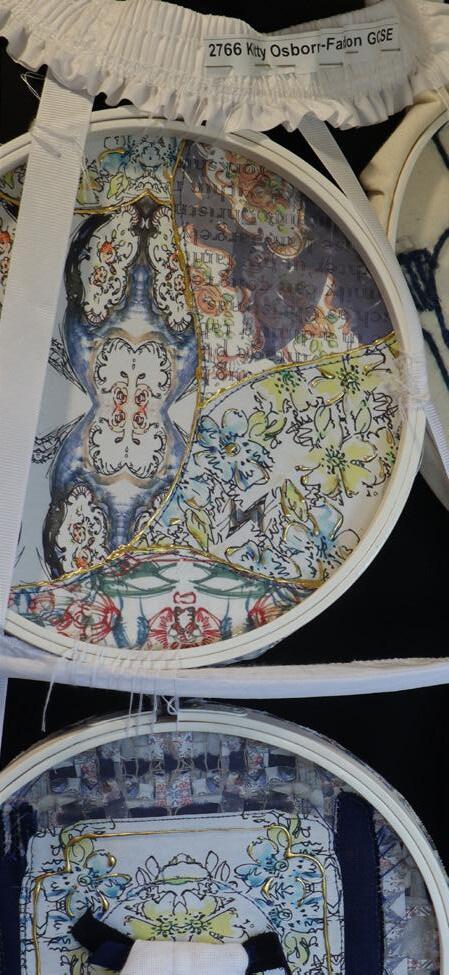
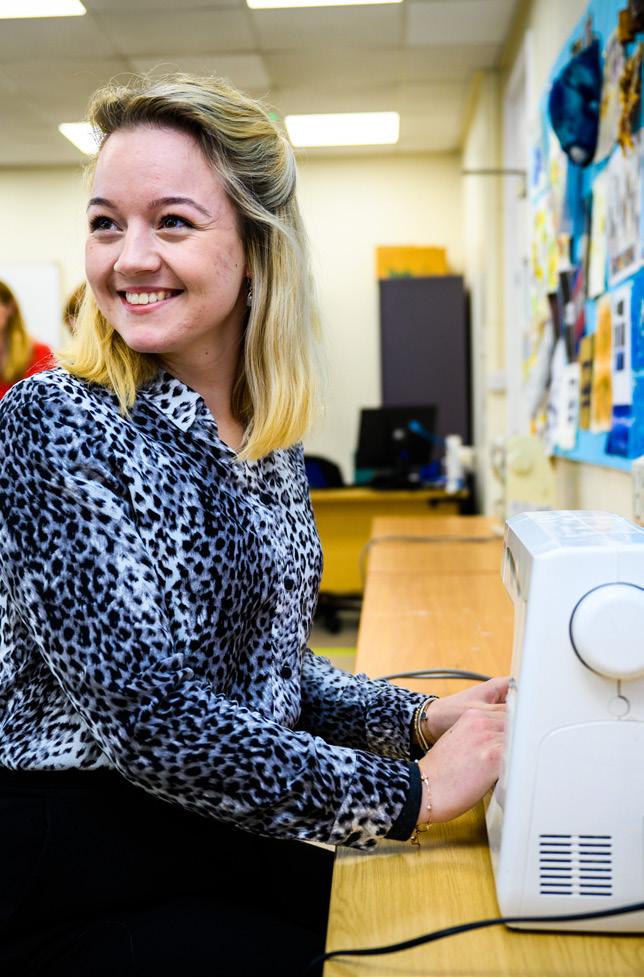
Grade 7-9 GCSE Art and Design: Textiles and/or GCSE Art.
Component 1: Personal Investigation
Details
Students start working on an internally set theme from September and build up their preparatory work over the course of the year. Students start with a series of workshops and experiment with a wide range of media and processes.
Several outcomes are produced across the year which all go towards their Personal Investigation.
Component 1: Personal Investigation
Internally assessed and externally moderated. 80 marks (100% of AS Level).
Component 2: Externally set task
Students will produce two elements:
1. A portfolio of practical work showing their personal response to either a starting point, brief, scenario or stimulus, devised and provided by the student or centre.
2. A related study; an extended response of 1,000-3,000 words.
The early release paper will be issued on 1 February and will provide students with a number of themes, each with a range of written and visual starting points, briefs and stimuli.
Internally assessed and externally moderated. 120 marks (60% of A Level).
A response should be based on one of these options. 15 hours. Practical Exam. 80 marks (40% of A Level).
A student suited to Textiles A Level is highly-independent and proactive, taking the initiative to explore new ideas and techniques. They should remain dedicated to the process, persevering through trial and error, even when it seems difficult. Thinking creatively and approaching problems from different perspectives is essential. Flexibility is also valuable, as it allows students to adapt to new challenges and embrace innovation within the subject. They should enjoy researching historical, environmental, political, and societal issues, adopt an outward-looking approach, and connect these influences to their own work.
Studying A Level Textiles equips students with a wide range of valuable skills that extend beyond the subject itself. They develop critical and analytical thinking as they evaluate materials, techniques, and practical solutions. Creativity is fostered through designing and producing unique projects, enabling students to express individuality, explore personal interests, and build confidence in their identity. Practical making skills provide hands-on experience, while planning and time management are strengthened as students manage multiple tasks and deadlines. Resilience is also developed, as they learn to overcome challenges and refine their work. In addition, transferable skills such as problem-solving, attention to detail, and collaboration prepare students for diverse careers and further study. They also gain knowledge of artistic movements and an appreciation of historical and cultural textiles.
To study Textiles A Level successfully, students benefit from having a range of key skills. They should be creative and practical, with a passion for design and problem-solving, as well as organised and consistent in managing their time and resources. Confidence in using a sewing machine independently is essential. Curiosity and enthusiasm for experimenting with different materials and processes are also important. In addition, strengths in drawing, colour, and composition support the development of imaginative and visually engaging designs.
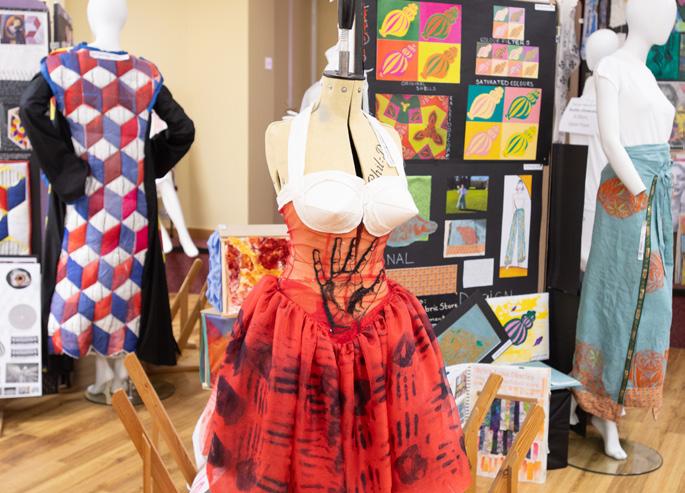
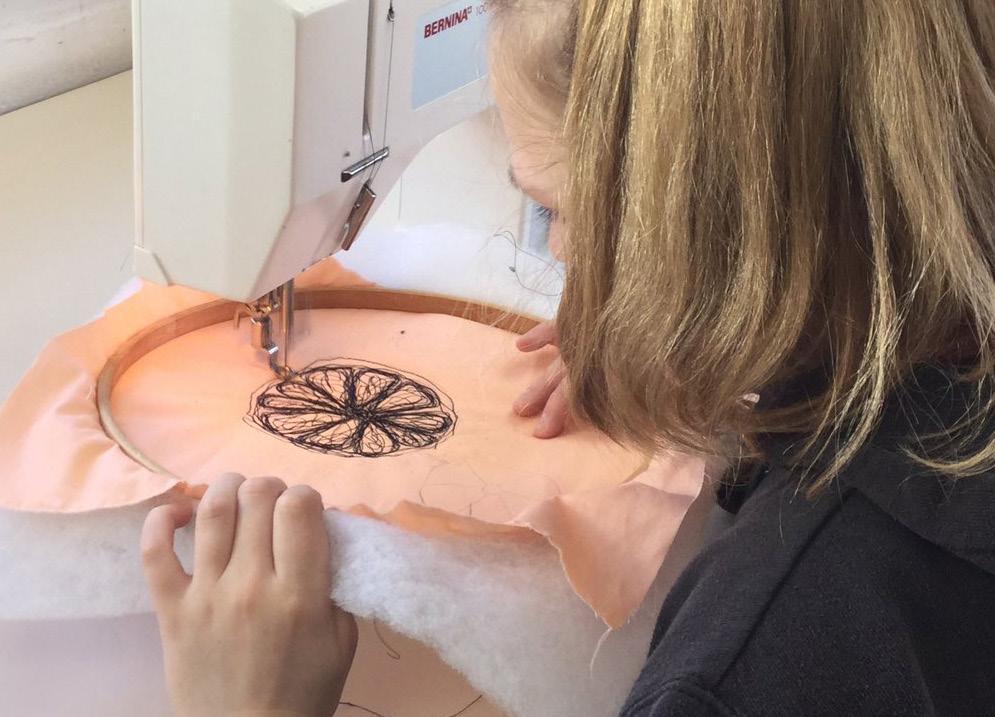

Studying Textiles can lead to a career in Fashion (including Designer, Buyer, Merchandiser, Journalist). It can also lead to careers such as Textile Designer, Fabric Technologist, Garment Technologist, working with galleries, research or textile restoration and much more
A £50 annual cost will be charged for additional materials and specialist equipment used for AS and A Level. Annual day trips to visit galleries, exhibitions and events are arranged by the department and attendance is encouraged, these cost approximately £40. Textiles international study tours are usually offered biannually, and these vary in price depending on the destination. Prices are approx. £1000-£1300; places are limited and it is not compulsory.
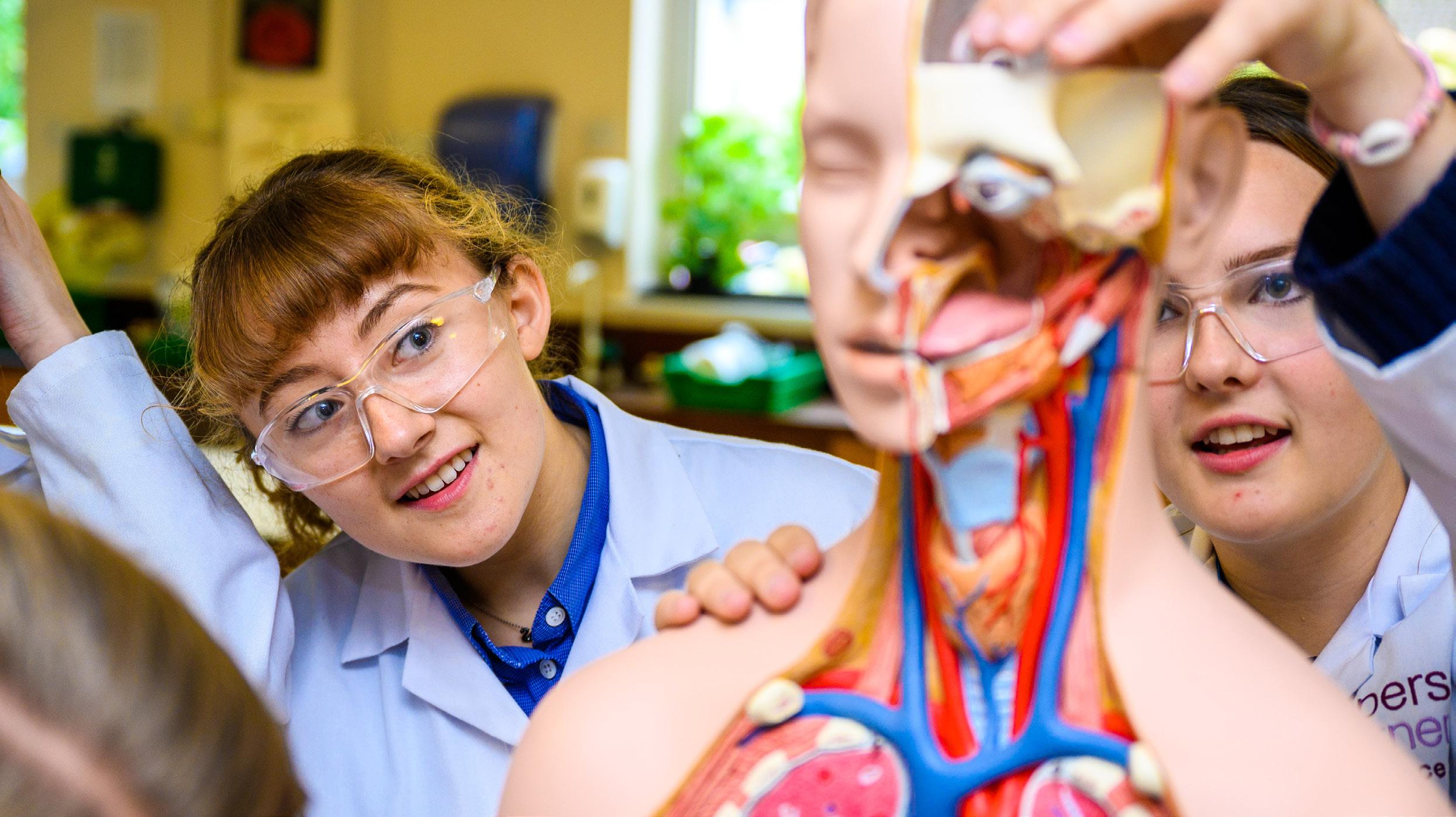
According to Goldilocks Hypothesis, our planet is not too big or small and is just the right distance from the Sun, enabling it to support life. You could summarise the challenges that all living organisms face as, finding a way to get food and release energy from it, avoiding being eaten and reproducing. Biology is the study of all of the processes that occur in living organisms that enable them to do this and it turns out that once we understand these basic concepts, they are equally applicable to a snail or an elephant. From the tiniest molecules in your cells to the vast complexity of ecosystems, A Level Biology takes you on an incredible journey through the science of living organisms. You will unlock the secrets behind DNA, explore how organisms survive and adapt, and investigate the cutting-edge breakthroughs in genetics, medicine, and environmental science.
With a blend of theory and practical experiments A Level Biology doesn’t just teach you facts, it challenges you to think like a scientist.
You’ll develop skills in analysis, problem-solving, and critical thinking, as you dive into topics like cellular processes, evolution, physiology, and ecology.
Brief summary of what happens in Year 12
The Year 12 Biology course will be your first step into the fascinating world of Biological Science. In an exciting and hands on year you will:
Discover the building blocks of life | Delve into the world of DNA, enzymes, and cells to understand how organisms function at their most basic level.
Explore the human body like never before | Learn how your heart pumps blood, how your lungs extract oxygen, and how your immune system defends you from invaders.
Investigate the living world | Study plant biology, biodiversity, and the impact of disease, learning how life is connected and constantly evolving.
Develop real lab skills | From microscopy to experiments on enzymes and osmosis, you will gain practical skills that real scientists use every day.
Analyse and evaluate | Interpret data, explain patterns, and solve biological problems, just like researchers working on today’s biggest health and environmental challenges.
GCSE Biology at Grade 9-7 is preferred or 9-7 in the Science Trilogy GCSEs.
Component 1
Component 2
Breadth in Biology Covering Modules 1-4.
Depth in Biology Covering Modules 1-4.
Component 1
Component 2
Component 3
Written exam: one hour, 30 minutes.
70 marks (50% of AS Level).
Written exam, one hour, 30 minutes.
70 marks (50% of AS Level).
Component 4
Biological Processes Covering Modules 1, 2, 3 and 5.
Biological Diversity Covering Modules 1, 2, 4 and 6.
Unified Biology Covering content from all Modules 1-6.
Practical Endorsement in Biology.
Written exam: two hours, 15 minutes.
100 marks. (37% of A Level)
Written exam: two hours, 15 minutes.
100 marks (37% of A Level).
Written exam: one hour, 30 minutes.
70 marks (26% of A Level).
Non-examination assessment.
A Level Biology would be a great subject for you if you are genuinely curious about how the human body, plants, animals, and ecosystems work and you enjoy asking questions like, ‘Why are big, fierce animals rare?’ It helps to be analytical and observant so that you can spot patterns, interpret data from experiments, and draw conclusions. A good attention to detail is also important for practical work and exams. Enjoying experimental work is helpful as there is a significant amount of hands-on learning in the lab. Being accurate and methodical when doing this is also important. Good revision skills will help you to memorise facts, processes (like photosynthesis) and definitions; students who can organise and revise material effectively will do well. And finally, much of Biology is about communication. You will need to explain complex processes clearly, for example describing how the immune system works or how DNA is replicated.
Besides being a strong foundation for university, A Level Biology develops many transferable skills that employers look for:
Data Analysis | The ability to interpret graphs, experimental data, and carry out statistical tests which are useful skills in research, healthcare, and even business.
Problem Solving | Being able to apply your knowledge to unfamiliar situations
Communication Skills | Explaining complex ideas clearly, both in writing and verbally which is very helpful for teamwork and presenting ideas in any job.
Scientific Thinking | You will learn to apply logic, evaluate evidence, and draw conclusions, which are skills useful in many careers, not just science.
Organisation and Time Management | You will build time management skills, and study habits that will help in further education and throughout your life.
Professions that require a good understanding of Biology usually involve working with living organisms, health, the environment, or science research. These are some common careers where biology knowledge is essential:
Health and Medical Professions
Doctor (Medicine) | Dentist | Veterinarian | Nurse | Pharmacist | Physiotherapist | Biomedical Scientist
Science and Research Careers
Biologist | Microbiologist | Biochemist | Ecologist | Marine Biologist | Environmental Scientist | Forensic Scientist | Biotechnologist | Geneticist | Wildlife Conservationist
Other Biology-Related Careers
Agricultural Scientist | Food Scientist | Zoologist | Botanist | Pharmacologist | Science Educator/Teacher | Science Communicator/Writer
You will visit a field centre to learn and carry out key ecological sampling techniques. The cost of this will be approximately £200.
If you have some great ideas for new products or services, or perhaps want to work for a large company in areas such as marketing, finance, operations, human resources or management, then a Business A Level will provide you with the background knowledge and skills to get started.

Business is all around us, from the apps we use every day to the global brands we recognise instantly.
This course gives you the chance to step into that world and understand what makes organisations tick. You’ll explore real business challenges, debate current issues, and develop an enterprising mindset that will set you apart. It’s a subject that connects directly to everyday life and the wider world, making your studies both relevant and exciting.
Brief summary of what happens in Year 12
In Year 12, you’ll explore how businesses are set up and run, covering marketing, finance, operations, and human resources. You’ll learn how entrepreneurs spot opportunities, how businesses respond to markets, and how managers make effective decisions.
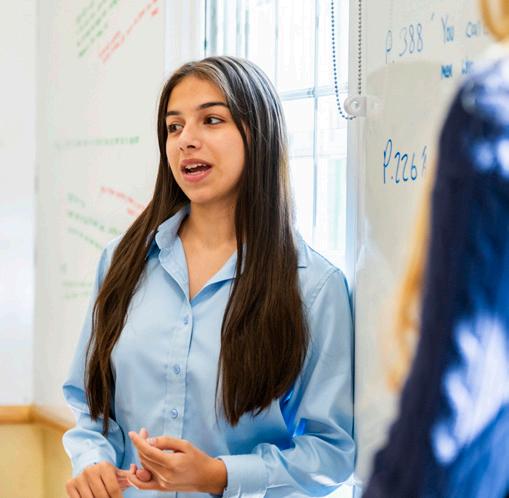
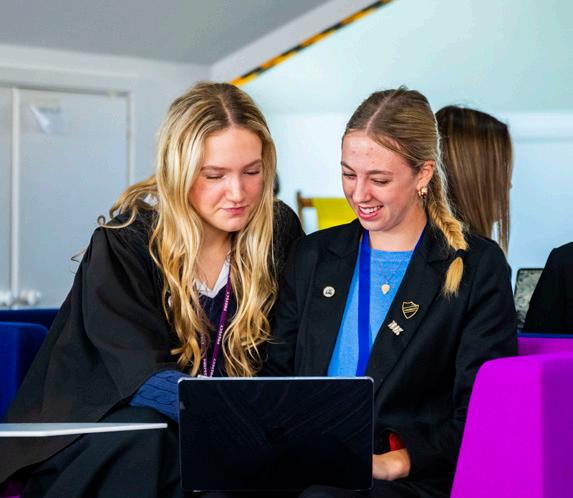
You do not need to have studied this subject at GCSE to take it at A Level; however, we require Grade 6 or above if taken at GCSE Level, or a Grade 6 in English and/or a humanities-based subject if students have not previously studied Business GCSE. A scientific mind is needed as well as a good use of English to express ideas clearly.
How will I be assessed?
Paper 1
Paper 2
Questions will be drawn from Theme 1 and from local, national and global contexts.
Questions will be drawn from Theme 2 and from local, national and global contexts.
Paper 1
Paper 2
Paper 3
Questions will be drawn from Themes 1 and 4, and from local, national and global contexts.
Questions will be drawn from Themes 2 and 3, and from local, national and global contexts.
Written exam: one hour, 30 minutes. 80 marks (50% of AS
Written exam: one hour, 30 minutes. 80 marks (50% of AS Level).
Written exam: two hours. 100 marks (35% of A Level).
Written exam: two hours. 100 marks (35% of A Level).
Covers content from across all four themes. Questions will be drawn from local, national and global contexts. This paper has a pre-release content to enable students to investigate an industry or market in which businesses operate.
Written exam: two hours. 100 marks (30% of A Level).
A Level Business is a great choice if you’re curious about how organisations work, enjoy problem-solving, or want to understand the world around you. It’s also ideal if you’re not yet sure what you want to do in the future; business complements a wide range of other subjects and gives you transferable skills for almost any career. After all, most people will work in or with businesses, or face real-life challenges like dealing with exchange rates when going on holiday or interest rates when buying your first home.
You’ll gain insight into how businesses start, grow, and succeed, as well as practical life skills. The course builds confidence in decision-making, critical thinking, and communication. All of which are valued by employers and useful in everyday life.
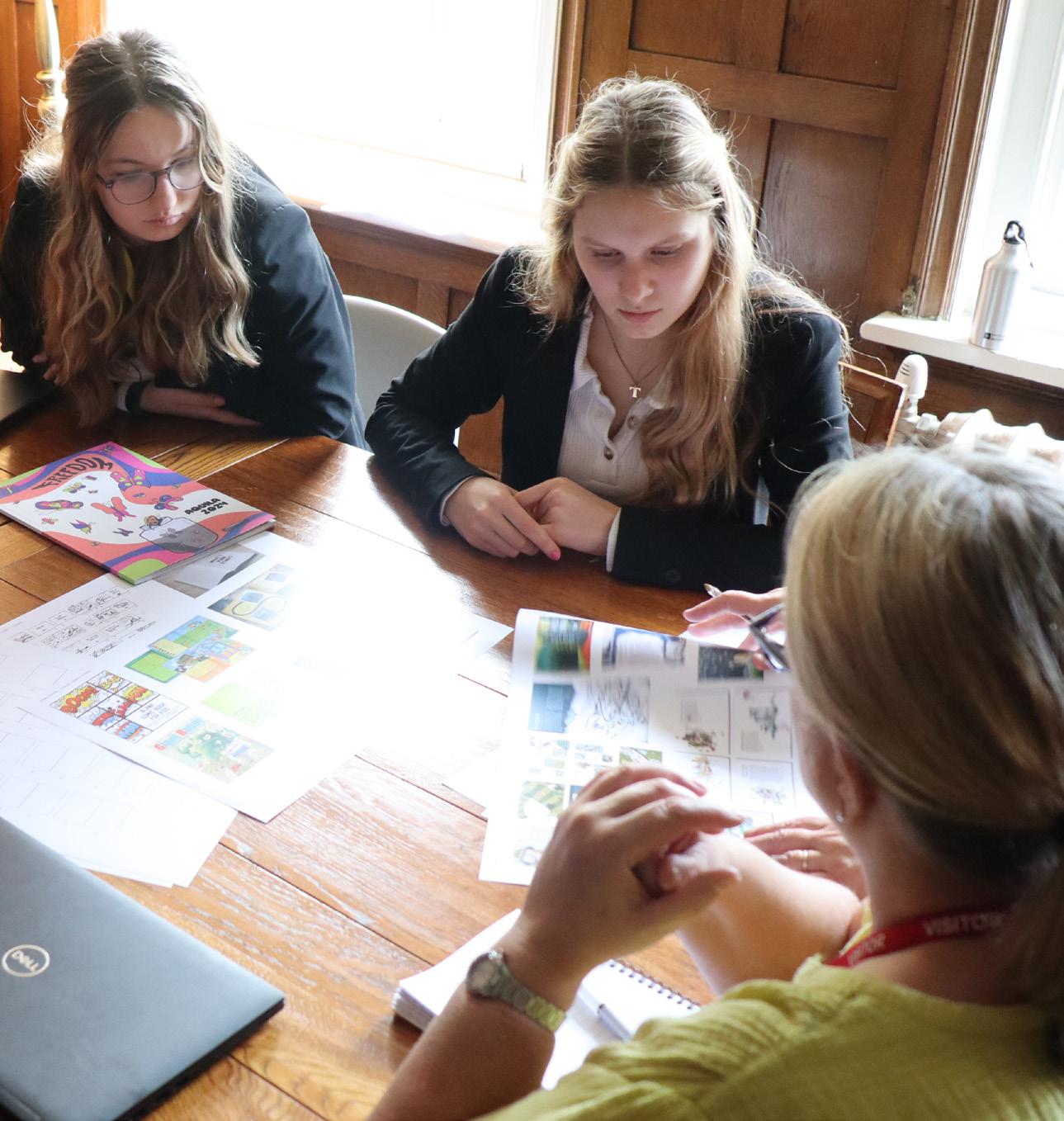
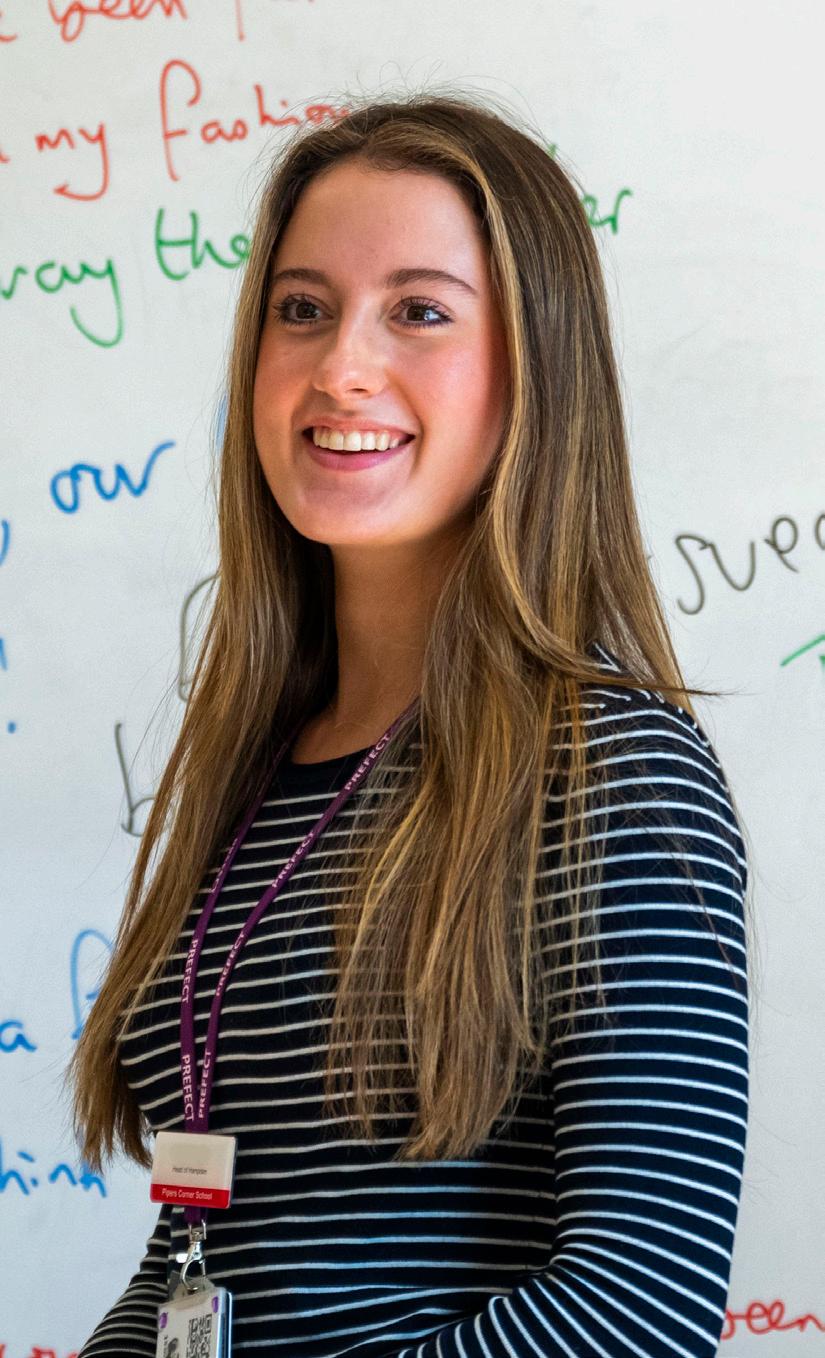
• Analytical thinking and problem-solving
• Confidence with numbers and data
• Clear written communication and evaluation
• Creativity and an interest in real-world issues
Business is one of the most versatile A Levels. It opens doors to careers in management, finance, marketing, human resources, law, consultancy, and entrepreneurship. Even if you choose a different career path, the skills and knowledge gained from understanding markets to making financial decisions, will be valuable throughout your working life.

If you’ve ever wondered how fireworks explode in different colours, how medicines cure disease, or how new materials are invented, then Chemistry is the subject that gives you the answers. This course is challenging, fast-paced, and incredibly rewarding. You’ll learn to think like a scientist: logically, creatively, and with curiosity. Chemistry doesn’t just teach you facts, it teaches you how to solve problems, how to analyse data, and how to think critically about the world around you.
A Level Chemistry is all about understanding the world at a molecular level. You will explore how atoms bond and react, why certain substances behave the way they do, and how we can use chemical reactions to create everything from fuel to food flavourings.
You will get hands-on experience in the lab, carrying out real experiments and developing skills that are not only essential for Science careers but also exciting and practical.
Whether you’re fascinated by forensics, intrigued by the design of new medicines, or just love finding out how and why things work then Chemistry is the subject for you!
Brief summary of what happens in Year 12
The year begins with a focus on atoms, compounds, and chemical bonding, helping students understand how substances are structured and how they interact. This leads naturally into a detailed study of the periodic table, where students learn how patterns and trends help explain the behaviour and properties of different elements. A key part of the course is quantitative chemistry, which involves mastering the calculations behind chemical reactions, such as reacting masses, concentrations, and yields.
Students also explore organic chemistry, covering important families of compounds including alkanes, alkenes, alcohols, and haloalkanes, and understanding how these molecules react and are used in real life. Alongside theory, there is a strong emphasis on practical work as students carry out regular experiments to develop their skills in observation, data collection, analysis, and evaluation. These practical sessions are not only essential for understanding the subject but also contribute to the Practical Endorsement component of the course.
All of these areas provide a solid foundation for the more complex and advanced topics studied in Year 13.
Component 1
Breadth in Chemistry Covering Modules 1-4.
Component 2
Depth in Chemistry Covering Modules 1-4.
Component 1
Component 2
Written exam: one hour, 30 minutes.
70 marks (50% of AS Level).
Written exam: one hour, 30 minutes.
70 marks (50% of AS Level).
Component 3
Component 4
Periodic Table, Elements and Physical Chemistry
Covering Modules 1, 2, 3 and 5.
Synthesis and Analytical Techniques Covering Modules 1, 2, 4 and 6.
Unified Chemistry Covering content from all Modules (1-6).
Written exam: two hours, 15 minutes.
100 marks (37% of A Level).
Written exam: two hours, 15 minutes.
100 marks (37% of A
Written exam: one hour, 30 minutes.
70 marks
Practical Endorsement in Chemistry. Nonexamination assessment.
GCSE Chemistry at Grade 9-7 or Grade 9-7 in the Science Trilogy GCSEs along with GCSE Mathematics at Grade 9-7. A scientific mind is needed as well as a good use of English to express ideas clearly.
A Level Chemistry suits students who are curious about how the world works on a molecular level, enjoy solving problems, and like practical science. If you’ve enjoyed GCSE Chemistry (or the chemistry parts of Combined Science), and you’re comfortable with Maths, you’ll likely enjoy A Level Chemistry. It also suits students who want to challenge themselves academically and are thinking about science-related careers.
Studying Chemistry will help you develop strong analytical, mathematical, and practical skills. It teaches you to think logically and critically, work methodically in a lab, and solve complex problems; all of which are highly valued by universities and employers. You will gain a deep understanding of the science behind materials, medicines, fuels, and the environment. It also keeps many future career doors open in Science, healthcare, engineering, and more.
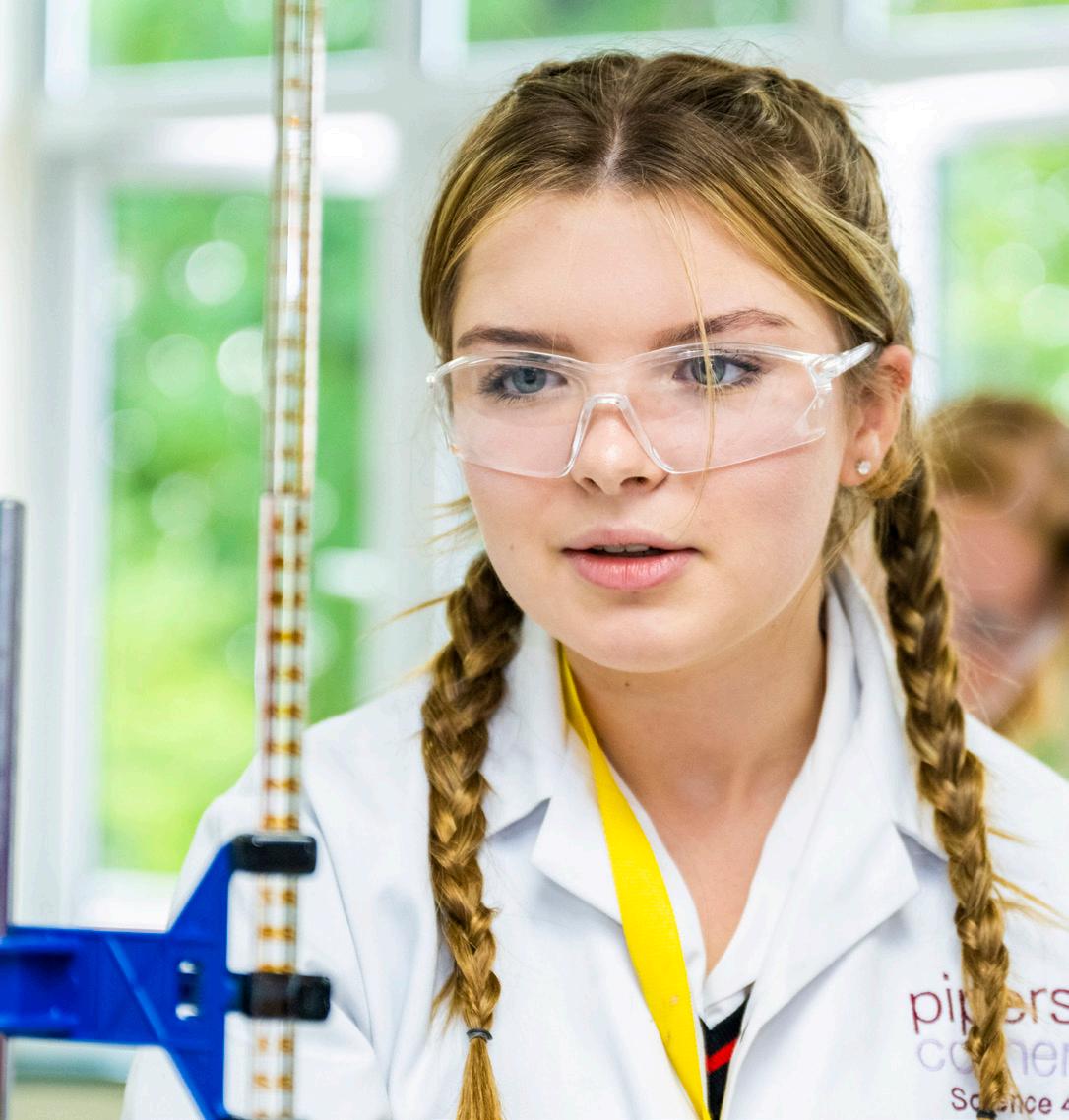

Studying Chemistry can lead to a career as a:
Doctor | Pharmacist | Dentist | Vet | Chemical Engineer | Toxicologist | Research Scientist | Forensic Scientist | Environmental Chemist | Food Scientist | Patent Lawyer (with a Science degree)
Even outside of pure Science, the analytical skills from Chemistry are valued in finance, law, and tech industries. Additional costs
£23 for a personalised lab coat.
Equivalent to A Level
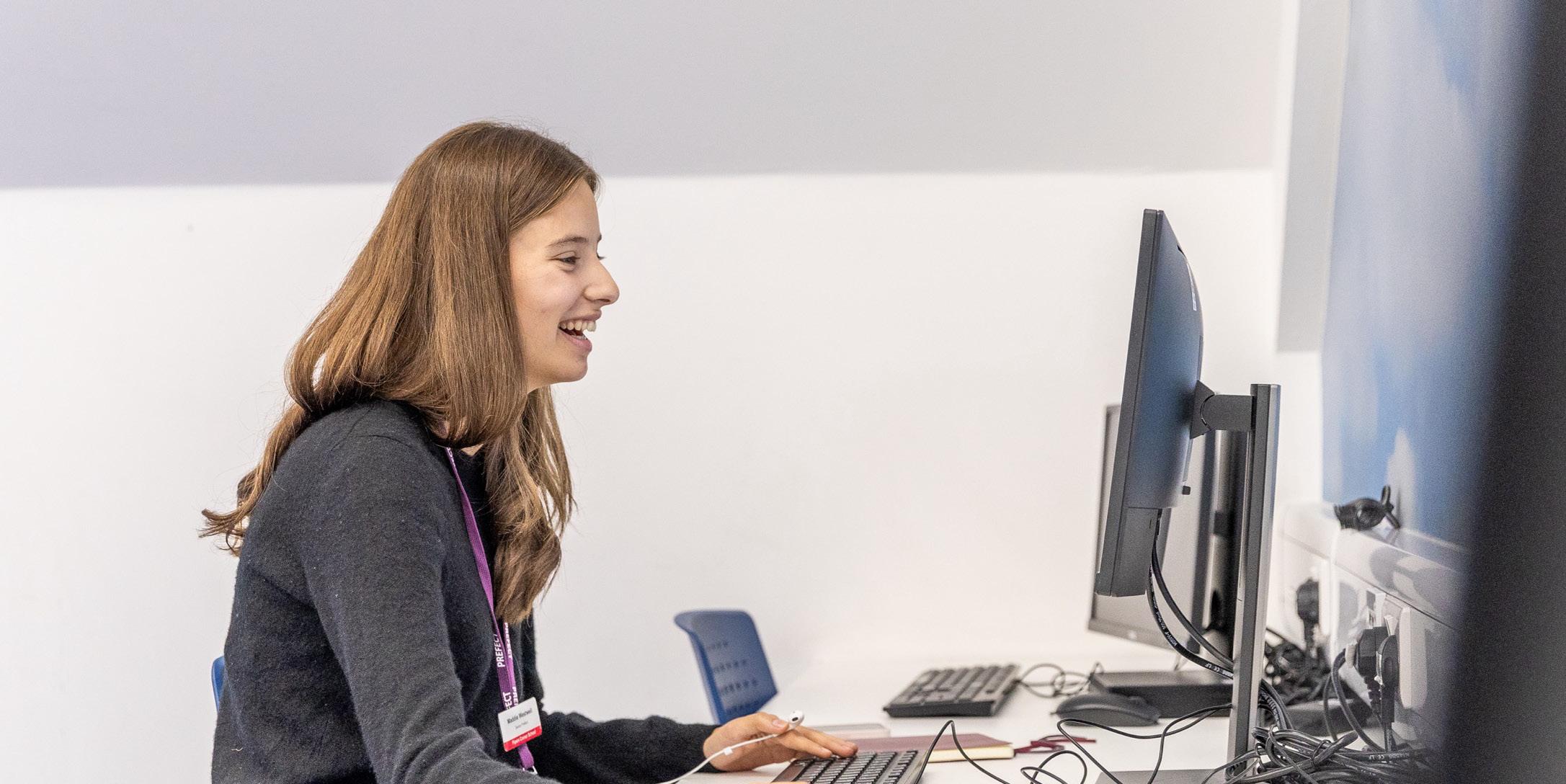
Studying Computing offers more than just academic knowledge – it helps you build a wide range of practical skills and personal qualities that are highly valuable in both everyday life and the workplace. Computing trains your mind to question, evaluate, and improve. You don’t just accept how things work – you figure out why and how to make them better.
Technology is always changing. You’ll become someone who isn’t afraid to learn new things and evolve with the times.
You’ll explore topics like cybersecurity, data privacy, and AI ethics, developing a sense of responsibility and digital citizenship.
Choosing Computing isn’t just for people who want to become programmers or tech professionals. It’s for anyone who wants to become a confident, capable, and adaptable problem-solver in the modern world. Whether you go into business, healthcare, design, or even law – the digital and thinking skills you gain are invaluable.
Brief summary of what happens in Year 12
You will study the basics of human/computing interactions. You will learn about the about the different stages that developers go through to produce a working software application, how developers scope application requirements, and the design features which make applications intuitive for users.
You will also learn how to communicate effectively with clients.
Paper
Entry requirements
Grade 5 in Mathematics and English.
Computing suits students with an interest in technology and problem-solving and a desire to understand how people connect with IT. You need to enjoy the creative side of IT as well as the technical.
The aim of the course is to give you skills in User Experience (UX) and User Interface (UI), which is the connection between people and tech. It provides the necessary knowledge and skills for university courses in computer science, IT, and engineering. Students develop transferable skills in logical thinking, analytical reasoning, and project management, which are valuable in many different sectors.
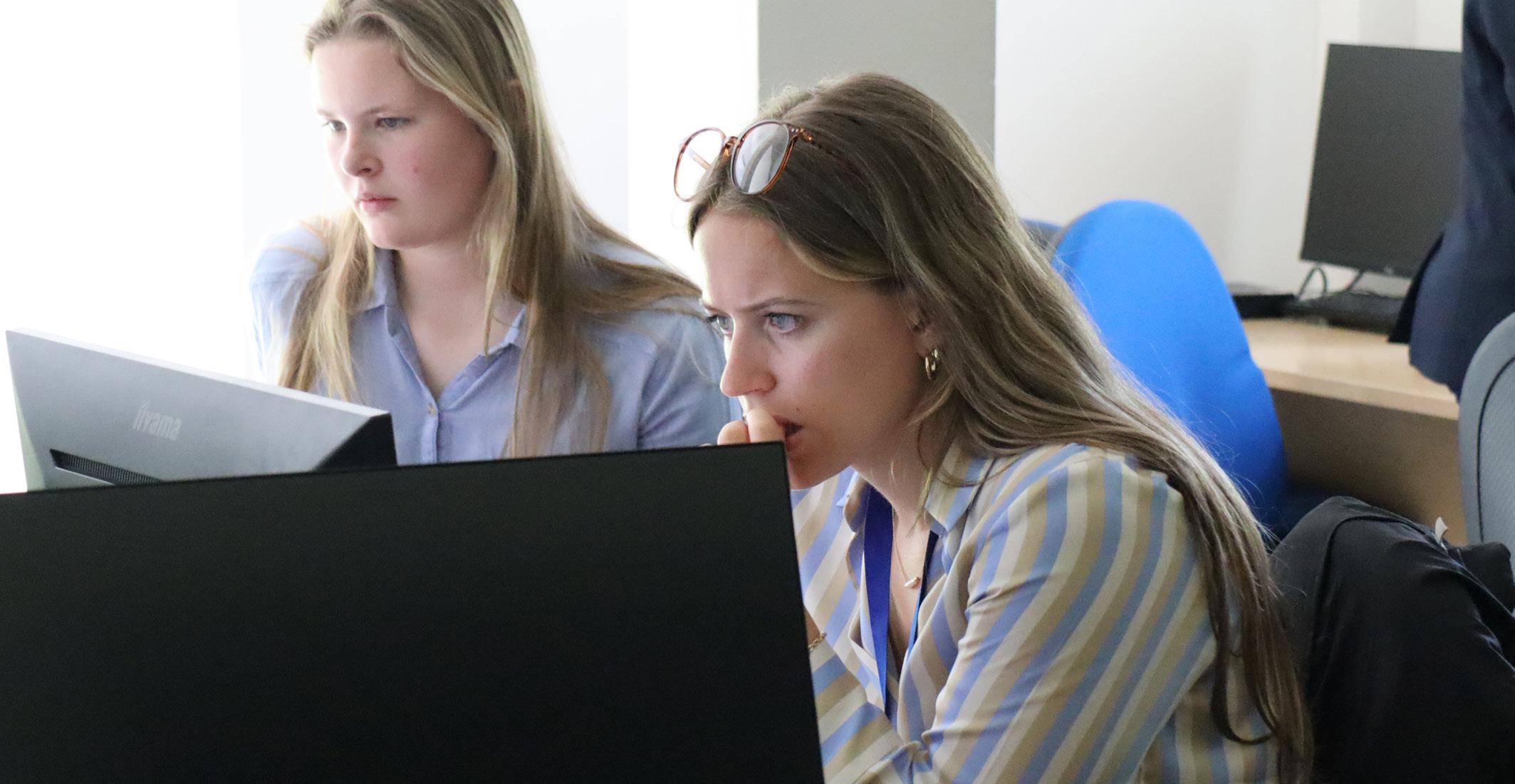
Curiosity about technology: A genuine interest in how digital systems are built, function, and used.
Problem-solving skills: The ability to think logically and systematically to identify and resolve technical challenges.
If you want to go to university or higher-level training, a Level 3 OCR qualification can help you move into fields like:
• Computer Science
• Information Technology
• Cybersecurity
• Software Engineering
• Games Development
• Data Science
• Digital Media or Web Development
Universities and colleges generally accept it as long as your grades and modules align with their entry requirements. Many students combine it with other Level 3 qualifications (like A Levels or BTECs).
A Level Dance is an exciting and creative course for anyone passionate about movement, performance, and the arts. You will get to develop your dance technique, learn how to choreograph your own pieces, and perform both solo and with others.

The course introduces you to influential professional dancers and choreographers, helping you understand different styles and what makes great dance work.
You will study set works, analyse performances, and explore the history and theory behind dance, giving you a deeper appreciation of the subject. Along the way, you will build confidence, teamwork, and communication skills, all while having fun and expressing yourself. Whether you aim to have a future in dance or just love to dance, A Level Dance is a fantastic way to challenge yourself, grow as a performer, and be part of a supportive, creative community.
Brief summary of what happens in Year 12
In Year 12 A Level Dance, students are introduced to key modern dance practitioners, exploring their unique styles and choreographic approaches. They learn a solo performance piece inspired by a professional choreographer, work collaboratively with their peers and teacher to rehearse and perform a quartet, and develop their own creative skills by making an original piece of choreography. Additionally, students begin studying a set work and a specific area of dance study, building both practical and theoretical understanding throughout the year.
Ideally students will have achieved Grade 9-6 in GCSE Dance or would have reached the higher level Grades in recognised dance examinations, e.g. RAD or ISTD.
How will I be assessed?
Year One | Internal Assessment only
Year Two Assessment Content Details
Component 1: Performance and Choreography
Component 2: Critical Engagement
Solo performance linked to a specified practitioner within an area of study. Performance in a quartet. Group choreography.
Practical exam.
80 marks (50% of A Level).
Section A: Short answer questions and one essay question on compulsory set work/area of study.
Section B: Two essay questions on the second set work/ optional area of study. Written exam: two hours, 30 minutes. 100 marks (50% of A Level).
Dance is ideal for creative, open-minded, and motivated students who want to combine practical dance with academic study. It suits those who are passionate about dance, enjoy working with others, and are keen to develop both their physical and theoretical abilities. A dance student should be willing to experiment with new techniques and styles, and they should be interested in developing skills such as teamwork, communication, leadership, and problem-solving, which are valued in many careers.
Dance is much more than just learning steps, it is about developing as a creative thinker, a confident performer, and a well-rounded individual. Students complete the course having developed practical dance skills, academic knowledge, and a toolkit of transferable skills that will benefit them in any path they choose.


Dance requires a mix of physical, creative, and academic skills. Students need good coordination, flexibility, and performance technique, as well as creativity for choreography and the ability to express ideas through movement. Analytical thinking is important for studying and writing about dance, while teamwork and communication skills help with group work and feedback. Organisation, self-discipline, and safe practice are also key, as students must balance rehearsals, performances, and written tasks. Overall, success in the course comes from being open to learning, working hard, and enjoying both the practical and theoretical sides of dance.
Dance is an excellent subject for anyone wanting to pursue a career in dance because it provides a strong foundation in both practical and theoretical aspects of the subject. Students develop advanced performance and choreography skills, gain experience working individually and in groups, and learn to analyse and appreciate professional dance works. The course also builds confidence, creativity, and resilience, while teaching valuable skills like teamwork, communication, and critical thinking, all of which are essential for further study and a successful career in the dance industry.

Studying Design and Technology will prepare you to participate in tomorrow’s rapidly changing technologies. Modern society needs technologists, people who can solve problems, be creative, be aware of social, moral and ethical considerations and who can practically apply theoretical knowledge.
Students will learn about contemporary technologies, materials and processes, as well as established practices.
The course places an emphasis on understanding and applying interactive design processes. Students will use their creativity and imagination to design and make prototypes to solve real and relevant problems, whilst considering their own and others’ needs, wants and values.
Students will cover design and technology skills and knowledge as set out into two categories:
• Technical Principles
• Designing and Making Principles
Students will also develop knowledge and understanding of how skills and knowledge from other subject areas inform decisions in design and the application or development of technology.
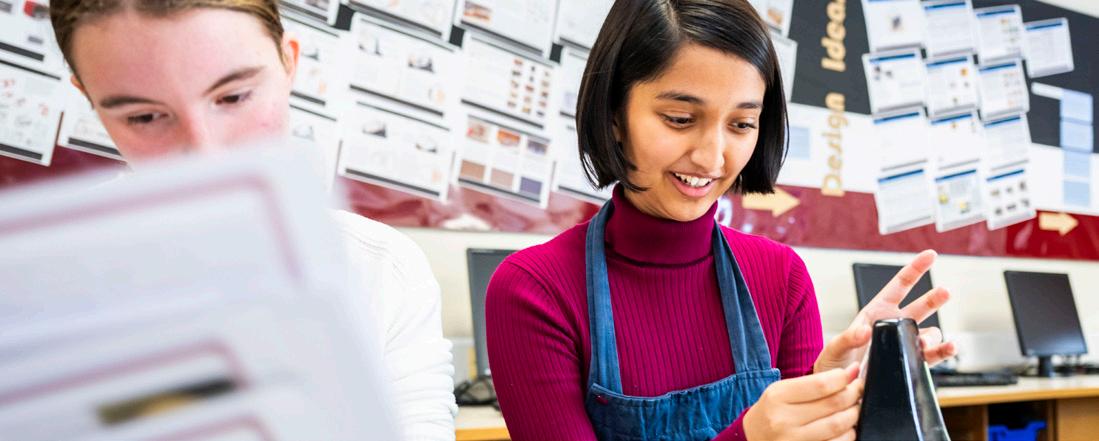
GCSE Design and Technology at Grade 9-6 is preferred.
Component 1
Component 2
Portfolio: Students will produce one portfolio for a single design and make task (set by exam board).
Internal: Question and answer paper consisting of multiple choice, shortanswer and extended response questions.
Component 1
Product Study Blue Sky Thinking Product Manufacture
Component 2
Two question and answer papers:
Paper 1. Technical Principles.
Written exam: Two hours.
Paper 2. Design and Making Principles. Two written exams.
Paper 1: 1hr 30mins
Paper 2: 2hr 30mins (50% of A Level).
Portfolio: Students are required to undertake a substantial design and make a product of their choice. This unit results in the development of an appropriate product supported by an iterative design folder which meets the needs of an identified client. Non-Examination Assessment (50% of A Level).
Creative Thinker: Enjoys generating original ideas and solving problems in imaginative ways.
Curious and Observant: Notices how everyday products are designed and wonders how they could be improved.
Detail-Oriented: Pays attention to aesthetics, functionality, and user experience.
Resilient and Reflective: Willing to test, fail, and refine ideas through iterative design processes.
Creative Thinking: Generating innovative ideas and solving design problems. Research and Evaluation: Investigating user needs, testing prototypes, and refining designs
Idea Generation: Ability to brainstorm and develop original concepts that solve real-world problems.
Sketching and Visual Communication: Competence in drawing, rendering, and presenting ideas clearly through 2D and 3D visuals.
Aesthetic Awareness: Understanding of design principles such as balance, proportion, and colour theory.
Problem-Solving: Evaluating user needs and constraints to create functional and appealing solutions.
Critical Thinking: Assessing the effectiveness of designs and making informed improvements.
Research and Evaluation: Investigating materials, processes, and user feedback to refine products.
3D Modelling and Computer-Aided Design (CAD): Proficiency in using software like SolidWorks or Fusion 360 to create digital prototypes.
Workshop Techniques: Safe and effective use of tools, machinery, and materials to build physical models. Understanding of Materials and Processes: Knowledge of wood, metal, polymers, and composites, and how they behave under different conditions
Career pathways are many and varied and include engineering, industrial design, project management, architecture, interior design, concept development and product design.
Roles can include Product Designer, CAD Technician, Furniture Designer, Interior and Spatial Designer, Exhibition Designer, Automotive Engineer, Graphic Designer, Materials Engineer and Production Designer (Film/TV/Theatre).
A potential combined trip plus annual cost for materials. This can change on an annual basis but equates to £40 and is heavily subsidised by the School.

Studying Drama A Level will give you an opportunity to develop your own performance and directorial skills, explore the world of theatre and the many different theatrical styles and genres of plays and practitioners.
Bring texts to life in an original and theatrically inventive way, sharpen your skills as a performer and inter-personally, and discover how theatre changes the way we see the world. Drama is a subject that’s fun, practical, and goes beyond the classroom.
Students create a reinterpreted, site-specific immersive production of their selected text, which fuses Physical Theatre and Dance. Students also prepare and present a monologue, which is performed naturalistically. In terms of written content, students write coursework (the creative log) on both practical pieces, alongside exploring the set text from the perspective of an actor, director and designer.

Entry requirements
GCSE
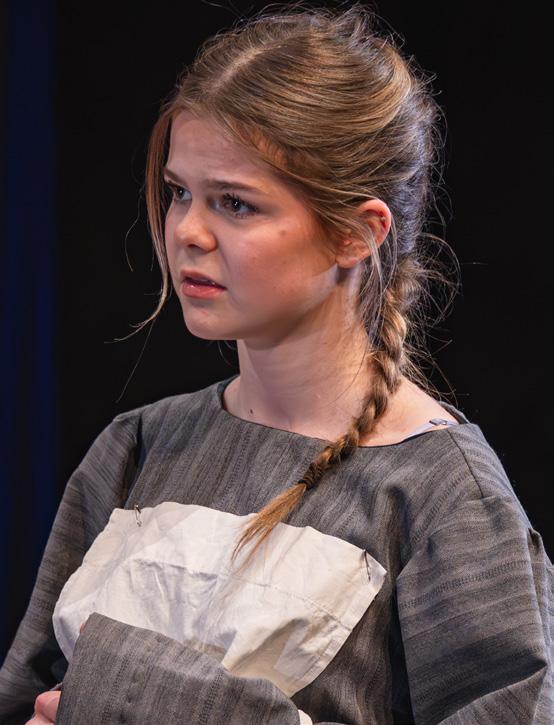
Unit 1 –Performance Workshop
Unit 2 –Text in Context
Unit 1 –Theatre Workshop
Practical: Create an original devised piece of theatre and perform in a duologue or group piece.
Coursework: Produce a Creative Log and an Evaluation of the performance for both pieces of work. 3,000 words in total.
This unit is examined through a written paper. Students will be required to answer a series of structured questions
Two practical pieces inspired by unseen stimulus shared at the start of the examination year.
Unit 2 –Text in Action
Unit 3 –Text in Performance
Students participate in the creation, development and performance of a devised piece using the working methods of Frantic Assembly as well as an extract from a text performed naturalistically.
Section A (55 marks): One question exploring how the text can be performed in the theatre.
Section B (40 marks): An essay question on how the text can be adapted for a contemporary audience.
Section C (40 marks): One question exploring how the text can be performed in the theatre.
Internal assessment and externally moderated. 120 marks (60% of AS Level)
Written exam: one hour, 30 minutes. 80 marks
Externally assessed. 60 marks (20% of A Level).
Externally assessed. 120 marks (40% of A Level).
Written exam: two hours, 30 minutes. 135 marks (40% of A Level)
Drama suits students who are pro-active, enjoy group work, are naturally creative, enjoy collaboration, are good at generating ideas and have a love of live theatre.
As well as deepening your understanding of theatrical performance and the theories of modern directors you will also gain valuable life skills in terms of collaboration, presentation, co-operation and creative thinking.
You must have experience as a performer or technician either in or out of school. Ideally you should have taken GCSE Drama in order to have a baseline understanding of key techniques and theory.
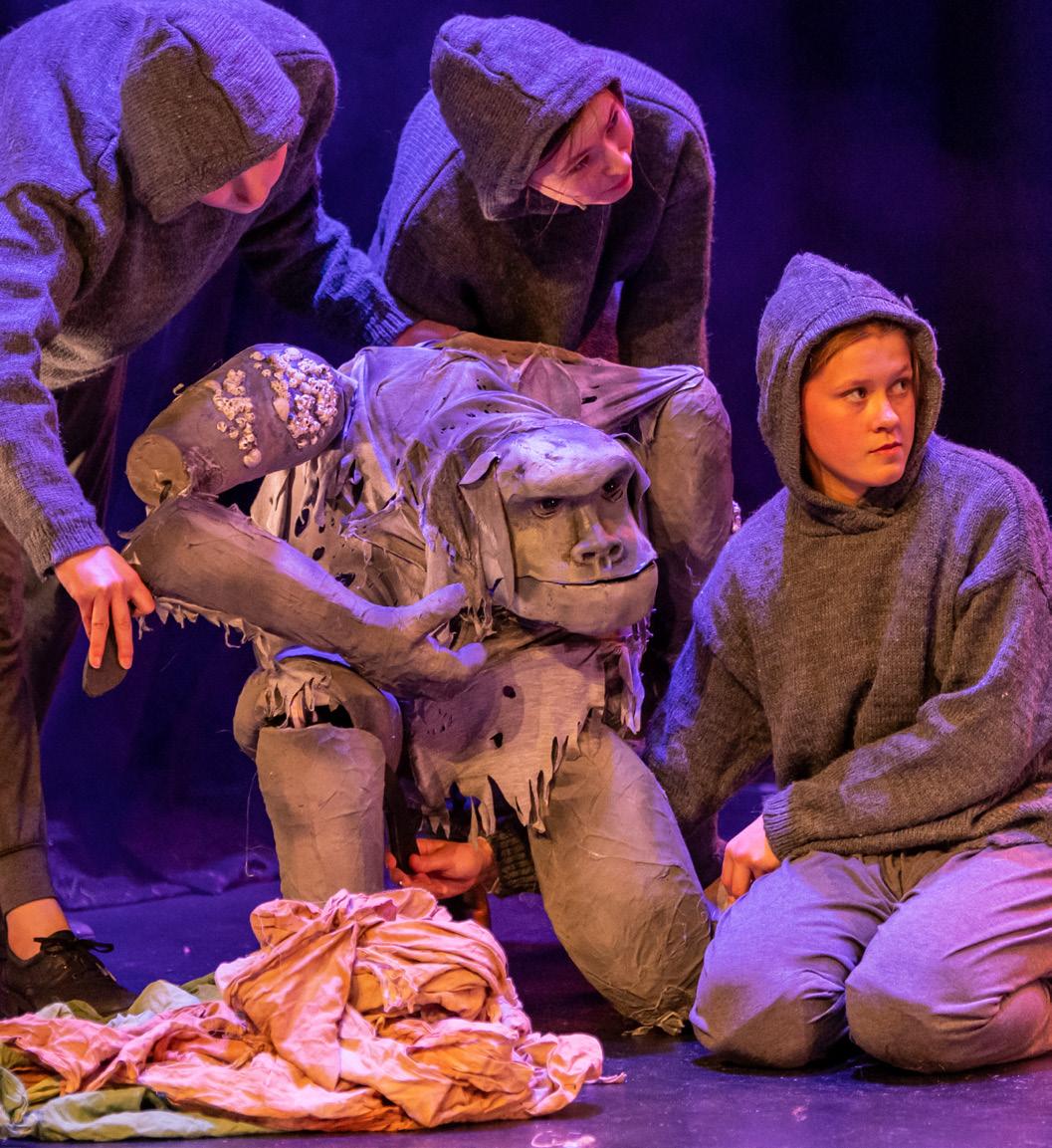

Drama encourages good communication skills which builds confidence and teamwork. This will support you in any career you choose, whether in the wider fields of theatre and broadcasting, or in less closely connected careers such as law, teaching, personnel, publishing and arts administration. In fact any career that needs teamwork and good communication at its core.
Students will be expected to attend one School-led theatre trip per year at a cost of no more than £75 each.

“We read to know we are not alone” (C S Lewis). We also read to live in the shoes of others, to “slip inside their skin” (Atticus Finch), to travel back in time, share the experiences of others and take on new perspectives; to explore ideas, beliefs and values, challenge or discover your own and learn the literary skills to express ourselves more powerfully in original and creative ways through an enriched appreciation of our language.
Paper 1 - Love through the age: Shakespeare and poetry
Brief summary of what happens in Sixth Form
English Literature suits students who are intellectually curious, passionate about reading, reflective, empathetic, and enjoy critical thinking and discussion. The department encourages students from all academic backgrounds to aim high. The course is divided into three components.
Component 1: Love Through the Ages explores a central literary theme over time, using set texts and unseen material. AS Level students study four texts, including a Shakespeare play, a poetry anthology, and two prose texts, while A Level students study three texts, including one pre-1900, and respond to unseen poems.
Component 2: Texts in Shared Contexts (A Level only) examines literature connected through a specific period, such as World War One or Modern Literature (1945–present).
Component 3: Independent Critical Study – Texts Across Time (A Level only) allows students to compare two texts independently, exploring similarities,
Ideally GCSE English Literature at Grade 7-9, or English Language at Grade 7-9. Some students have done well with a Grade 5-6, although there would be a further distance to catch up initially. Students’ work develops so much over the A Level years, the important things are enjoyment, dedication and a desire to work and progress.
Paper 2 - Love through the ages: Prose
Section A: Shakespeare – One passage-based question with linked essay.
Section B: Poetry – One question on a printed poem.
Section A: Unseen prose – One compulsory question on unseen prose extract.
Section B: Comparing prose texts – One comparative question on two prose texts.
Year
Paper 1- Love through the ages
Paper 2 - Texts in shared contexts
Written exam: one hour, 30 minutes. Closed book. 50 marks (50% of AS Level).
Written exam: one hour, 30 minutes. Open book. 50 marks (50% of AS Level).
Independent critical study: Texts across time
Section A: Shakespeare –One passage-based question with linked essay.
Section B: Unseen Poetry
Section C: Comparing texts – One essay question linking two texts.
Section A: Set Texts –One essay question on set text.
Section B: Contextual linking – One compulsory question on an unseen extract and one essay question.
Comparative critical study of two texts, at least one of which must have been written pre-1900. One extended essay and a bibliography.
Written exam: three hours. 75 marks (40% of A Level).
Written exam: two hours, 30 minutes. 75 marks (40% of A Level).
Non-exam assessment. 50 marks (20% of A Level).
English Literature is ideal for students who are intellectually curious and enjoy exploring ideas, perspectives, and emotions through reading. You should have a genuine passion for engaging with a variety of texts, including novels, plays, and poetry, and be reflective, empathetic, and open to different viewpoints. The course suits those who enjoy critical thinking, debate, and independent learning, and who are willing to engage with challenging material while expressing their ideas clearly in both writing and discussion. The department welcomes students from all academic backgrounds, including those from lower GCSE sets, and encourages everyone to aim high and achieve their full potential.
Students gain a deeper understanding of literature, strong analytical and communication skills, confidence in expressing ideas, exposure to diverse texts and contexts, and preparation for universitylevel study.
Key skills include critical analysis, written communication, independent research, discussion and debate, empathy and interpretation, organisation, and resilience.
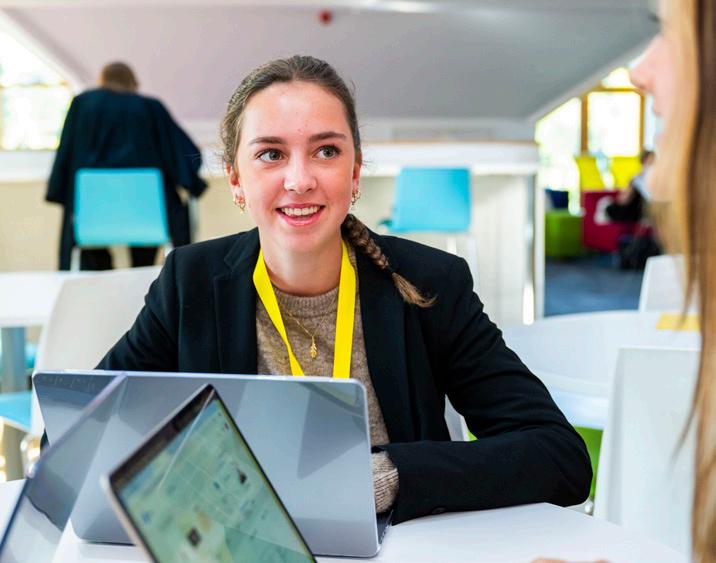
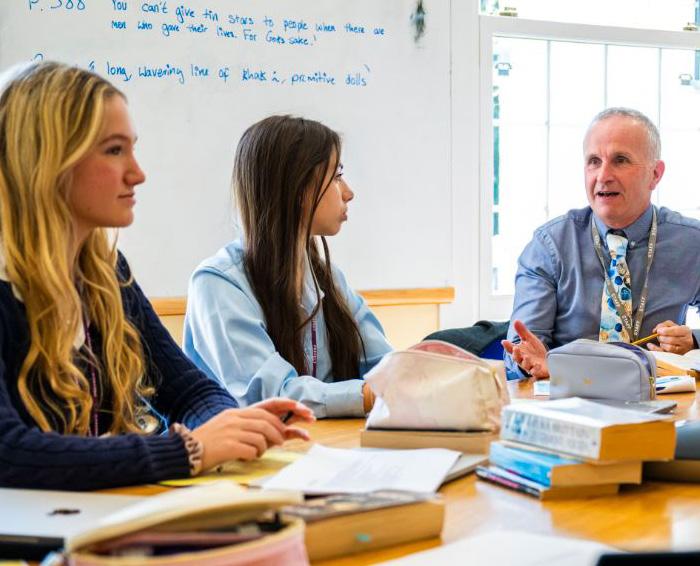
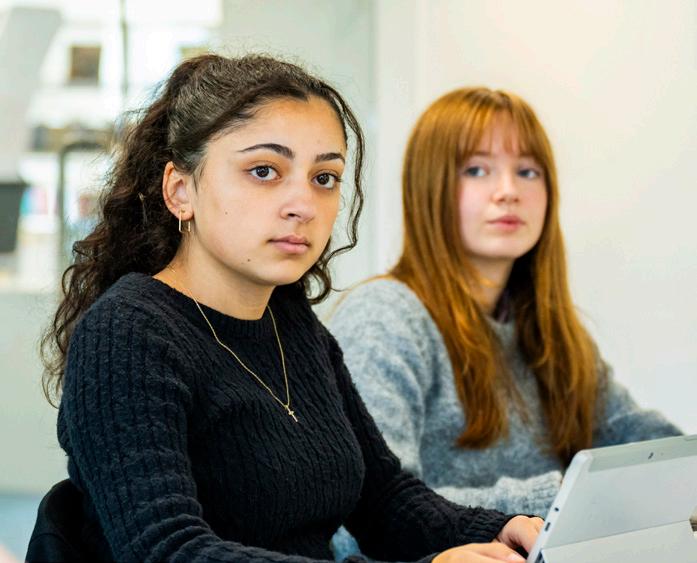
Studying English Literature can enable you to develop a foundation for creative writing or literary criticism and can help you enter careers that require strong analytical and communication skills, such as journalism, publishing, law, or education.
Professions can include:
• Publishing and editing
• Journalism and media
• Teaching and academia
• Law (especially for its emphasis on argument and interpretation)
• Public relations and communications
• Creative writing and screenwriting
• Cultural and heritage sectors
Additional costs
Enrichment trips include a Stratford-upon-Avon weekend, World War I battlefield literature experience, Bronte country residential trip, and visits to London theatres and literary events. Costs vary and are considered central to the course.
Equivalent to A Level
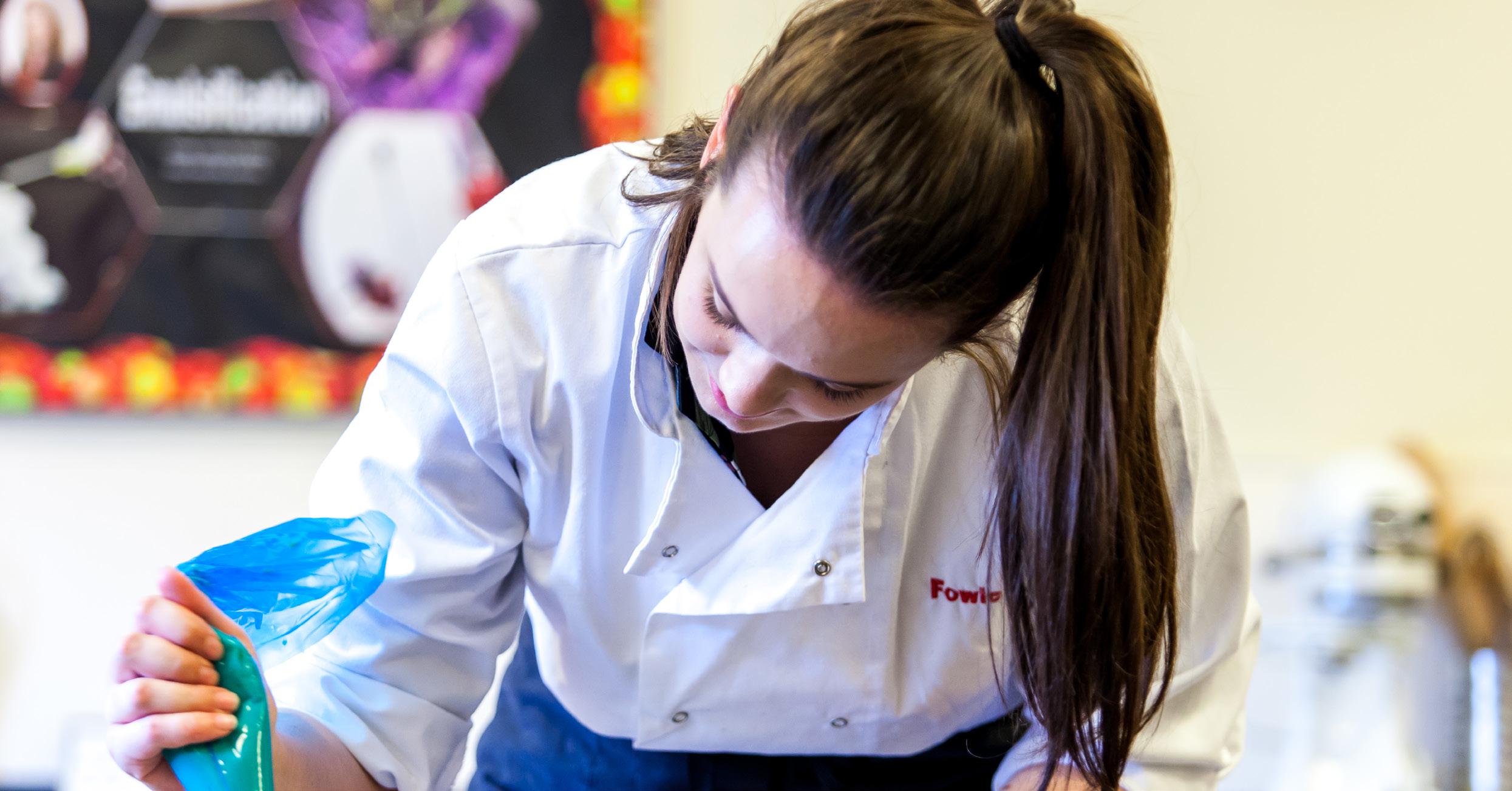
The Level 3 Food Science and Nutrition qualification allows you to gain a wealth of knowledge about the food and nutrition industry. You will have the opportunity to learn about the relationship between the human body and food as well as practical skills for cooking and preparing food.
Students will get a deep understanding of the nutrition of food in Year 12. Considering how nutrients are structured and what function they perform in our bodies. They will then need to apply this understanding to a variety of people and explain how the needs of people change due to any of the following factors: age, medical conditions, food choices, activity levels and more. Students will also learn advanced cooking techniques, including bread, pastry, chocolate and sugar work. They will practice combining ingredients to create delicious and nutritious dishes fit for a restaurant.
In Year 13 students explore the science behind their food. Exploring the scientific concepts related to the chemical properties of ingredients. Conducting experiments to prove the science, ensuring validity, sound scientific grounding, methods of presenting data alongside data analysis and exploring the methodological constraints of experiments and taste testing. Students will also explore the microbiology of food poisoning, and the practical steps organisations must take to reduce the risks. Students investigate scenarios where people have become ill, and solve the causes of the symptoms experienced. Students must understand the structure of microorganisms and legal obligations of the companies too.
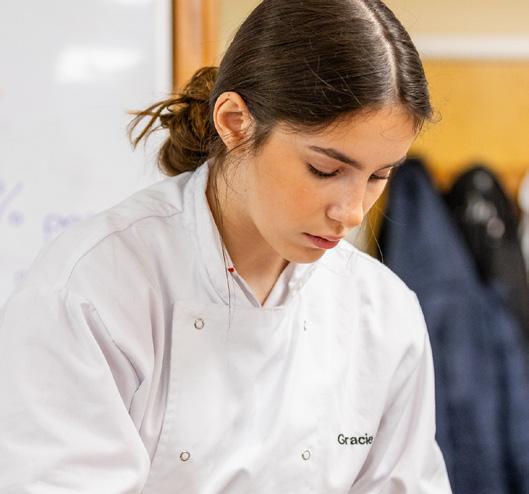
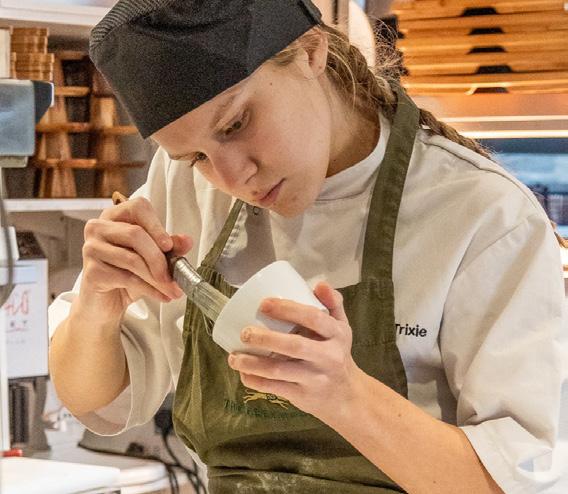
The course is comprised of two mandatory units and one optional unit.
Mandatory Units Assessment Content Details
Mandatory Unit:
Component 1
Component 2
Meeting Nutritional Needs of Specific Groups
Mandatory Unit: Ensuring Food is Safe to Eat
Written exam worth 25% of the course (AS equivalent).
Practical Controlled Assessment worth 25% of the course (AS equivalent).
Eight hour timed, supervised practical assessment. To be completed over more than one session.
25% of the course (AS Level equivalent).
Optional Units - Students complete either Component 3 or Component 4 Assessment
Component 3
The following GCSE courses all complemented the A Level course include Food Preparation and Nutrition, Food and Nutrition, Biology, Chemistry or Physical Education.
Component 4
Optional Unit: Experimenting to Solve Food Production Problems
Optional Unit: Current Issues in Food Science and Nutrition
12 hour timed, supervised practical assessment. To be completed over more than one session.
25% of the course.
14 hour timed, supervised practical assessment. To be completed over more than one session. 25% of the course.
Food Science and Nutrition suits students who are always asking “why and how?”. How does my body turn the food I eat into muscles, hormones, energy? Why does the environment I grow up in impact my food choices? How can I make sure someone who is over 70 is getting the right nutrients for their body? How does a child’s nutritional needs differ to that of teenager? Why do potatoes go brown if I leave them out? Why do onions caramelise and turn sweet when I cook them? How does changing the cooking method I used change the physical properties of my food and the nutritional value? Why are certain foods more likely to give us food poisoning than others?
Food Science and Nutrition suits students who want to see science in action, to see ingredients change colour, texture and shape. Students who enjoy exploring the science underneath their food - how did the chef get this so crispy? How is this nutritionally balanced for me as a 17 year old female?
Note taking, and summarising academic texts. Cooking skills particularly making bread, pasta and pastry.

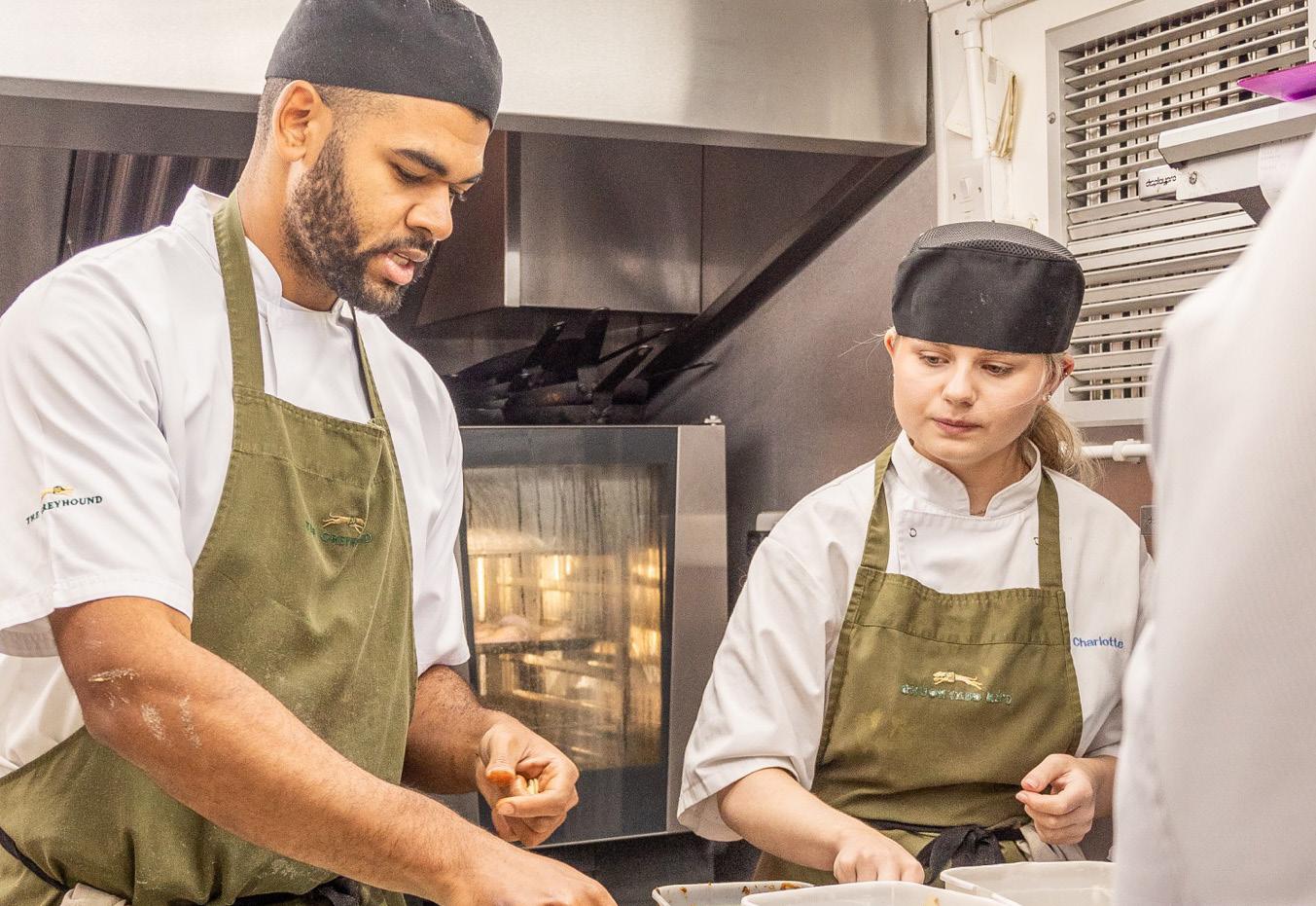

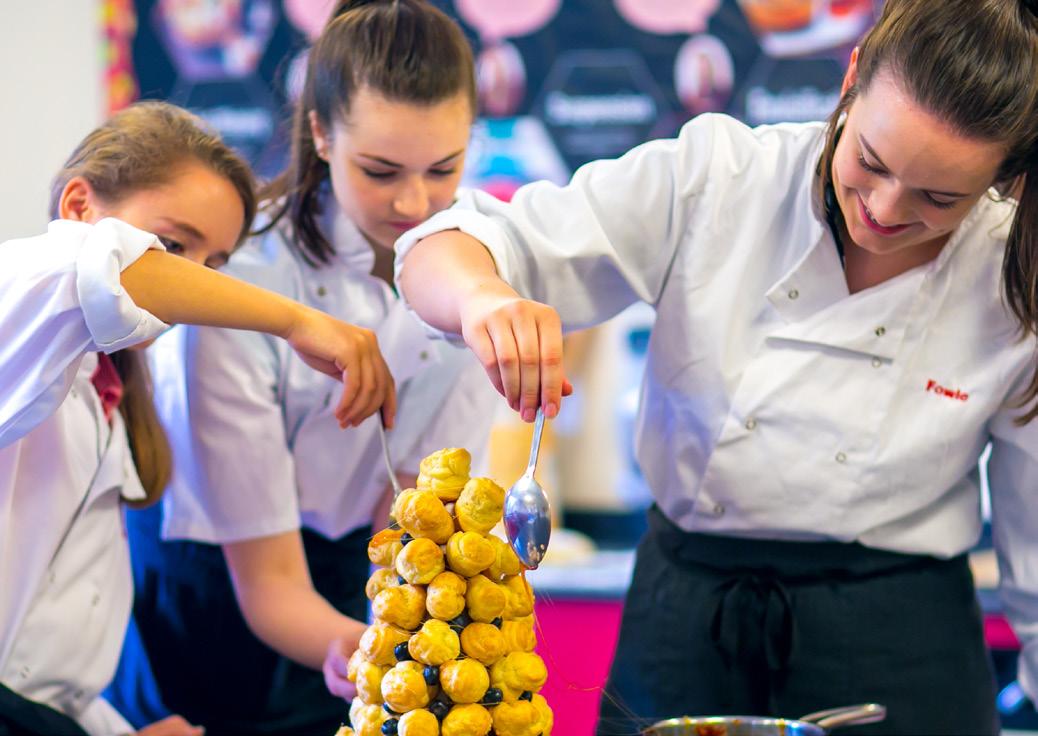
There are no professions that require this course, but the underpinning understanding of nutrition and microbiology would support many science based subjects. The ability to study academic texts, apply knowledge to a given scenario would also support many fields of further study. Examples include Nutritionist, Sports Nutritionist, Chef, Food Product Development, Microbiologist, Hospitality and Catering.

Studying French is so much more than learning vocabulary and grammar—it’s an immersive journey into the heart of one of the world’s most influential cultures. This course offers a rich blend of language mastery and cultural exploration, giving you the tools to communicate confidently and fluently and think critically about global issues.
You’ll dive into topics like identity, multiculturalism, politics, and artistic heritage, all whilst developing your ability to express complex ideas in French.
Through film, literature, and real-world case studies, you’ll gain insight into the diversity of the Frenchspeaking world—from Paris to Quebec, Senegal to Switzerland.
French A Level is dynamic, relevant, and empowering. It builds independence, resilience, and global awareness—qualities that universities and employers value highly. Whether you’re passionate about languages, curious about international affairs, or simply want to stand out in a competitive world, French gives you the edge and it is a powerful asset.
Brief summary of what happens in Year 12
In Year 12, students build on their GCSE knowledge by exploring themes such as family and relationships, cyber society, cultural heritage, contemporary Francophone music and French cinema. You’ll study a French-language film (e.g. La Haine) and begin to develop your ability to analyse and discuss it in French.
Grammar is consolidated and extended, and speaking skills are developed through regular practice and preparation for the Individual Research Project (IRP), which becomes a key focus in Year 13.
Ideally students will have achieved GCSE French at Grade 9-7.
Year One
Paper 1:
Listening, Reading and Writing
Paper 2: Writing
Listening and responding to spoken passages from a range of contexts.
Reading and responding to a variety of texts written for different purposes.
Translation into English (minimum 70 word passage).
Translation into French (minimum 70 word passage)
Either one question in French on a set text from a choice of two questions or one question in French on a set film from a choice of two questions.
Paper 3: Speaking
Paper 1: Listening, Reading and Writing
Discussion of two sub-themes (6–7 minutes on each) with the discussion based on a stimulus card for each sub-theme.
Written exam: one hour, 45 minutes. 90 marks (45% of AS Level).
Written exam: one hour, 30 minutes. 50 marks (25% of AS Level).
Oral exam: 12-14 minutes. 60 marks (30% of AS Level).
Paper 2: Writing
Listening and responding to spoken passages from a range of contexts.
Reading and responding to a variety of texts written for different purposes.
Translation into English
Translation into French (minimum 100 word passages for each).
Either one question in French on a set text from a choice of two and one question in French on a set film from a choice of two or two questions in French on set texts from a choice of two on each text.
Paper 3: Speaking
Discussion of a sub-theme with the discussion based on a stimulus card (5–6 minutes). Presentation (2 minutes) and discussion (9–10 minutes) of Individual Research project.
Written exam: two hours, 30 minutes. 100 marks (50% of A Level).
Written exam: two hours. 80 marks (20% of A Level).
Oral exam: 21–23 minutes. 60 marks (30% of A Level).
French A Level suits students who are curious about other cultures, enjoy communicating, and have a passion for languages. It’s ideal for those who are analytical, enjoy problem-solving, and are willing to engage with both the linguistic and cultural aspects of the French-speaking world. Whether you’re a confident speaker or someone who enjoys grammar and structure, this subject offers something for everyone.
Studying French opens doors to a deeper understanding of the language, culture, politics, and society of French-speaking countries. You’ll gain fluency and confidence in speaking, listening, reading, and writing, while also developing transferable skills such as critical thinking, essay writing, and independent research. It’s a subject that broadens your worldview and enhances your employability in a globalised job market.
• Strong communication skills
• Willingness to speak and write in French regularly
• Good memory and attention to detail
• Analytical thinking and interpretation
• Independent learning and research
• Cultural curiosity and openness
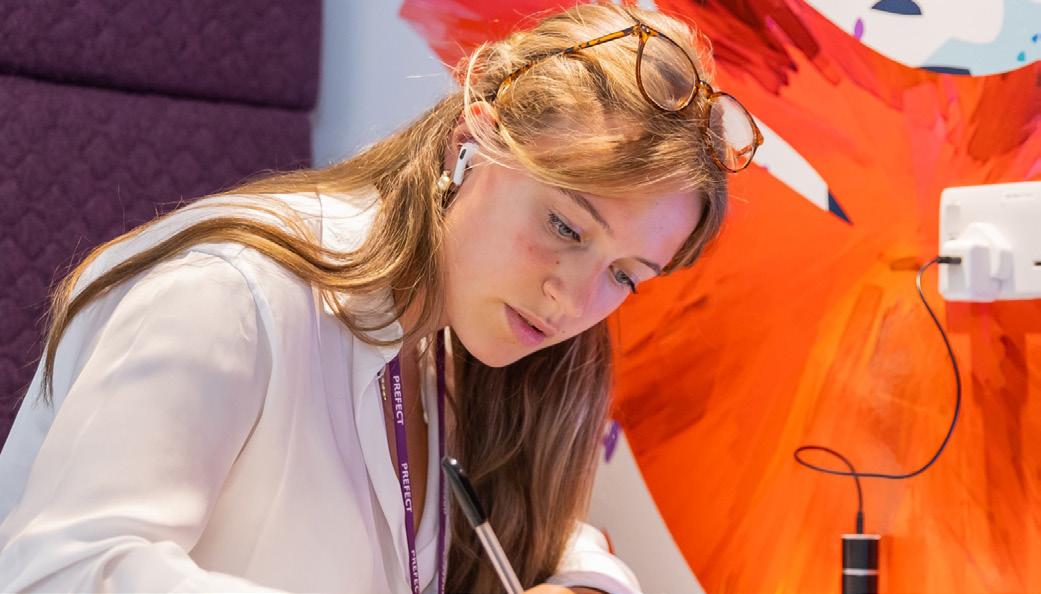
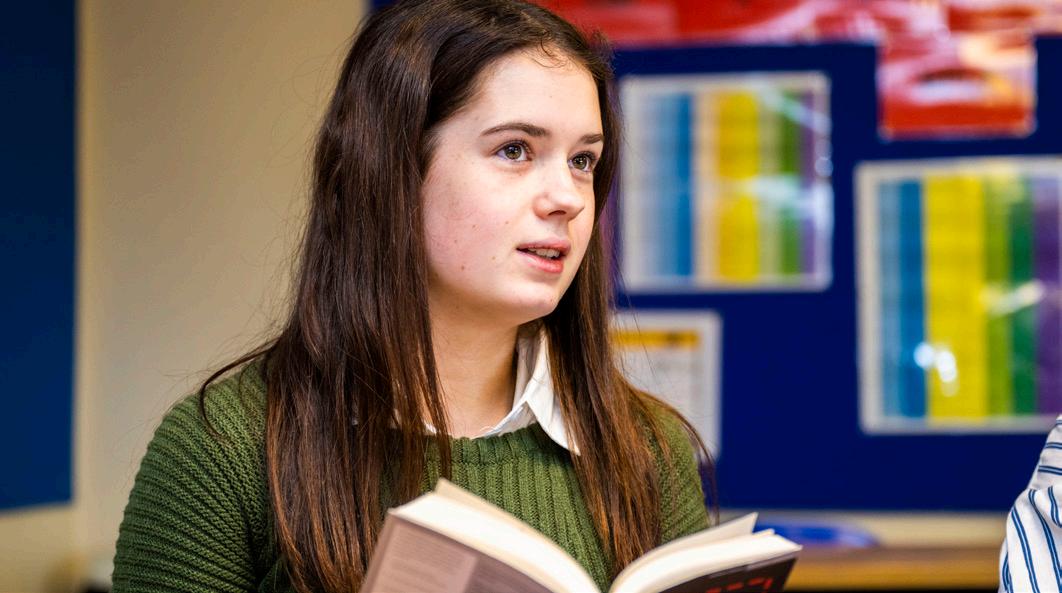
A French A Level can help you pursue a university degree in French, Modern Languages, European Studies or International Business. It’s also essential if you’re aiming for careers that require high-level language proficiency, such as translation, interpreting, international diplomacy, or working for multinational organisations. If you dream of living or working abroad, engaging in global business, or contributing to international development, French A Level is a must-have stepping stone. Examples of professions include: Translator, Language Teacher or Lecturer, Diplomat/Foreign Office Official, International Business Executive, Journalist or Foreign Correspondent, roles in Film and TV Production.
There may be opportunities for enrichment trips, such as a residential visit to France or a cultural day in London. These are optional but highly recommended to enhance immersion and confidence. Costs vary depending on the trip, but we aim to keep them accessible. Approximate cost for a residential trip: £700.
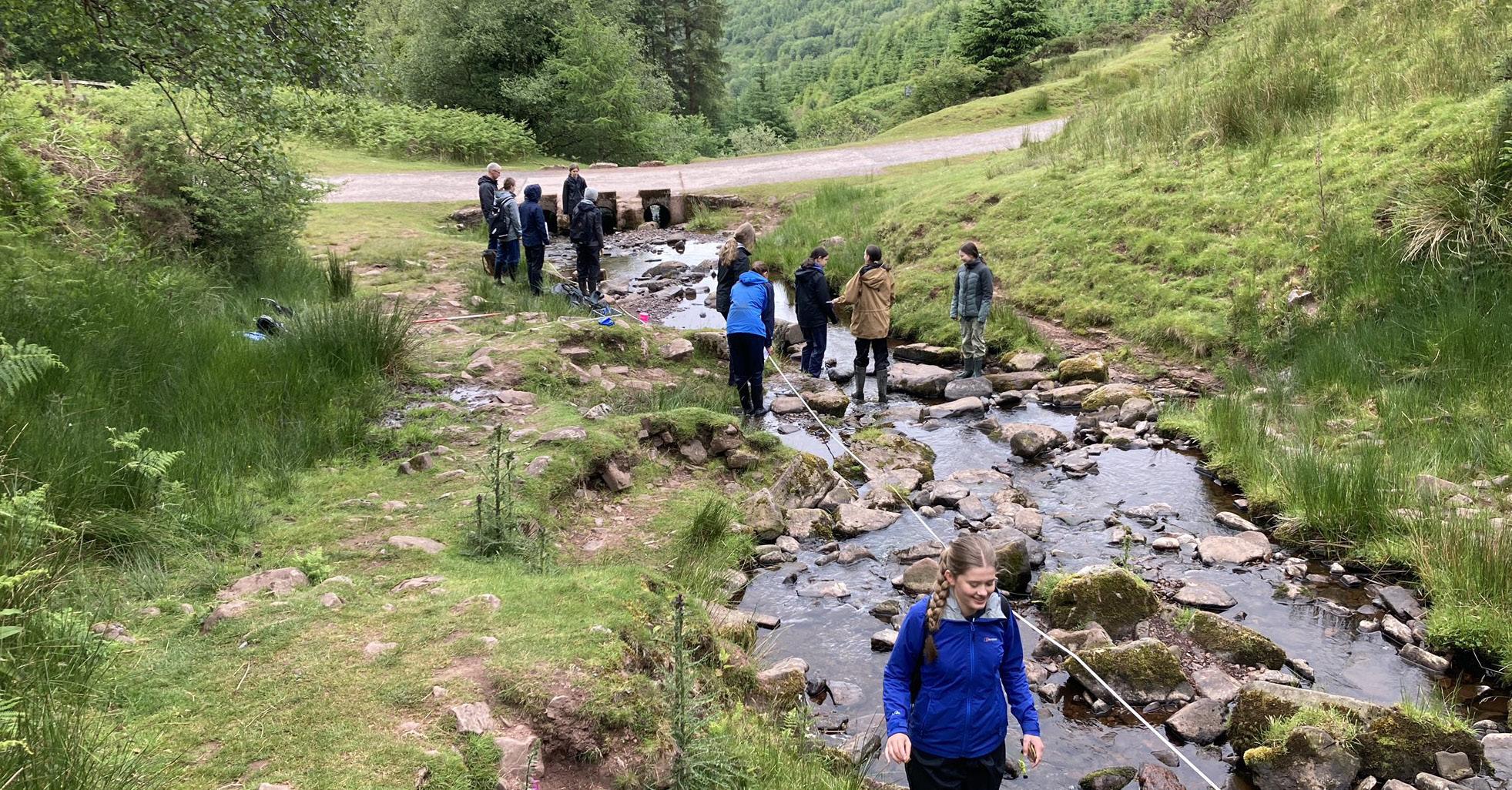
Geography is a pretty unique subject because it invites us to study both the physical structure of the planet and the social and economic structure (i.e. how we affect our environment and how it affects us) in the past, present and future. Studying for an A Level in Geography will help you to develop your observational, analytical, interpretative and predictive skills – invaluable to many other areas of study and life.
This course gives you the chance to explore some of the most important issues facing our world today, from climate change and natural hazards to migration, human health and globalisation.
You’ll also get out of the classroom on fieldwork, investigating real places and seeing how what you learn applies in the world around you. Geography combines science, humanities, and social science so whether you love analysing data, debating global issues, or exploring new landscapes, there’s something for everyone. It’s a subject that keeps your options open, develops transferable skills that universities and employers value and, most importantly, is fascinating and fun to study.
Brief summary of what happens in Year 12
Students learn to develop understanding of both physical and human geography in greater depth. The Autumn Term begins with an exploration of glacial landscapes and processes, where students examine how physical processes shape the land we see today and how these environments are managed. Alongside this, students study changing places, investigating how people experience and perceive locations. Fieldwork is closely integrated with case studies: for example, visiting Great Missenden as our ‘near place’ and Llandudno as our ‘distant place’ to bring the topic to life.
As the year progresses, students turn their attention to a physical geography unit on hazards, covering tectonic activity, storms and wildfires. Throughout the course, students refine their cartographical, graphical and statistical skills and apply these through enquiry-based learning and independent research.
Year One
Component 1: Physical Geography
Component 2: Human Geography
Year Two
Section A: Glacial systems and landscapes.
Section B: Hazards.
Section A: Changing places.
Section B: Geography fieldwork investigation and geographical skills.
Assessment Content
Section A: Water and carbon cycles.
Component 1: Physical Geography
Component 2: Human Geography
Section B: Glacial systems and landscapes.
Section C: Hazards.
Section A: Global systems and global governance.
Section B: Changing places.
Section C: Population and the environment.
Written exam: one hour, 45 minutes. 80 marks (50% of AS Level).
Written exam: one hour, 30 minutes. 80 marks (50% of AS Level).
Details
Written exam: two hours, 30 minutes.
120 marks (40% of A Level).
Written exam: two hours, 30 minutes. 120 marks (40% of A Level).
GCSE in both Mathematics and Geography at Grade 9-6.
Component 3: Geography Fieldwork Investigation (NEA)
An individual investigation which must include data collected in the field. The individual investigation must be based on a question or issue defined and developed by the student relating to any part of the specification content.
4,000 words (guidance). 60 marks (20% of A Level). Entry requirements
The course is well-suited to students who are curious about the world around them and keen to explore the interactions between people, places, and environments. It appeals to those with a genuine interest in both the physical processes shaping our planet and the human challenges facing societies today. Students who enjoy asking questions, thinking critically, and engaging with contemporary global issues will find the course especially rewarding. Covering aspects as varied as the glacial landscapes of northern Siberia and the impacts of globalisation on economies and cultures, the course offers opportunities for independent research, collaborative work and the development of transferable skills such as data interpretation, spatial awareness, and problem-solving. A Level Geography is ideal for students who want to broaden their understanding of the world and their role within it, while building transferable skills valued in further study and future careers.
By studying Geography, students gain more than subject knowledge: they develop the skills to interpret, evaluate and respond to the challenges shaping our world. They learn to analyse complex data, evaluate information from multiple sources, and make informed decisions about issues such as climate change, health, migration and resource security. Fieldwork and the Non-Examined Assessment (NEA) independent investigation gives students first-hand experience of geographical enquiry, from collecting and presenting data to drawing evidence-based conclusions. Alongside this, the course nurtures strong communication skills through structured debate, extended writing and presenting arguments clearly and persuasively. Above all, students develop a global outlook, resilience and a sense of responsibility towards sustainable futures.
Students progressing to A Level Geography build on the skills they have already developed at GCSE, but will be expected to take them to a higher level. A strong foundation in interpreting data, maps and graphs will be essential, alongside the ability to evaluate evidence and construct balanced, wellreasoned arguments. Curiosity and a willingness to question assumptions remain central, as A Level Geography requires students to engage critically with complex global debates and case studies. Independent research skills and the confidence to design and carry out fieldwork enquiries are particularly important, as is the ability to apply knowledge across both physical and human geography. Clear written communication will be vital for examinations and effective verbal communication in lessons will support discussion and collaboration. Nevertheless, successful A Level Geography students are those who enjoy connecting ideas, thinking analytically and seeing how geographical understanding applies to real-world challenges
It’s not a prerequisite subject for any particular career. That said, A Level Geography is often highly desirable or a very strong foundation for certain university courses and career paths because of the subject’s mix of scientific, analytical and communication skills. This can include careers in sustainability and green issues, urban regeneration, energy supply, retail location, managing the effects of hazards and climate change, business and economics, law, human rights, international relations and journalism.
Additional costs
It is expected the four-days of fieldwork is likely to be split into two two-days at approximately £200 per residential, depending on student numbers attending and location.

Our A Level German course is designed to immerse you in the language and culture of the German-speaking world. We use a variety of engaging resources, including authentic German news articles, films, and music.
The course encourages lively classroom discussions and debates, helping you to build confidence in your speaking skills.
You’ll also explore the rich literary and cinematic heritage of Germany, analysing a film and a book in detail. This approach ensures you not only become fluent but also develop a deep, nuanced understanding of German culture and society. Choosing German is a pathway to global opportunities, intellectual growth, and a unique perspective on the world.
Brief summary of what happens in Year 12
Year 12 focuses on building a strong foundation in the four core skills: listening, speaking, reading, and writing. You will explore key themes such as family structures, the digital world, and the importance of music and cinema in the German-speaking world.
A significant part of the year is dedicated to mastering advanced grammatical structures and expanding your vocabulary. You will also begin your study of one of the prescribed German films, analysing its themes and cinematic techniques.

Entry requirements
Ideally students will have achieved GCSE German at Grade 9-7.
Year One
Paper 1: Listening, reading and writing
Paper 2: Writing
Listening and responding to spoken passages from a range of contexts.
Reading and responding to a variety of texts written for different purposes.
Translation into German (minimum 70 word passage)
Either one question in German on a set text from a choice of two questions or one question in German on a set film from a choice of two questions.
Paper 3: Speaking
Year Two
Paper 1: Listening, reading and writing
Discussion of two sub-themes (6-7 minutes on each) with the discussion based on a stimulus card for each sub-theme.
Written exam: one hour, 45 minutes.
90 marks (45% of AS Level).
Written exam: one hour, 30 minutes.
50 marks (25% of AS Level).
Oral exam: 1214 minutes. 60 marks (30% of AS Level)
Paper 2: Writing
Listening and responding to spoken passages from a range of contexts.
Reading and responding to a variety of texts written for different purposes.
Translation into English
Translation into German (minimum 100 word passages for each)
Either one question in German on a set text from a choice of two and one question in German on a set film from a choice of two OR two questions in German on set texts from a choice of two on each text.
Paper 3: Speaking
Discussion of a sub-theme with the discussion based on a stimulus card (5-6 minutes).
Presentation (2 minutes) and discussion (9-10 minutes) of Individual Research Project.
Written exam: two hours, 30 minutes.
100 marks (50% of A Level).
Written exam: two hours. 80 marks (20% of A Level).
Oral exam: 21–23 minutes.
60 marks (30% of A Level).
German A Level is perfect for students who are curious, engaged and culturally aware. If you enjoyed GCSE German and want to push yourself further, this is the course for you. It suits those who are interested in history, politics, and current affairs, as the course content covers these topics extensively. You should be prepared to be an independent learner, as a significant amount of your study time will involve consolidating vocabulary, grammar, and reviewing cultural topics.
Studying German at will provide you with a high level of fluency and accuracy in spoken and written German. You’ll gain a sophisticated understanding of contemporary German-speaking society, including its social, political, and cultural landscape. This subject will also significantly enhance your analytical and critical thinking skills through the study of literature and film. Beyond the academic benefits, you will develop a global mindset and an appreciation for different cultures, which is invaluable in today’s interconnected world.
To succeed in German A Level, you should have a solid foundation in the language from your GCSE studies. Key skills include:
• A strong grasp of grammar and vocabulary: You will be building on this foundation constantly.
• Active listening skills: Essential for understanding spoken German in a variety of contexts.
• Effective communication: The ability to express your ideas clearly and confidently, both in writing and in conversation.
• A curious mind: A genuine interest in German culture, history, and current events will help you engage with the course content.
German is a highly-valued asset in a wide range of careers. Professions where German is particularly beneficial include:
• International Business and Finance: Germany’s strong economy makes German speakers highly desirable.
• Diplomacy and International Relations: Working for an embassy or an international organisation.
• Translation and Interpreting: Bridging communication gaps between languages.
• Engineering and Technology: Many leading companies in these fields are German.
• Tourism and Hospitality: Working in German-speaking countries.
• Academia and Research: Specialising in German history, literature, or culture.
The main additional cost during the course would be a residential trip to a German-speaking country. This trip is a fantastic opportunity for full-immersion, allowing you to practise your language skills in real-life situations. The estimated cost for this trip is approximately £900, which includes travel, accommodation, and cultural excursions.

The A Level History course will take students on a journey through some of the most pivotal moments in modern history. It is designed for students who want to go beyond simply learning names and dates, and instead, truly understand the complex forces that have shaped the world we live in today. This course is about asking the big questions: What drives political change? How do societies and cultures evolve? What is the real story behind the headlines and how can we use the past to better understand the present?
You will delve into a diverse range of topics, from the seismic shifts in American society and politics during the 20th century to the dramatic and often turbulent path to independence in India.
You will also uncover the story of protest and reform that shaped modern Britain, revealing how ordinary people brought about extraordinary change.
A Level History is not a passive subject; it is an intellectually stimulating discipline that will train you to think like a historian. You will develop a critical and questioning mindset, learning to analyse and evaluate information from a variety of sources with a discerning eye.
Brief summary of what happens in Year 12
In Year 12, students begin with the ‘Breadth Study’ and ‘Depth Study’ units. These include the ‘In Search of The American Dream: the USA c1917-1996’ unit, which covers broad themes over a long period, and ‘The Road to Independence: India c1914-1948’, which is a more focused, in-depth study.
Students are also introduced to the coursework component and begin the process of devising their own research question and initial reading.
Year One Assessment Content
Section A: One essay question from a choice of two.
Unit 1: Breadth study
Unit 2: Depth study
Section B: One essay question from a choice of two.
Section C: One compulsory question linked to interpretations.
Section A: One two-part compulsory question linked to sources contemporary to the period.
Section B: One essay question from a choice of three.
Written exam: two hours, 15 minutes. 60 marks (60% of AS Level).
Written exam: one hour, 30 minutes. 40 marks (40% of AS Level).
Year Two Assessment Content Details
Section A: One essay question from a choice of two.
Unit 1: Breadth study
Section B: One essay question from a choice of two.
Section C: One compulsory question linked to interpretations.
Unit 2: Depth study
Minimum Grade 6 in GCSE History. It is possible to take A Level History if you have not studied the subject for GCSE and a minimum Grade 7 for GCSE English will be required if this is the case.
Unit 3: Themes in breadth with aspects in depth
Unit 4: Coursework
Section A: One compulsory question linked to sources contemporary to the period.
Section B: One essay question from a choice of two.
Section A: One compulsory question linked to sources contemporary to the period.
Section B: One essay from a choice of two.
Section C: One essay from a choice of two.
Written exam: two hours, 15 minutes. 60 marks (30% of A Level).
Written exam: one hour, 30 minutes. 40 marks (20% of A Level).
Written exam: two hours, 15 minutes. 60 marks (30% of A Level).
A personal study (3,000–4,000 words in length) based Topic to be chosen by the student after discussion with course teachers. Essay. 40 Marks (20% of A Level).
A Level History is an ideal subject for students who possess a natural curiosity and an enquiring mind about the past. It would suit a student who enjoys reading, analysing information from various sources, and constructing well-supported arguments. The course is for those who are interested in understanding the diverse factors that have shaped the modern world. It is also suitable for students who are not afraid of critically evaluating different perspectives and forming their own conclusions. Given the demanding nature of the coursework and essay writing, a student who is self-motivated and enjoys developing their ideas through extended written work will thrive in this subject.
Studying A Level History will provide you with a range of highly valuable and transferable skills that are respected by both universities and employers. You will learn how to gather, critically analyse, and evaluate information from a variety of sources, including both contemporary documents and the interpretations of modern historians. This process will teach you how to think critically, weigh up different arguments, and develop your own reasoned opinions. The course will also hone your communication skills, as you will be required to form and sustain developed lines of argument in your written work. Furthermore, you will gain a deep understanding of key historical periods, such as the Twentieth Century America, India’s path to Tndependence, and British Parliamentary Reform, which will provide you with a richer context for understanding the world today.
The key skills required are centred around critical thinking, research, and communication. You must be able to critically analyse and evaluate different sources and historical interpretations, identifying their strengths, limitations, and potential biases. Strong research skills are essential for the coursework component, which requires you to form a critical view on a question of your own devising. Excellent written communication is paramount, as you will need to construct and sustain developed, evidence-based arguments in your essays. The ability to manage your time and work independently is also vital for success in this subject.


The skills gained from studying History are highly valued in a vast number of fields, including law, education, journalism and the media, politics, leisure and tourism, museums, libraries, art galleries, the police service, the armed forces, the civil service, and business.
There may be costs of up to approximately £40 for trips to relevant theatre productions or for visits such as to the Houses of Parliament.

A Level Mathematics will provide you with a stimulating and challenging course. It will help to develop key employability skills such as problem-solving, logical reasoning, communication and resilience. Because Mathematics underpins so many areas of life, it also provides a good foundation for many other subjects, especially Science and Technology.
A Level is a stimulating and rewarding subject that challenges students to think deeply and creatively.
It offers insight into the patterns and structures that shape our world and equips students with tools to solve complex problems. Whether you’re interested in science, technology, or simply enjoy the elegance of mathematical reasoning, this course provides a strong foundation for future study and employment.
Brief summary of what happens in Year 12
In Year 12, students study core pure maths topics including algebra, geometry, trigonometry, and calculus, alongside statistics and mechanics. These areas build a strong foundation for further study in Year 13 and help students see how maths applies in both theoretical and practical contexts.
If you enjoy Mathematics, and feel confident with it, then Further Mathematics may be for you. It will introduce you to some very interesting ideas and new areas of Mathematics such as Matrices, Complex Numbers and Decision Mathematics.
Further Mathematics is taken alongside ordinary Mathematics as a second Mathematics AS Level. You should not consider taking Further Mathematics without a Grade 8 or 9 at GCSE. Further Mathematics at AS is not significantly harder than Mathematics; it could be described instead as “Extra Mathematics”.
Further Mathematics is assessed through two papers at AS Level. The course is taught over two years and final examinations are taken in Year 13.
Year One
Paper 2: Statistics Mechanics
all: Statistics topics Mechanics topics.
exam: 1 hour 15 minutes 60 marks (37.5% of AS
Year Two
Paper 1: Pure Mathematics
Paper 2: Pure Mathematics
May contain questions on any topics from the Pure Mathematics content.
May contain questions on any topic from the Pure Mathematics content.
Paper 3: Mechanics and Statistics
May contain questions on any topic from the Mechanics and Statistics content.
Written exam: two hours. 100 marks (one third of A Level).
Written exam: two hours. 100 marks (one third of A Level).
Written exam: two hours. 100 marks (one third of A Level).
Calculators can be used in all of the assessments.
Entry requirements
GCSE Mathematics at Grade 7-9.
Mathematics A Level suits students who enjoy problem-solving, logical thinking, and working with abstract concepts. It is ideal for those who are curious, resilient, and keen to understand how mathematical ideas underpin real-world systems and structures.
You will develop strong analytical and problem-solving skills, as well as the ability to think critically and work with precision. These skills are highly transferable and valued across a wide range of university courses and careers, even beyond STEM fields.
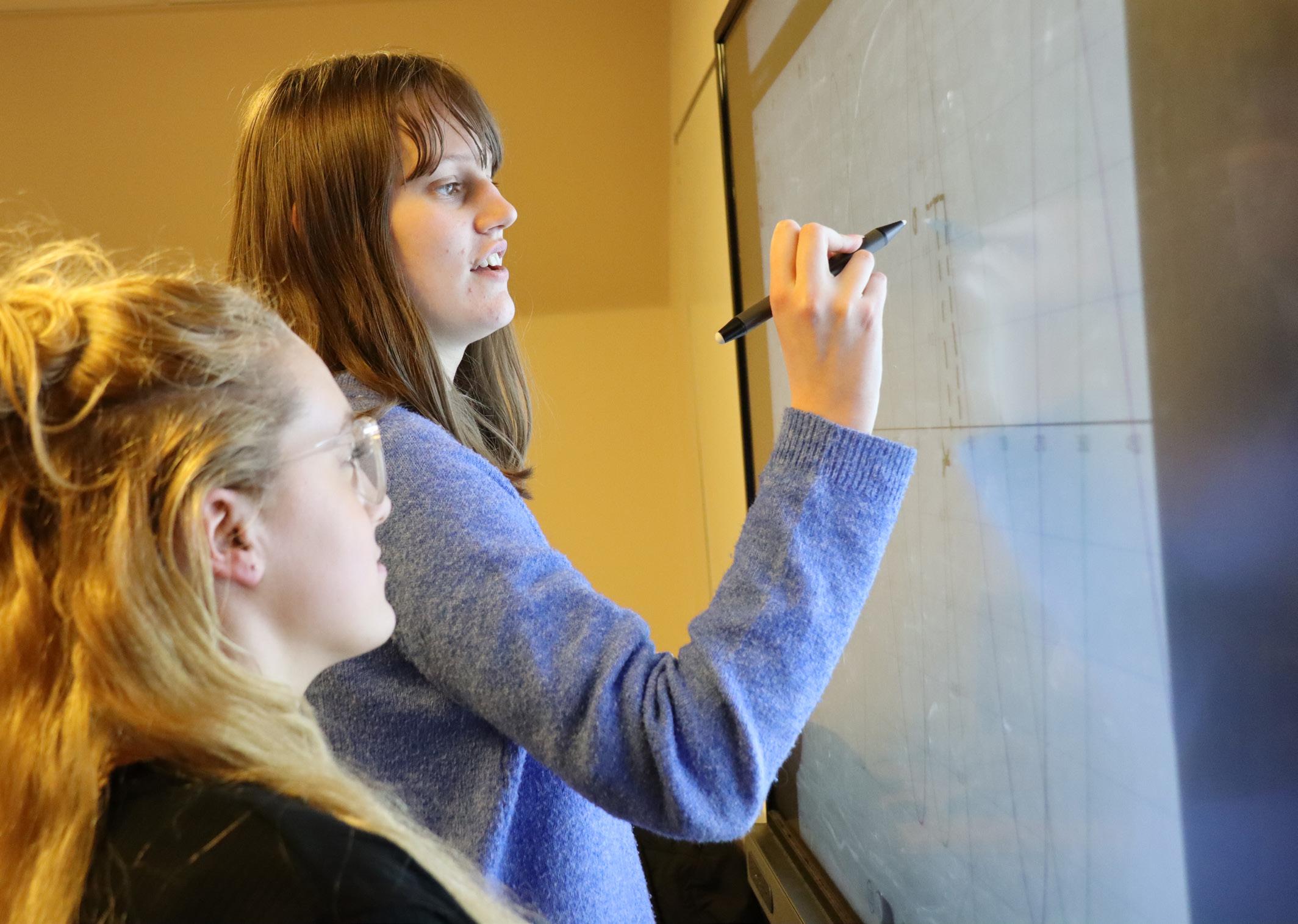
Students should be confident with algebra, have a solid grasp of GCSE Maths, and be willing to engage with challenging concepts. Persistence, attention to detail, and a methodical approach are key to success.
Professions such as engineering, actuarial work, data analysis, quantitative finance, and scientific research typically require A Level Maths. It is also highly beneficial for careers in medicine, architecture, and economics.
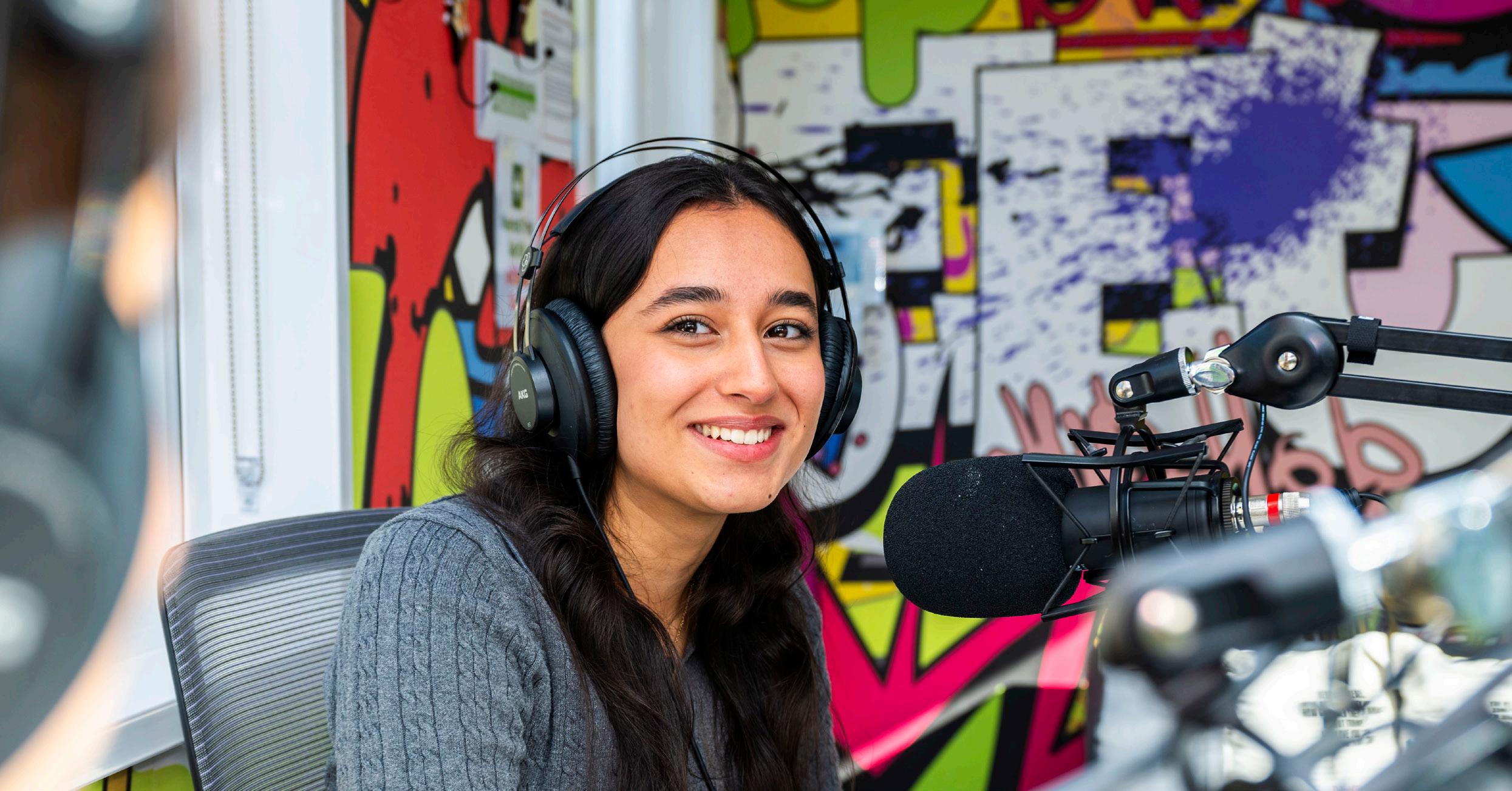
Media Studies gives students the opportunity to view, evaluate and analyse a variety of media products, and develop practical skills spanning a range of media forms. You’ll find diverse, contemporary topics with varied and engaging content, helping you to develop research, problem-solving skills as well as your own creativity. Extend your practical skills in your chosen medium and build your capacity for independent research, resulting in a deeper appreciation and understanding of the role media plays in day-to-day life.
Media Studies is one of the most relevant and exciting subjects you can study today.
In a world where we are constantly surrounded by media— from streaming platforms and social networks to film trailers and political campaigns—this course gives you the tools to understand, critique, and even shape those messages. You’ll explore a wide range of media forms and genres, from the classic to the cutting-edge, and get to be both analyst and creator.
Whether you’re deconstructing a controversial advert or editing your own short film, Media Studies gives you a voice—and the skills to use it.
In Year 12, you’ll start by exploring a range of media forms including advertising, film marketing, music videos, newspapers, magazines, and radio. You’ll study key theoretical frameworks (media language, representation, industries, and audiences) and apply them to real media products.
You’ll also begin planning your Non-Exam Assessment (NEA), which involves producing a media product such as a magazine, website, or short film extract. The focus is on building both theoretical knowledge and practical skills in the first year.
Year One Assessment Content Details Assessment Content Details
Media Language and Media Representations
Media Industries and Media Audiences
Questions in this section will test the following forms:
• advertising and marketing
• music video
Questions in this section can test any two of the following forms:
• radio
• newspapers
• film (industries only).
Written exam: two hours 84 marks
35% of A Level
A range of questions relating to an unseen source and Close Study Products.
Two essay questions (20 marks), one of which is an extended response question
Year Two Assessment Content Details Assessment Content Details
Written exam: two hours 84 marks 35% of A level
In-depth media
Forms of television, magazines and online, social and participatory media/video games.
One medium length unseen analysis question.
Three essay questions (25 marks), one of which is an extended response question and one of which is a synoptic question.
Non-Exam Assessment Content Details Assessment Content Details
Ideally students will have achieved GCSE English Language or Literature at Grade 6-9.
Creating a cross-media production
Application of knowledge and understanding of the theoretical framework. Ability to create media products.
A choice of one of six annually changing briefs, set by the board.
60 marks 30% of A Level
Students produce: a statement of intent a cross-media production made for an intended audience.
A Level Media Studies is ideal for curious, creative, and analytical students who are interested in how the media shapes our world. If you find yourself questioning what’s behind the headlines, analysing adverts, or exploring how films, music videos, games, or social media influence our ideas and culture, then this is the course for you. It suits students who enjoy both academic analysis and practical creativity, as it offers a blend of theory and hands-on production work.
Studying Media Studies will give you a critical understanding of the modern world through the lens of media. You’ll learn how media messages are created, distributed, and interpreted, giving you powerful insight into areas like representation, audience influence, and media ownership. You’ll also develop practical production skills using industry-standard tools and techniques. By the end of the course, you’ll have created your own media product, built a strong foundation in media theory, and gained transferable skills in research, analysis, communication, and digital production.
To thrive in Media Studies, you should have strong analytical skills, a creative mindset, and an interest in current affairs, popular culture, and digital trends. You’ll need to be able to write well-structured essays, interpret visual and written texts, and critically engage with ideas around media theory. Being organised and having good time management will also help, especially when working on your coursework. Familiarity with software like Adobe Photoshop or Premiere Pro is helpful, but not essential—these skills are easily picked up!
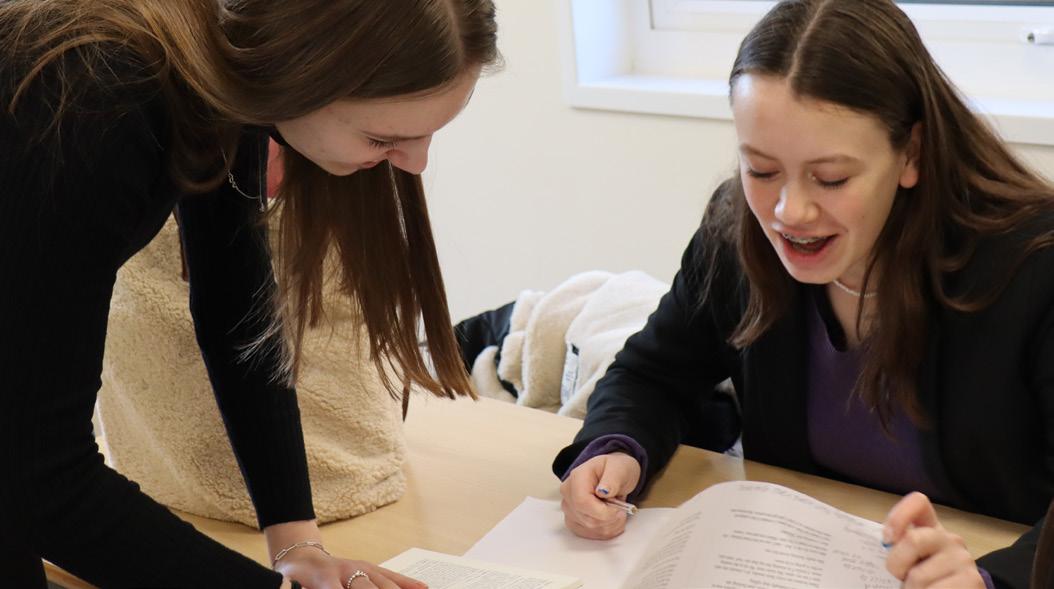
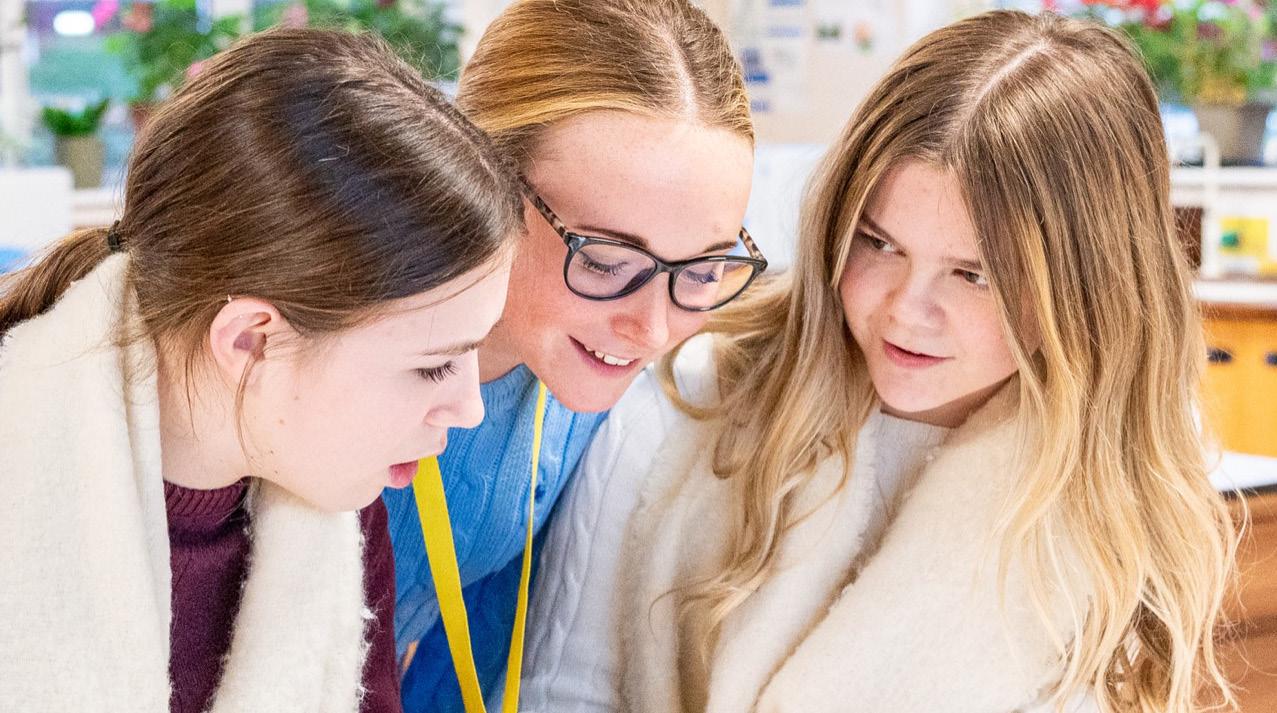
While not all careers require A Level Media Studies as a prerequisite, it’s an excellent starting point for professions such as journalism, film and TV production, advertising, public relations, digital marketing, social media management, and content creation. It’s also relevant for careers in publishing, game design, media research, and cultural analysis. If you’re aiming to work in any form of media or communications, this subject offers a strong foundation.
There are usually no compulsory costs associated with A Level Media Studies beyond standard classroom resources such as the text book for £40. However, optional enrichment opportunities—such as media-focused trips, workshops, or visits to film studios or exhibitions—may be offered. These typically range from £30–£100 depending on the activity. Students may also choose to invest in their own SD cards, USBs, or headphones for coursework.
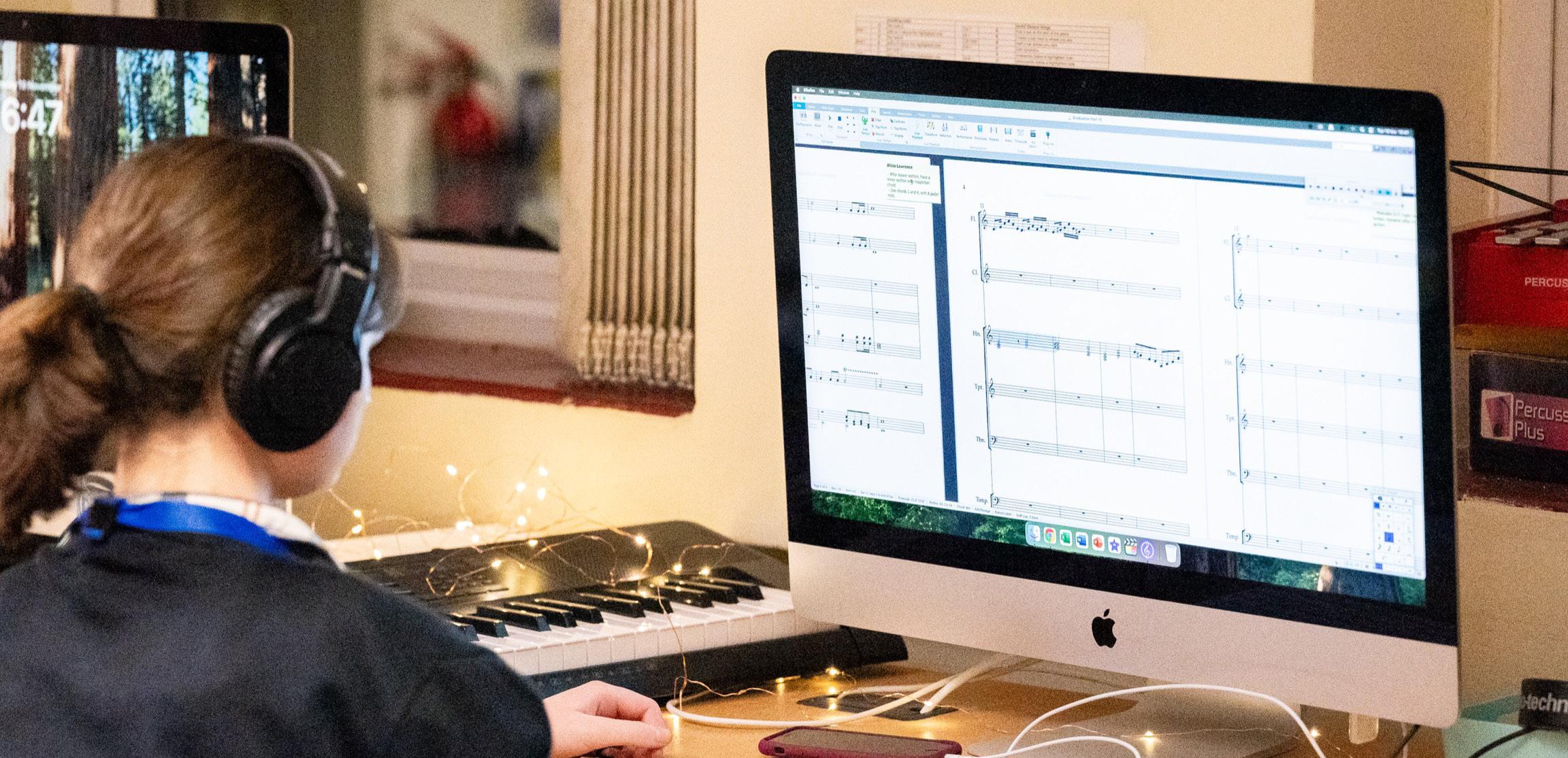
Music A Levels demands and develops a huge range of skills that are enormously respected by universities and employers: the discipline of becoming a good performer; the creativity and tenacity of starting, developing, refining and completing compositions; the accuracy of a good musical ear to identify features in different styles of music; the analytical skills to perceive patterns and details in scores that you study; the confidence to keep trying to improve in all of these areas when it feels challenging.
Music is a good mix of practical and theoretical study and you can see your progress and new understanding quickly at A Level as you immerse yourself into such a creative subject with four double lessons each week.
Brief summary of what happens in Year 12
You are introduced to the Classical set works and start to analyse them while gaining a good understanding of the symphony in the first half of the Classical period. You work on your listening and aural accuracy skills. We study pieces to learn the musical features of the second area of study Pop and Rock, Musical Theatre or Jazz, and complete two compositions, one of which is a Classical piece based on a Brief from the exam board, the other being a Free Choice piece.
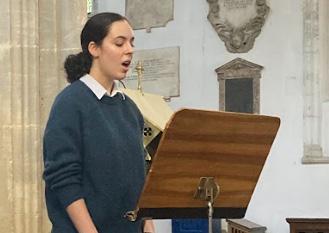
Minimum Grade 7 at GCSE Music. If you have not taken GCSE Music you will need to have at least Grade 5 Theory and Grade 5 on an instrument of your choice. Vocalists taking A Level Music will benefit from having a second instrument.
Component 1: Performance
Component 2: Composition
Solo and/or ensemble performing as an instrumentalist or vocalist. 6-8 minutes in total is required, performed before a visiting examiner.
Composition 1: Composition that reflects music conventions of the Western Classical Tradition in response to a brief.
Composition 2: Free composition. Four minutes and 30 seconds-7 minutes of music in total are required.
Component 3: Appraising Music
Component 1: Performance
The study of Western Classical Music, focusing on the Symphony. Choose between Rock and Pop, Musical Theatre or Jazz for a second area of study. Assessed externally with a 90 minute listening and written exam.
72 marks (30% of total).
72 marks (30% of total).
88 marks (40% of total).
Component 2: Composition
Solo and/or ensemble performing as an instrumentalist or vocalist. If performance is the chosen focus, 10-12 minutes are required; otherwise 6-8 minutes, performed before a visiting examiner.
Composition 1: Composition that reflects music conventions of the Western Classical Tradition in response to a brief.
Composition 2: Free composition. These are 4-6 minutes in total. If composition is the focus, a third composition is required that relates to a further area of study. The required total becomes 8-10 minutes in total.
Details
108 or 72 marks (35 or 25%).
72 or 108 marks (25 or 35%).
Component 3: Appraising Music
The study of Western Classical Music, focusing on the Symphony. Choose between Rock and Pop, Musical Theatre or Jazz for a second area of study. The final area of study is a choice between ‘Into the 20th Century’ or ‘Into the 21st Century’. Written and listening exam: two hours and 15 minutes. 100 marks (40%).
A creative person with a palpable interest in Music and some good performing skills; a student who is open to discovering more about a range of styles of music and isn’t afraid to go outside of their comfort zone.
A highly respected qualification that reflects that students have excellent creative, performance and analysis skills. You will also get a lot of satisfaction from the breadth and depth of knowledge you will acquire as well proving yourself as a composer and performer.


You need to be at least Grade 6 on an instrument for AS and Grade 7 for A Level. You will need to feel able to tackle compositions, knowing that you will receive guidance in extending and developing your work. You will need to be a confident music reader; this will help with score-reading as well as making notating compositions a lot more simple.
Careers can include: Music teaching, composing, conducting and music technology.
Ongoing instrumental lesson costs and those of music exams. There may be trips to see concerts or recommended concerts to attend but these are likely to be relatively modest. Further information is available through the Music Department.
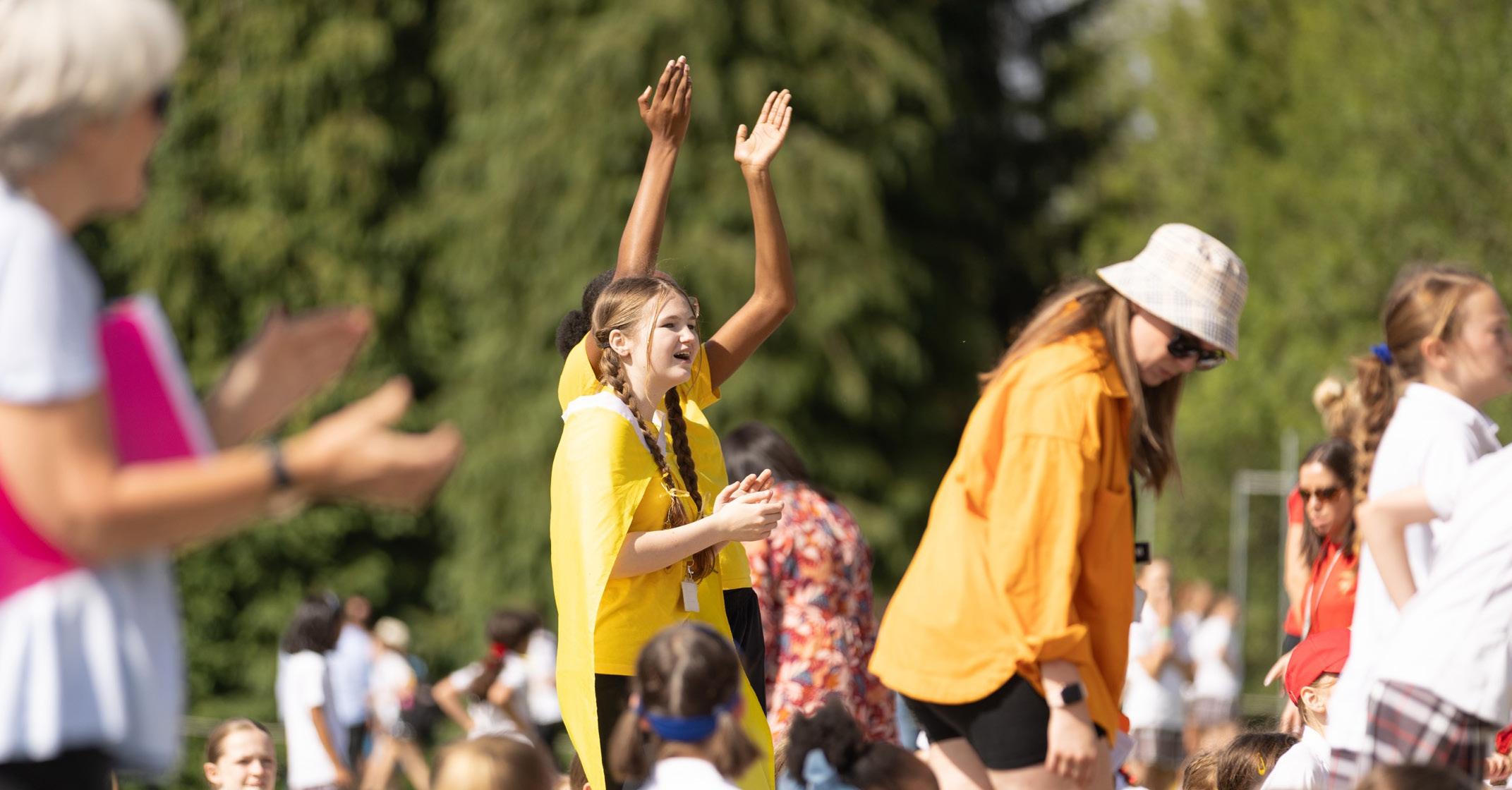
Physical Education is one of the broadest A level courses you could opt to choose and therefore has numerous links to many other subjects and career pathways. The only proviso is that you love playing your sport to a good club standard as well as being equally happy to watch live sporting matches and documentaries!
In Year 12, you will be expected to record your competitive footage, which is a minimum requirement of two competitions per half-term to ensure enough evidence is corrected. Theoretically we focus on training, nutrition, energy systems, biomechanics and the history of sport with an introduction to skill acquisition at the end of the year. You will commence your coursework in the Summer Term.
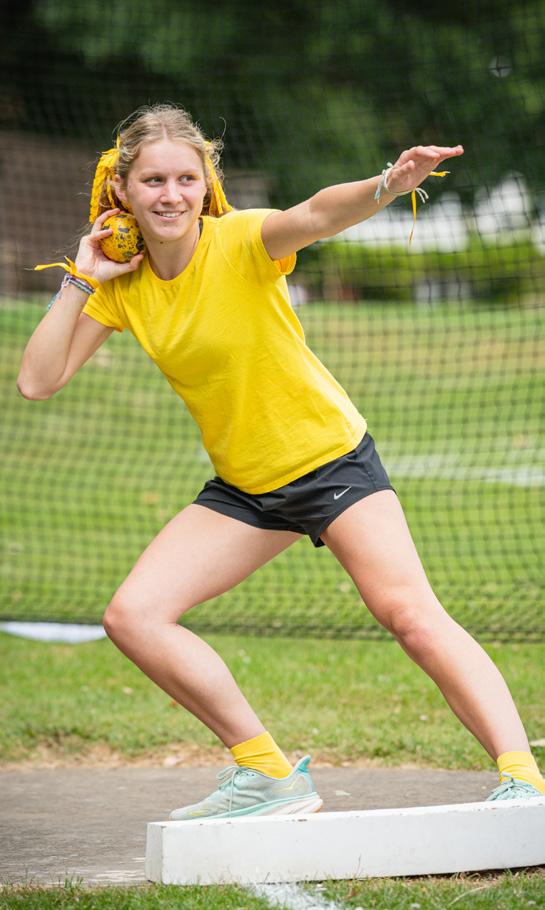

GCSE PE would be useful but not essential. An average GCSE Science at Grade of 5 or above is a minimum requirement to study the course due to the scientific nature of some of the modules. All students on this course will gain the knowledge and skills necessary to study sport at degree or higher education level. An ongoing active and involvement in competitive sport however is a must.
How will I be assessed?
Year One | Internal Assessment only
Year Two Assessment Content Details
Section A: Applied anatomy and physiology.
Paper 1: Factors Affecting Participation in physical activity and sport
Section B: Skill acquisition.
Section C: Sport and society
Multiple choice, short answer and extended writing.
Section A: Exercise physiology and biomechanics.
Paper 2: Factors affecting optimal performance in physical activity and sport
Written exam: two hours. 105 marks (35% of A Level).
Practical performance in physical activity and sport
Section B: Sport psychology.
Section C: Sport and society and technology in sport. Multiple choice, short answer and extended writing.
Students assessed as a performer or coach in the full sided version of one activity. Plus written/ verbal analysis of performance.
Written exam: two hours. 105 marks (35% of A Level).
Non-Examination Assessment. 90 marks (30% of A Level).
A student who is excited to delve further into how the physiological and psychological aspects of sport can be developed to further their own sporting careers and to understand why their body allows them to achieve what they have so far. The student needs to be passionate about their one particular sport.
Students will gain a greater understanding of why their body can train and perform so well, how their training, both in terms of skill development and fitness improvements has occurred and its effect on the body. They will gain a greater insight into how they can adjust their training, nutrition, diet to help achieve maximise performance. You will look into how the psychological aspect of sport plays a bigger role in your performance.
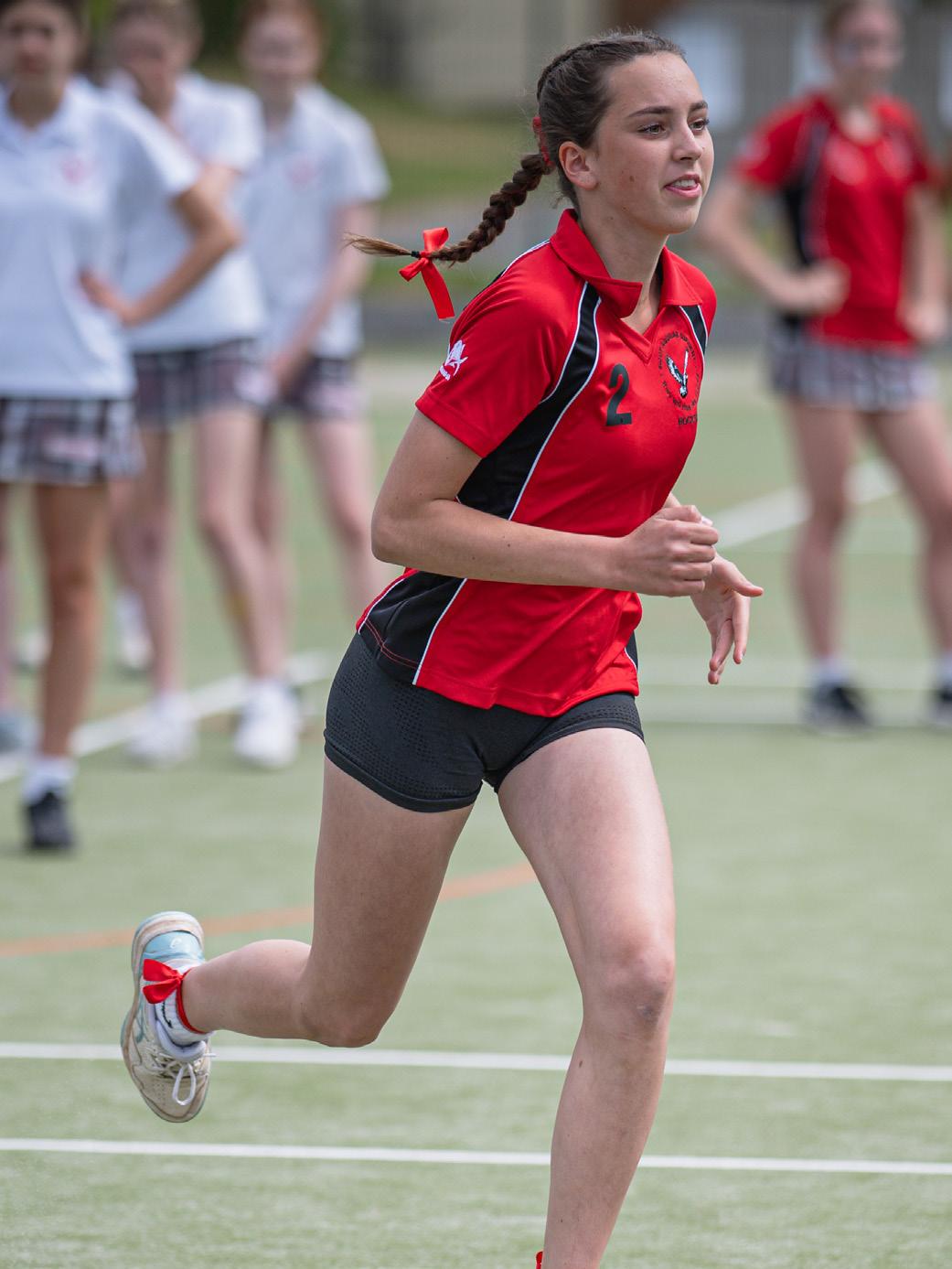
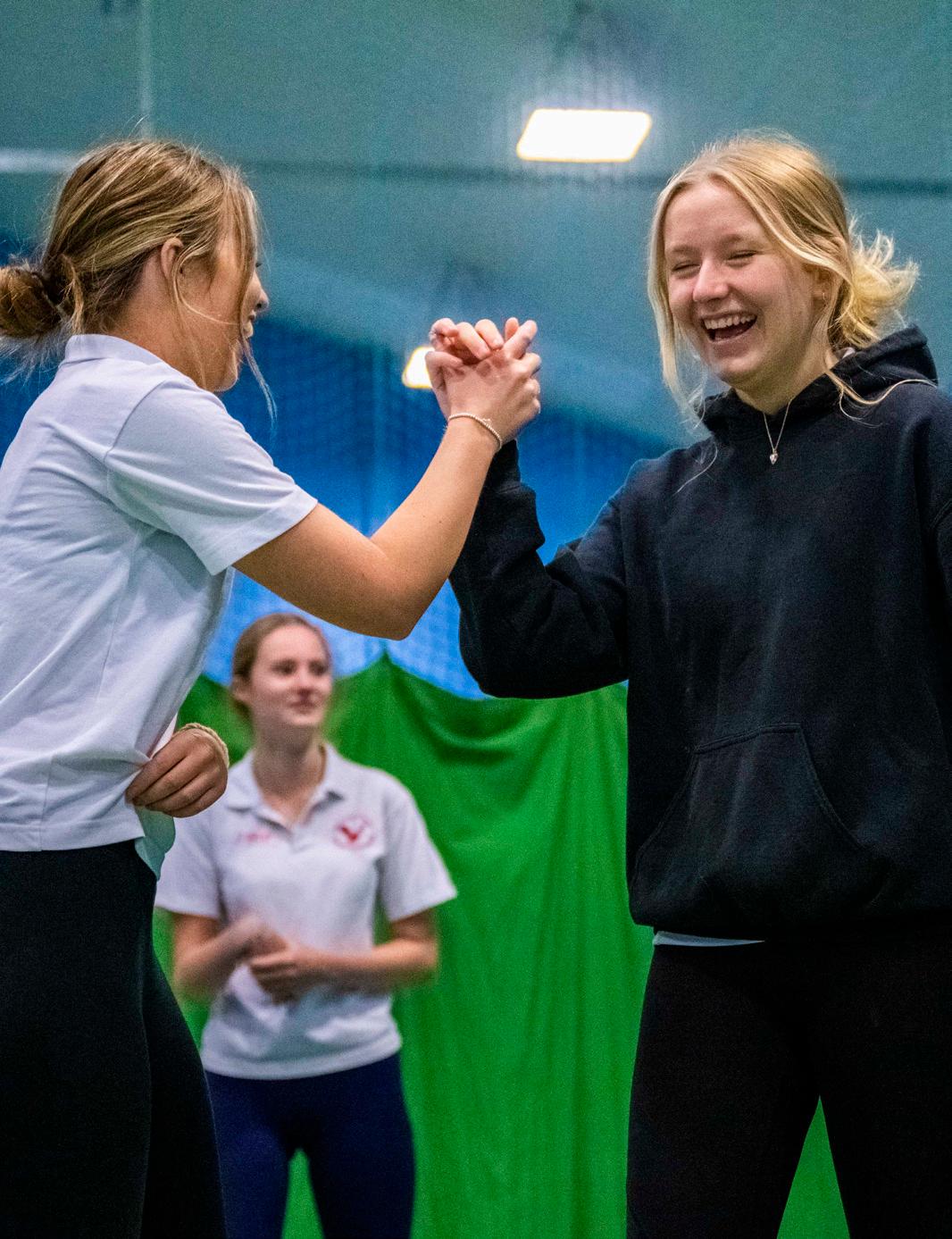
To be dedicated to your own sport outside of school and to be at, at least club standard. To be interested in learning in greater depth about all aspects of the human body. Be willing to work in small groups.
Possible career options include teaching, coach/instructor, sports development or psychologist. When combined with subjects such as Business Studies it could lead into employment sectors such as sports and leisure management. Combined with the correct A Levels it could be a step into a career in medicine or physiotherapy. Or with an increasing media interest in the world of sport, careers such as sports journalism or sports presenter are possibilities for those wishing to combine the subject with English.

A Level Physics is more than a subject it is a pathway to understanding and shaping the future. It combines theory with practical work to reveal the laws that govern the universe, from the smallest particles to the vastness of space.
By studying Physics, you not only gain valuable knowledge and transferable skills, but also contribute to a more balanced and diverse scientific community.
Your involvement ensures that the challenges and opportunities of the future are tackled by voices that represent everyone in society.
Brief summary of what happens in Year 12
In Year 12, you will explore the foundations of Physics that underpin much of modern science and technology. You will study topics such as waves, particles, mechanics, and electricity, alongside practical investigations that develop experimental skills. This year provides the building blocks for Year 13 while allowing you to see how Physics explains both everyday experiences and extraordinary discoveries.
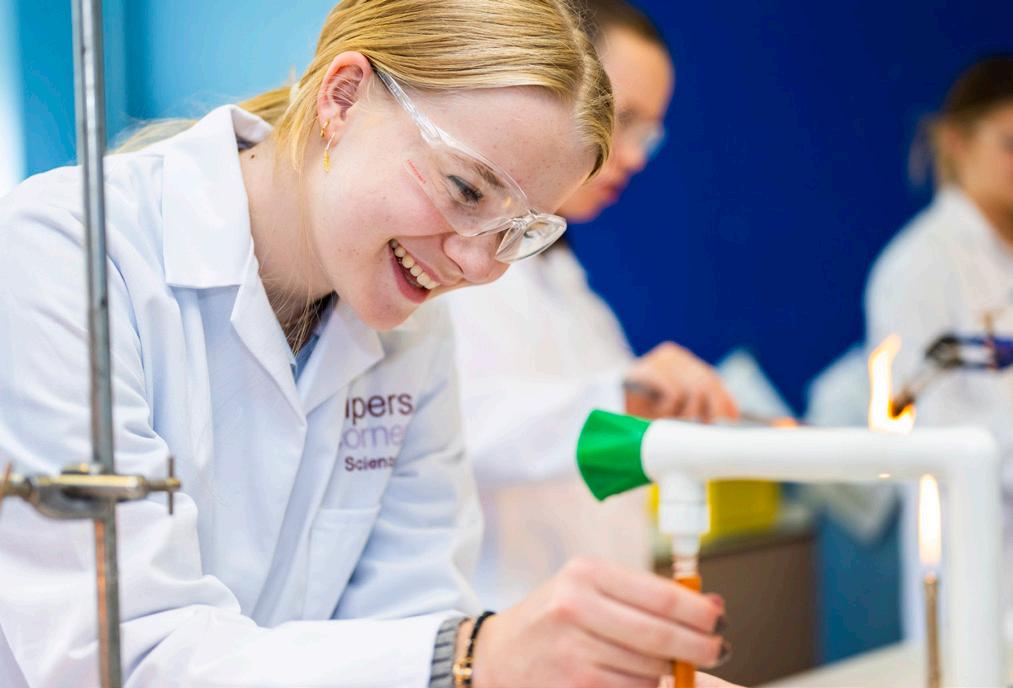
A Grade 9-7 in GCSE Physics or 9-7 in GCSE Science Trilogy and GCSE Mathematics along with a good enquiring mind.
Year One
Paper 1
Paper 2
Sections 1–5
Short and long answer questions split by topic.
Sections 1-5
Section A: 20 marks of short and long answer questions on practical skills and data analysis.
Section B: 20 marks of short and long answer questions from across all areas of Year 1 content.
Section C: 30 multiple choice questions.
Sections 1-5 and 6.1
(Periodic Motion)
Paper 1
Paper 2
Paper 3
60 marks of short and long answer questions and 25 multiple choice questions on content.
Sections 6.2 (Thermal Physics), 7 and 8
60 marks of short and long answer questions and 25 multiple choice questions on content.
Section A (45 marks)
Compulsory section: Practical skills and data analysis. Short and long answer questions.
Section B (35 marks) Students choose one section from list of options given. Short and long answer questions.
Written exam: one hour, 30 minutes.
70 marks (50% of AS Level)
Written exam: one hour, 30 minutes.
70 marks (50% of AS Level).
Written exam: two hours. 85 marks (34% of A Level).
Written exam: two hours. 85 marks (34% of A Level).
Written exam: two hours. 80 marks (32% of A Level).
A Level Physics suits inquisitive, motivated, and determined students who are eager to challenge themselves. If you enjoy problem-solving, logical thinking, and applying Mathematic principles to explain how the world works, then Physics is an excellent choice.
By studying Physics, you gain far more than just academic knowledge. You will develop resilience, logical reasoning, and the ability to approach complex challenges with confidence. These are skills that prepare you for success in higher education and professional life. For women, Physics also offers the chance to contribute your unique perspective to a field where female voices are underrepresented, making your involvement not only personally rewarding but socially significant.
To succeed in Physics, you need a solid foundation in mathematics and the confidence to engage with challenging problems. In addition to good communication skills, you require substantive knowledge and scientific literacy. You require disciplinary skills (practical skills), such as precision in experiments, data analysis, and evaluation. However, the most vital qualities are curiosity, determination, and creativity.
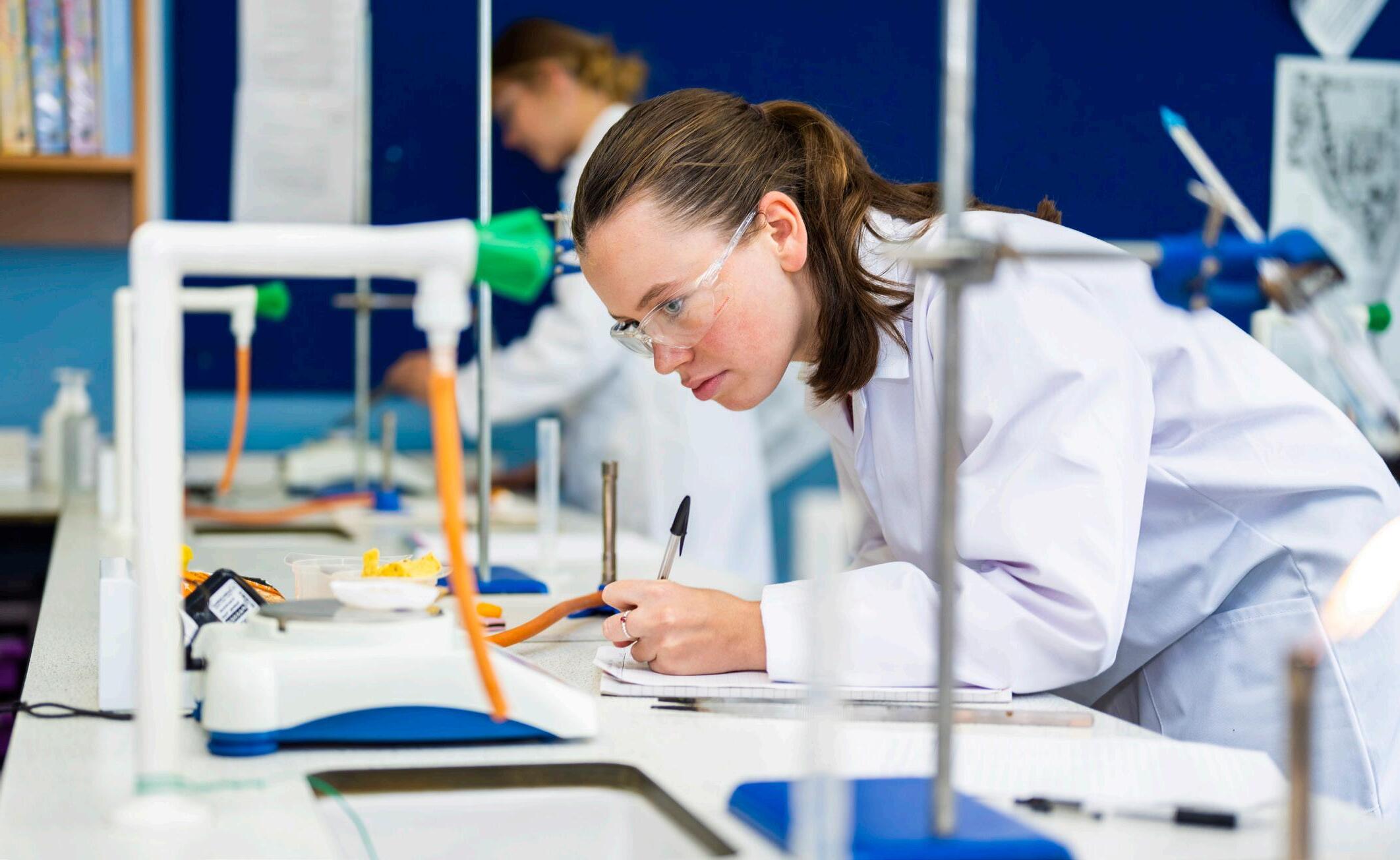
You must study A Level Physics if you want to pursue careers in engineering, architecture, physical sciences, medicine, or technology-related fields. Physics is especially important if you want to be part of the solution to global challenges such as climate change, sustainable energy, and technological innovation. Your perspective is vital in ensuring that solutions to these challenges are inclusive, balanced, and representative of society as a whole.

The study of Politics empowers students to make links between political theories studied in the classroom and current political events in the UK and the USA. The course has three key elements: the first focuses on political culture and engagement, the second on how the UK is governed, including a study of political philosophy and ideas, and the third involves a comparative analysis of the government of the USA.
In Year 12, students begin by exploring UK Politics, focussing on elections, political parties, voting behaviour, and the influence of pressure groups. They then move on to studying UK Government, examining the constitution, the structure and functions of Parliament, the role of the Prime Minister, and the workings of the judiciary. Alongside this, students develop an understanding of core political ideologiesliberalism and conservatism. They will learn how these ideas have shaped political thought and practice.
Lessons are discussion-based and encourage students to engage with real world examples, analyse political issues critically and refine their essay writing skills.
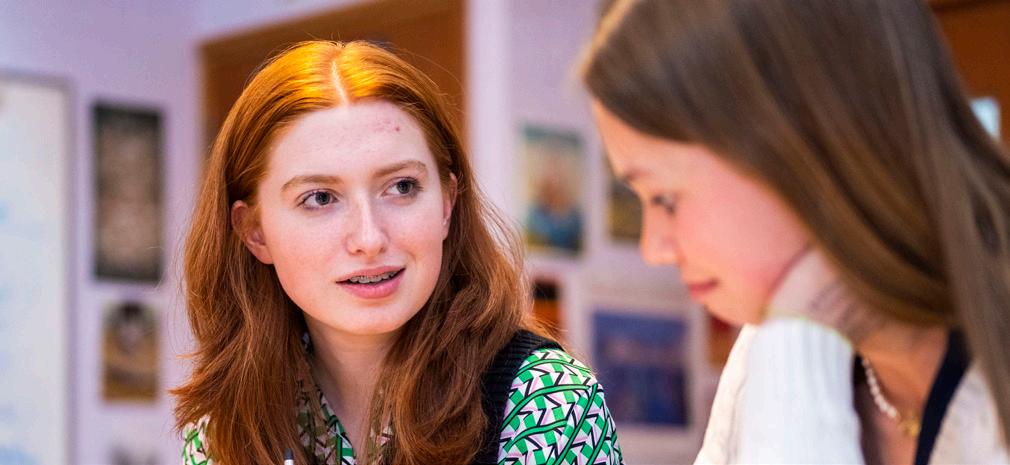
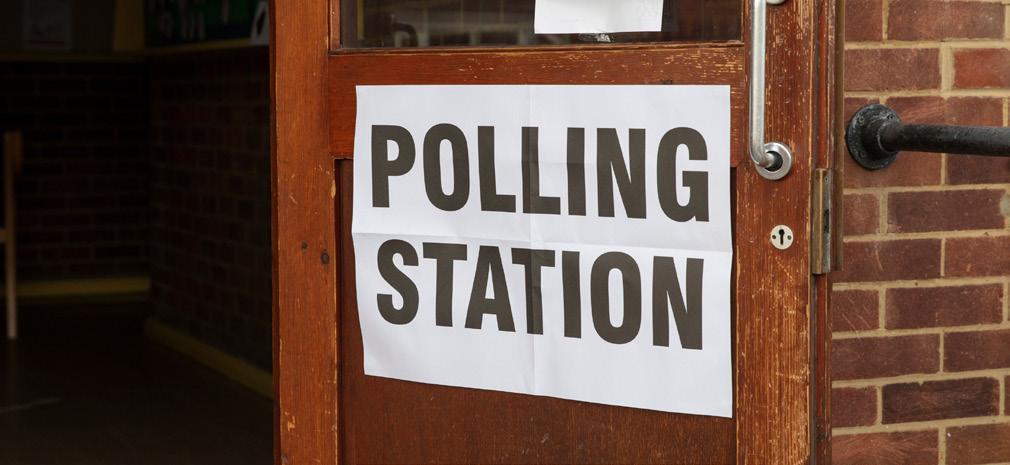
Year One
Component 1: UK Politics
Component 2: UK Government
One 10 mark question from a choice of two.
One 10 mark question based on a single source.
One 10 mark question focusing on two comparative sources.
One 30 mark question from a choice of two.
One 10 mark question from a choice of two.
One 10 mark question based on a single source.
One 10 mark question focusing on two comparative sources.
One 30 mark question from a choice of two.
Year Two
Component 1: UK Politics
Component 2: UK Government
Component 3: Comparative Politics –Government and Politics of the USA
One 30 mark source question from a choice of two.
One 30 mark essay question from a choice of two.
One 24 mark question from a choice of two.
One 30 mark source question from a choice of two.
One 30 mark essay question from a choice of two.
One 24 mark question from a choice of two.
One 12 mark question from a choice of two.
One compulsory 12 mark question focused on comparative theories.
Two 30 mark questions from a choice of three.
Written exam:
One hour, 45 minutes. 60 marks. (50% of AS Level).
Written exam: one hour, 45 minutes.
60 marks. (50% of AS Level).
Written exam: two hours.
84 marks. (One third of A Level).
Written exam: two hours.
84 marks. (One third of A Level).
Written exam: two hours.
84 marks. (One third of A Level).
A Level Politics suits students who are curious about how the world works, enjoy debating, discussing current affairs and politics, and like to form and justify their own opinions. It’s ideal for students who are interested in issues of power, democracy, and global relations, and who enjoy analysing arguments and ideas critically.
You’ll gain a deep understanding of how political systems operate in the UK and in the US. You’ll learn about ideologies, institutions, and the those that shape political decisions and processes. Studying Politics will help you become a more informed, articulate, and critical thinker-skills that are valuable in both higher education and the workplace.
Politics requires students to have a strong interest in current affairs and world events, along with the ability to read, analyse, and evaluate information critically. Good written communication and essay writing skills are essential, as is a willingness to discuss and debate ideas. Students also need to be able to think logically and construct well-reasoned arguments to support their points of view.
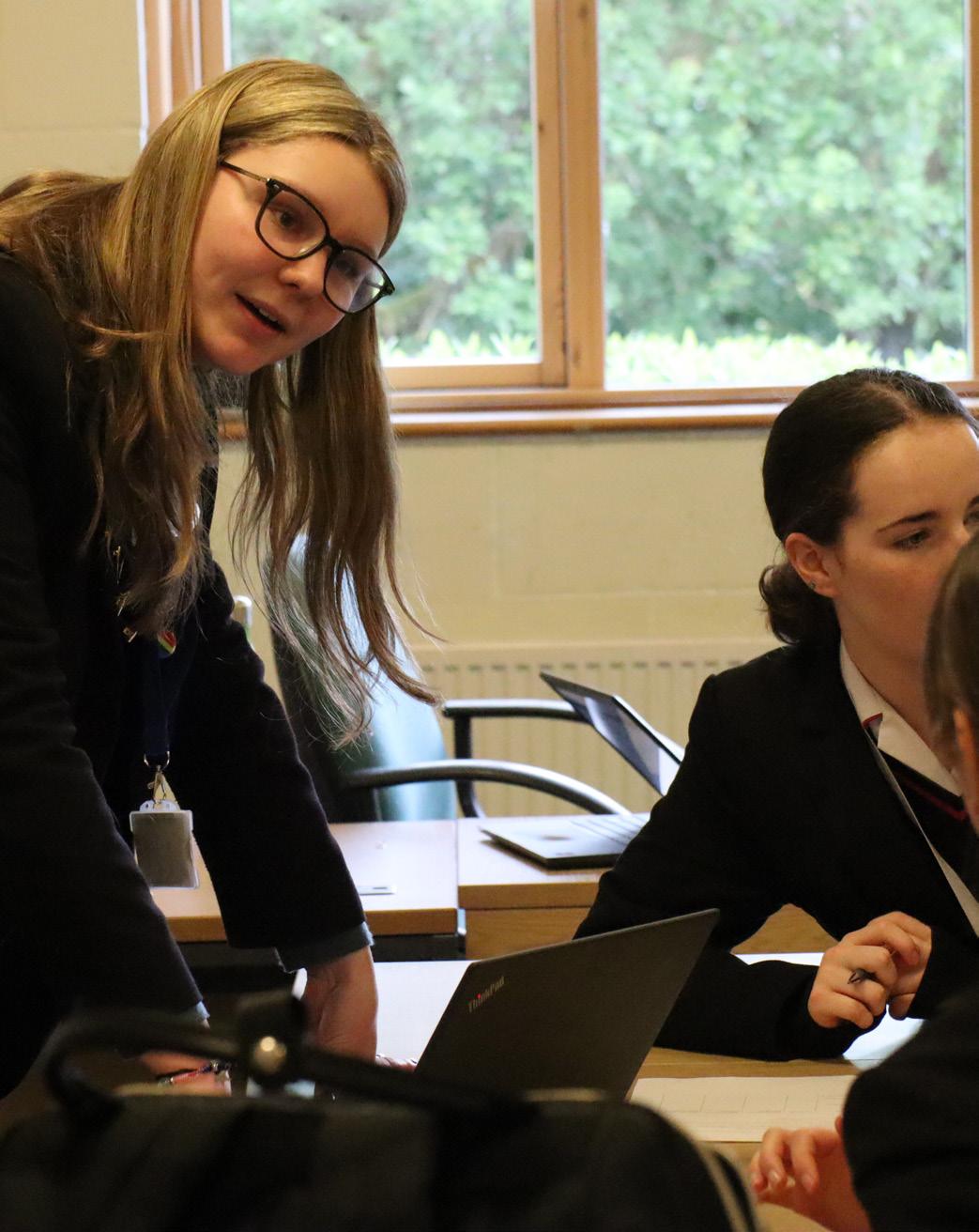
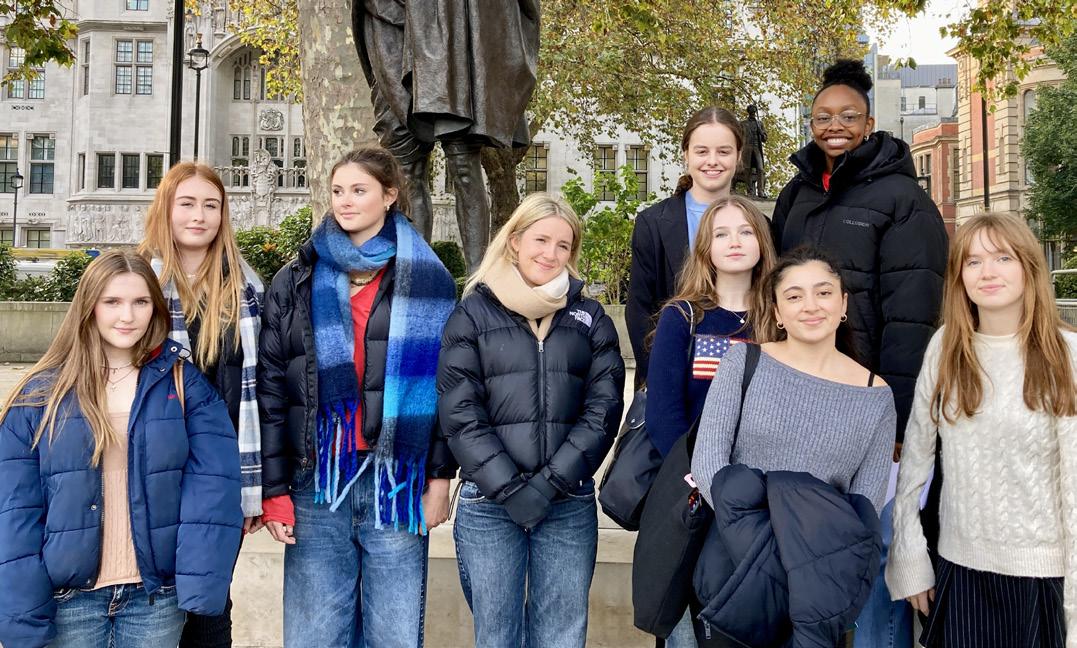
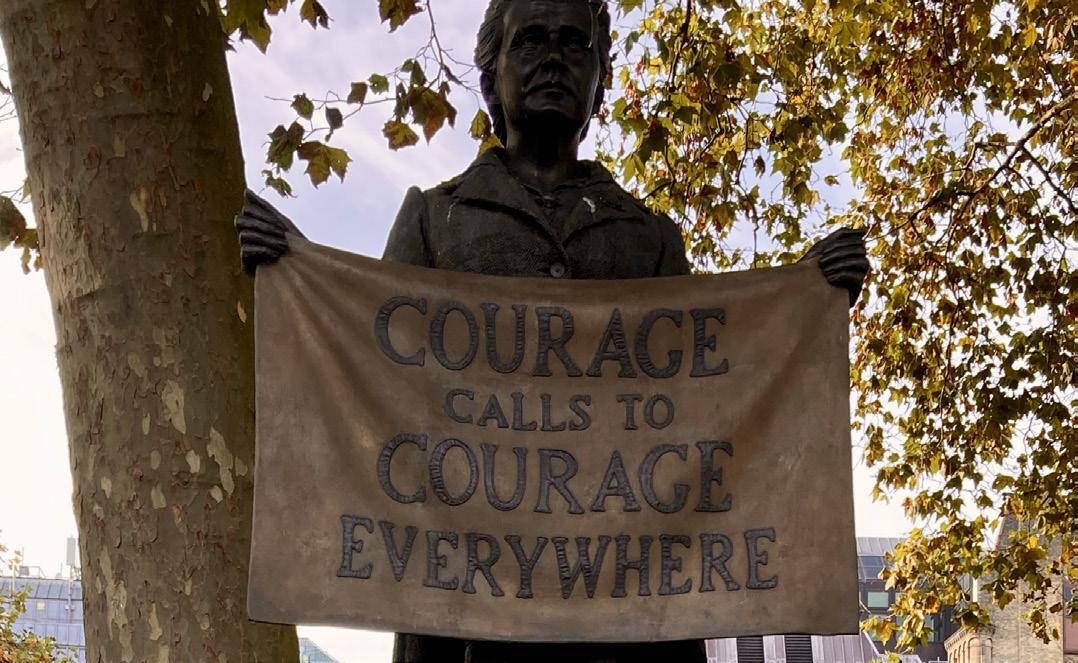
Studying Politics provides an excellent foundation for those wishing to pursue subjects such as politics, international relations,law, or public policy at university. It is also highly beneficial for students interested in careers in journalism, law, public administration, or government advisory roles. While the subject is not a formal requirement for entry into these fields, it offers valuable knowledge and analytical skills that will support future academic study and professional development.
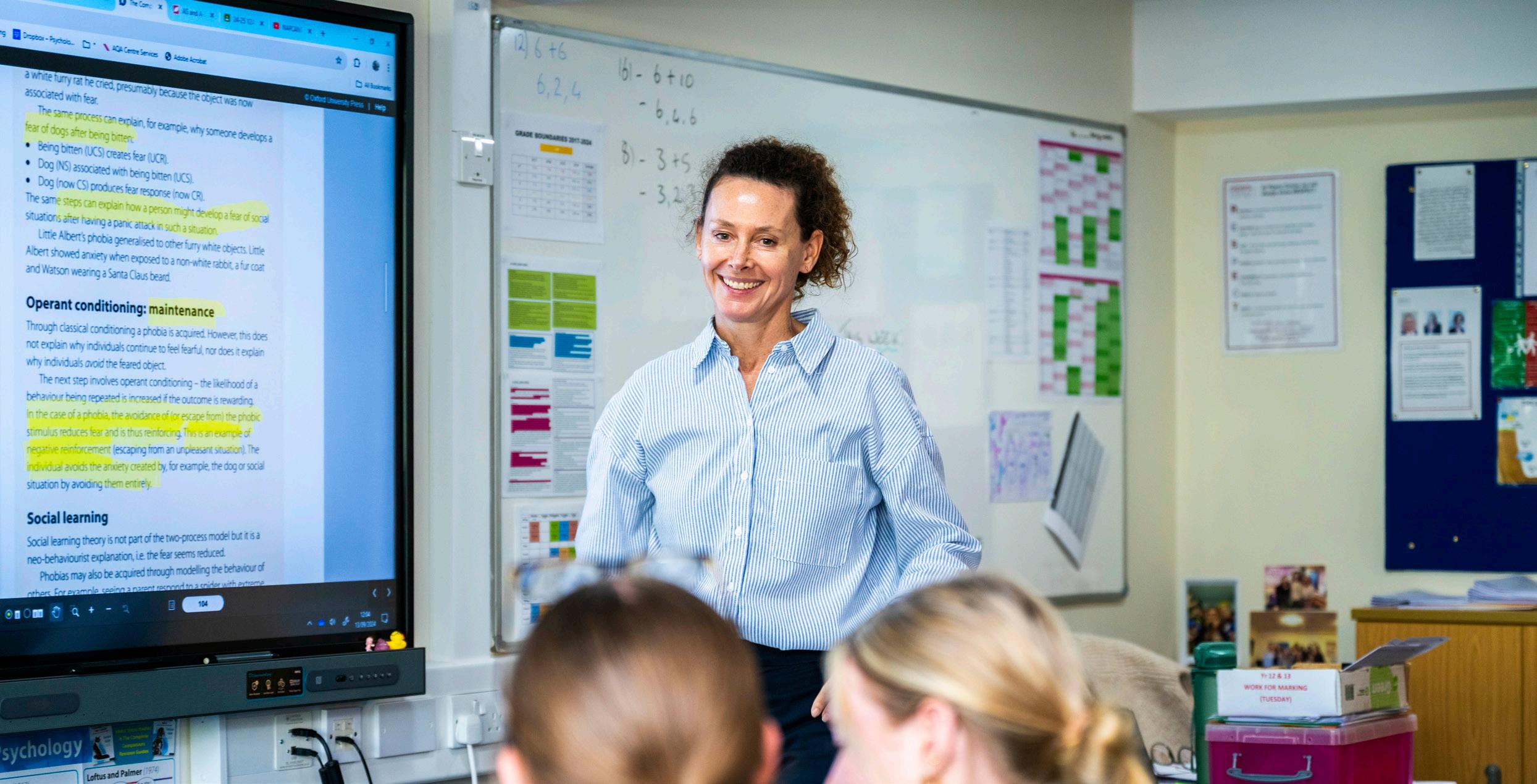
A Level Psychology will give you an understanding of the way people think and why people behave in certain ways. You will learn a variety of skills including analytical thinking, improved communication, problem solving that will prepare you for an exciting future with the possibility of a range of fantastic careers.
Whether you’re studying for the AS or the A Level, your first year will cover the same topic areas:
• Introductory topics in Psychology: learn about conformity, social norms, how the mind remembers and forgets and how children form attachments
• Psychology in context: learn more about the different approaches in psychology and how to design and conduct your own research.
In the second year of the A Level you’ll deepen your understanding of human behaviour. You’ll study additional topics under Approaches in Psychology, Biopsychology, Research methods and Issues and debates in Psychology.
Issues and options in Psychology: learn more about psychological concepts, research methods and ethical issues.
Issues and debates in Psychology: learn about the fascinating tendencies of human behaviour, with options looking into gender differences and the criminal mind.
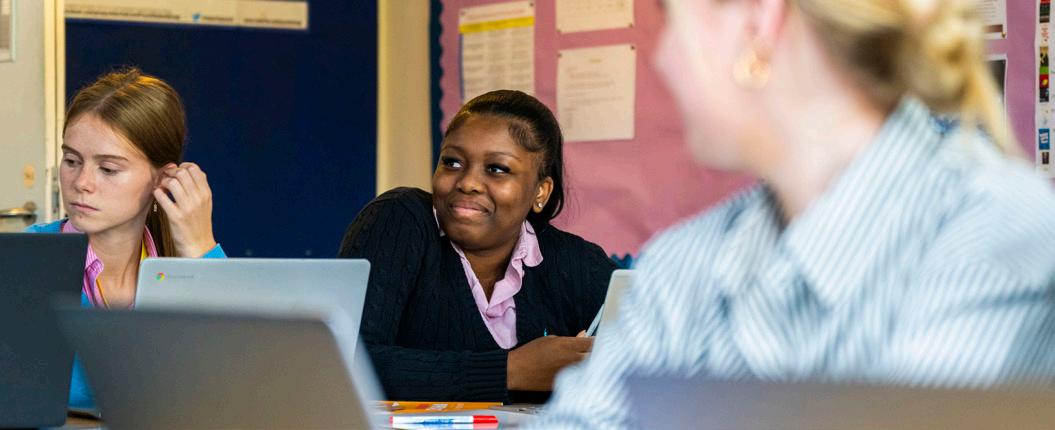
Entry requirements
A minimum of Grade 6 in GCSE Science and Mathematics. A good level of English Comprehension is essential.
Year One
Paper 1: Introductory topics in Psychology
Paper 2: Psychology in context
Year Two
Paper 1: Introductory topics in Psychology
Compulsory content: Social Influence, Memory and Attachment.
Multiple choice, short answer and extended writing.
Compulsory content: Approaches in Psychology, Psychopathology and Research Methods.
Multiple choice, short answer and extended writing.
Written exam: one hour, 30 minutes.
70 marks (50% of AS Level).
Written exam: one hour, 30 minutes.
70 marks (50% of AS Level).
Compulsory content: Social Influence, Memory, Attachment and Psychopathology.
Multiple choice, short answer and extended writing.
Paper 2: Psychology in context
Paper 3: Issues and options in Psychology
Compulsory content: Approaches in Psychology, Biopsychology and Research Methods.
Multiple choice, short answer and extended writing.
Compulsory content: Issues and debates in Psychology.
Optional content: One from each of the three options.
Multiple choice, short answer and extended writing.
Written exam: two hours. 96 marks (one third of A Level).
Written exam: two hours. 96 marks (one third of A Level).
Written exam: two hours.
80 marks (one third of A Level).
Psychology suits students who are curious about why people think, feel, and behave the way they do. If you enjoy exploring human behaviour, analysing patterns, and questioning everyday assumptions, you’ll find this subject fascinating. It’s ideal for students who like a mix of science and essay writing, as you’ll use both analytical and creative skills to interpret research and real-world behaviour.
Psychology is a great subject to study because it will not only give you a number of transferable skills, it will also teach you more about the way people think. It’s also widely respected by employers in fields that value people skills, research, and evidence-based decision-making.
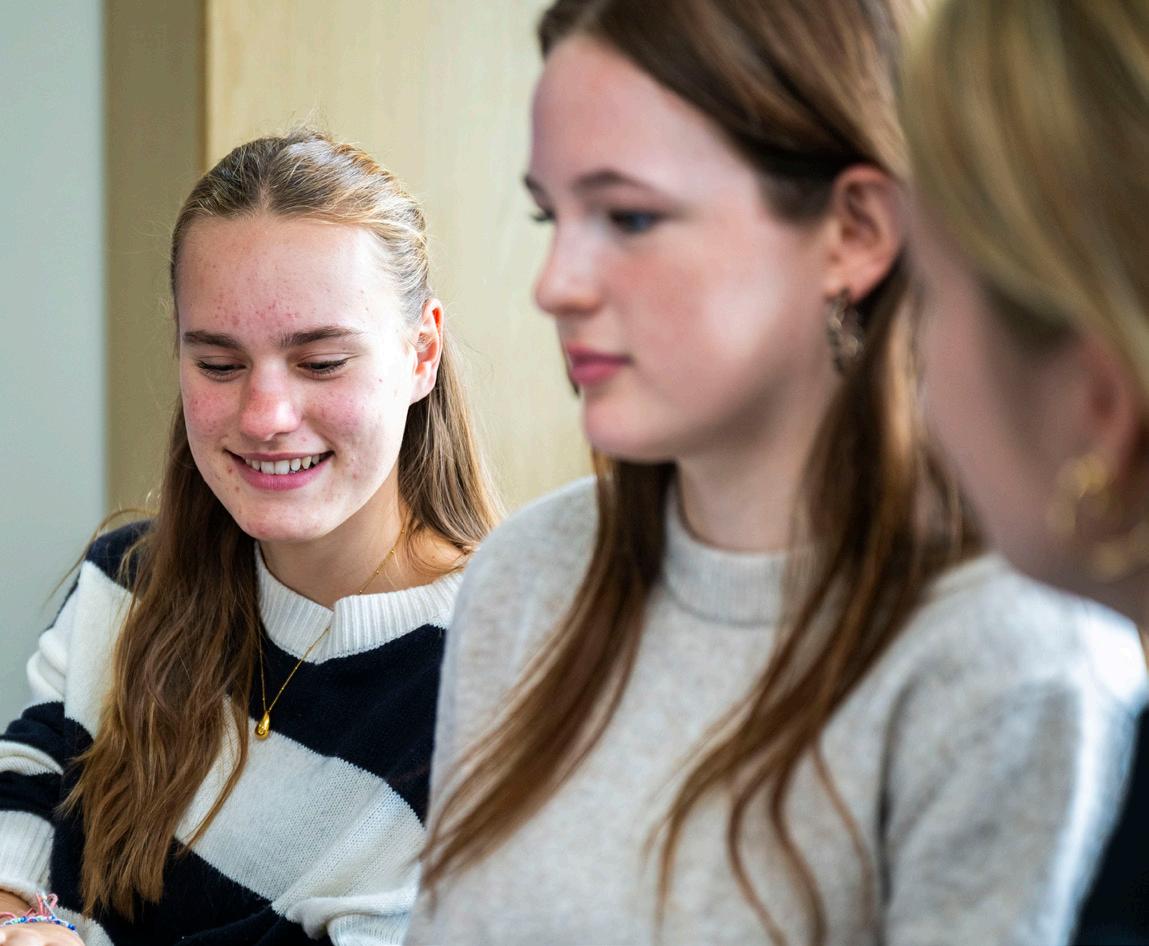

To succeed in Psychology, you’ll need to be:
• Analytical – able to evaluate evidence, arguments, and data critically.
• Organised – to manage detailed research studies and key terms.
• Numerate – comfortable interpreting statistics and research findings.
• Communicative – able to express ideas clearly in essays and discussions.
• Open-minded – willing to consider multiple explanations for behaviour and to challenge stereotypes.
Psychology helps you understand how people think and behave in real-world contexts — from mental health to education, crime, and relationships. Psychology is essential if you’re considering studying Psychology or related social sciences at university, and it’s a strong foundation for degrees in neuroscience, sociology, education, nursing, medicine, or criminology.
A Level Psychology is especially valuable if you plan to work in:
• Clinical, Counselling, or Educational Psychology
• Forensic or Occupational Psychology
• Psychiatry or Mental Health Services
• Teaching and Educational Support
• Social Work or Youth Work
• Human Resources, Marketing, or Research

Studying Philosophy, Religion and Ethics is essential for students in today’s complex world. These disciplines provide a strong foundation for critical-thinking, moral reasoning, and decision-making. The study of Philosophy, Religion and Ethics encourages students to question assumptions, analyse arguments and explore the most fundamental questions in life. It equips them with valuable skills in problem-solving and the ability to engage in thoughtful dialogue on complex issues.
The study of Philosophy, Religion and Ethics fosters empathy and tolerance, preparing students to navigate diverse perspectives and contribute positively to society.
In an era where ethical dilemmas abound, a background in Philosophy, Religion and Ethics is an invaluable asset, empowering students to make informed, ethically-sound choices in their personal and professional lives.
Brief summary of what happens in Year 12
In Year 12, you will be introduced to the three main components of the course:
• Component 1 | Philosophy of Religion: Ancient philosophical influences, the soul, mind and body, arguments for and against the existence of God, the nature of religious experience, and the problem of evil.
• Component 2 | Religion and Ethics: Key ethical theories and the application of these to two contemporary issues.
• Component 3 | Developments in Christian Thought: Beliefs, values and teachings in Christianity, sources of wisdom and authority, and practices that shape religious identity.
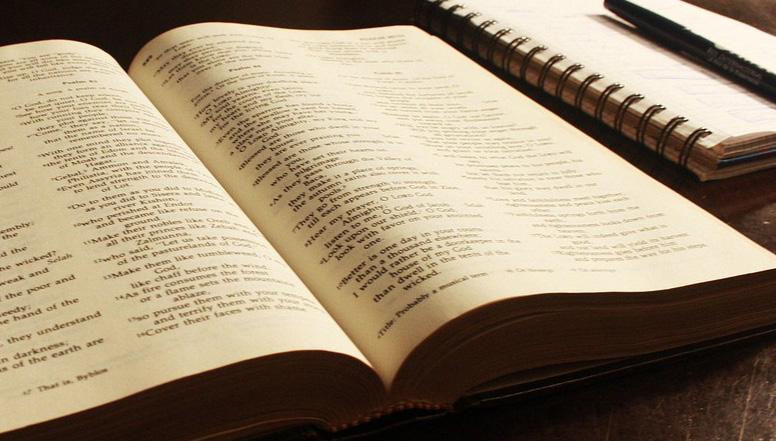
Year One
Paper 1 Philosophy of Religion
Paper 2 Religion and Ethics
Paper 3 Developments in Christian Thought
Written exam: one hour, 15 minutes. 60 marks (one third of AS Level).
Written exam: one hour, 15 minutes. 60 marks (one third of AS Level).
Written exam: one hour, 15 minutes. 60 marks (one third of AS Level).
Year Two
Paper 1 Philosophy of Religion
Paper 2 Religion and Ethics
Paper 3
Developments in Christian Thought
Written exam: two hours. 120 marks (one third of A Level).
Written exam: two hours. 120 marks (one third of A Level).
Written exam: two hours. 120 marks (one third of A Level).
GCSE Religious Studies at Grade 6 or above and/or GCSE English at Grade 6.
This subject is ideal for students who enjoy exploring big questions about life, belief, and morality. It suits those who are open-minded, enjoy discussion and debate, and are willing to consider different perspectives critically and thoughtfully.
You will develop critical thinking and analytical skills, as well as the ability to construct logical arguments and evaluate evidence. Religious Studies also helps you to reflect on your own views and values, while gaining a deeper understanding of the world around you. These skills are widely transferable and highly valued in further study and employment.


• Critical and analytical thinking
• Strong written and verbal communication
• An ability to debate and evaluate complex ideas
• Independent learning and research skills
• Empathy and an open-minded approach to diverse perspectives
While very few careers require Religious Studies specifically, the skills you develop are essential in areas such as:
• Teaching and academia
• Journalism and publishing
• Civil service and government
• Law and politics
• Youth work and social work
• Business, particularly in roles requiring ethical awareness and cultural understanding
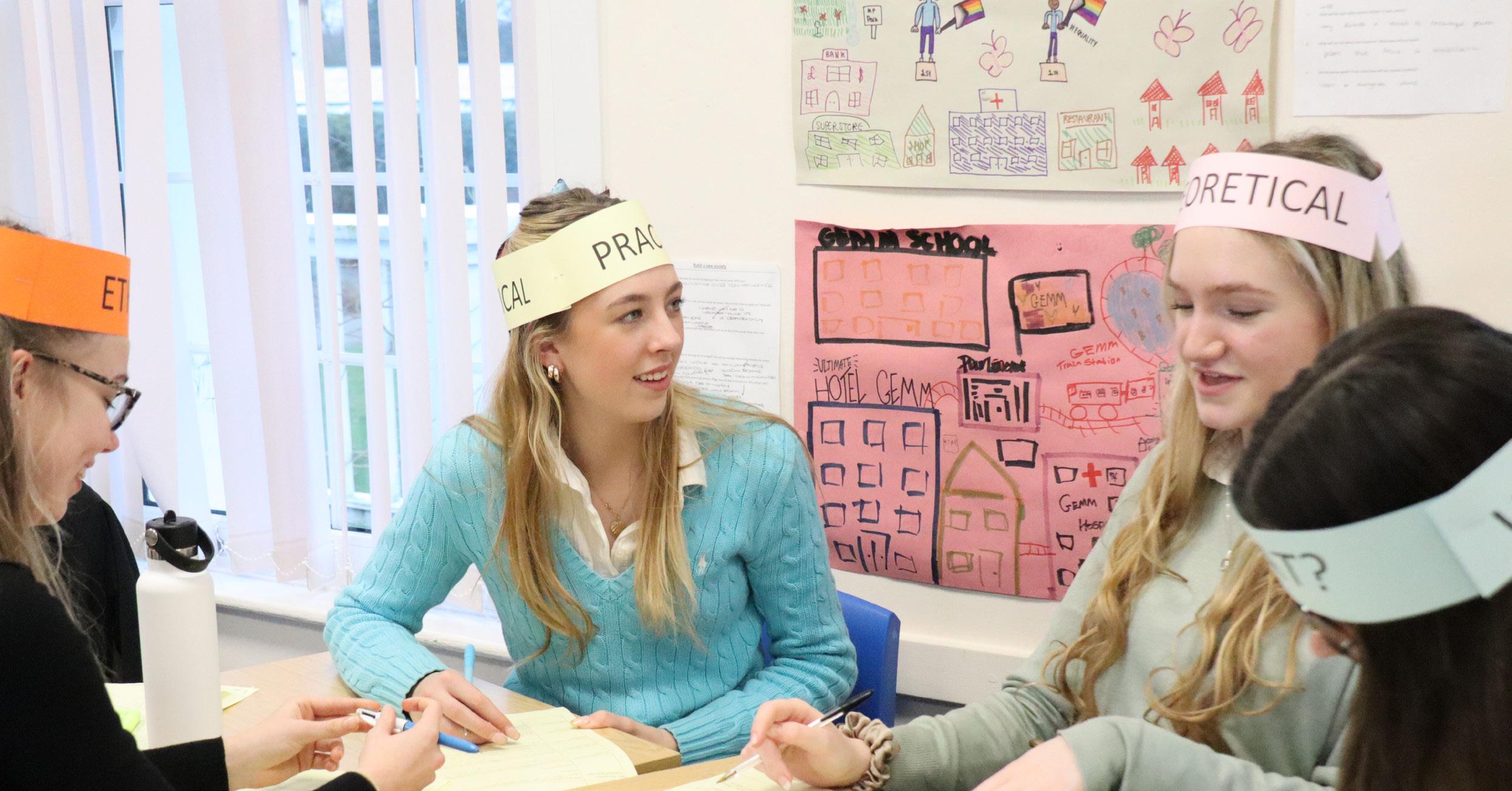
The study of Sociology will help you to understand how and why events in society occur and why we generally conform to shared ideas and practices in everyday life. You will develop the ability to present coherent arguments regarding many aspects of our social world, in addition to practical skills that will benefit all of your chosen courses of study.
In Year 12, you will study:
• Education with Research Methods: exploring the role and purpose of education, achievement by different social groups, and how sociologists carry out research.
• Families and Households: examining the changing role of the family, gender roles, and demographic changes.
This year provides the foundations of sociological theory, research methods, and key concepts to prepare you for more advanced topics in Year 13.
In Year 13, you will build on your knowledge with more in-depth units:
• Crime and Deviance with Theory and Methods: studying patterns of crime, explanations for criminal behaviour, the role of law enforcement, and theoretical debates about how society is studied.
• Beliefs in Society: examining religion, secularisation, fundamentalism, and the role of beliefs in social change.
You will also focus more on sociological theory and methods, bringing together the skills needed for the final examinations.
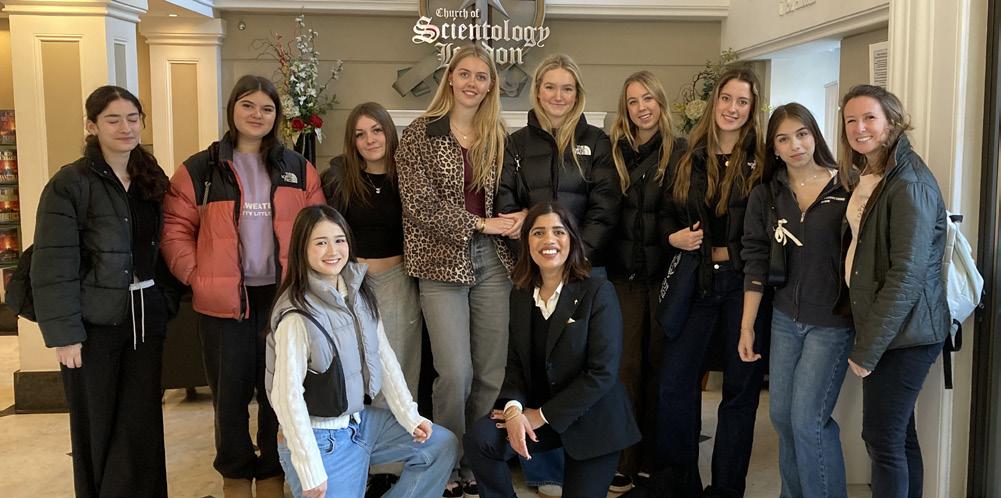
Year One
Paper 1
Paper 2
Year Two Assessment
Paper 1
Education and with Methods in Context
Research methods and Families and Households
Written exam: One hour, 30 minutes. 60 marks (50% of AS Level)
Written exam: One hour, 30 minutes. 60 marks (50% of AS Level)
Paper 2
Education with Theories and Methods
Topics in Sociology: Families and Households and Beliefs in Society
Paper 3
Written exam: Two hours. 80 marks (one third of A Level).
Written exam: Two hours. 80 marks (one third of A Level).
Crime and Deviance with Theories and Methods
Written exam: Two hours. 80 marks (one third of A Level).
GCSE English Language and GCSE Mathematics at Grade 6 or above.
Sociology suits students who are curious about the world around them, enjoy asking questions about how society works, and like to challenge assumptions. It is a good fit if you enjoy discussion, critical thinking, and linking ideas to current affairs.
You will develop an understanding of how society is structured and how it changes over time. You will explore key issues such as inequality, education, crime, family life, and beliefs in society. You will also build skills in analysis, evaluation, research, and essay writing – all of which are highly valued by universities and employers.
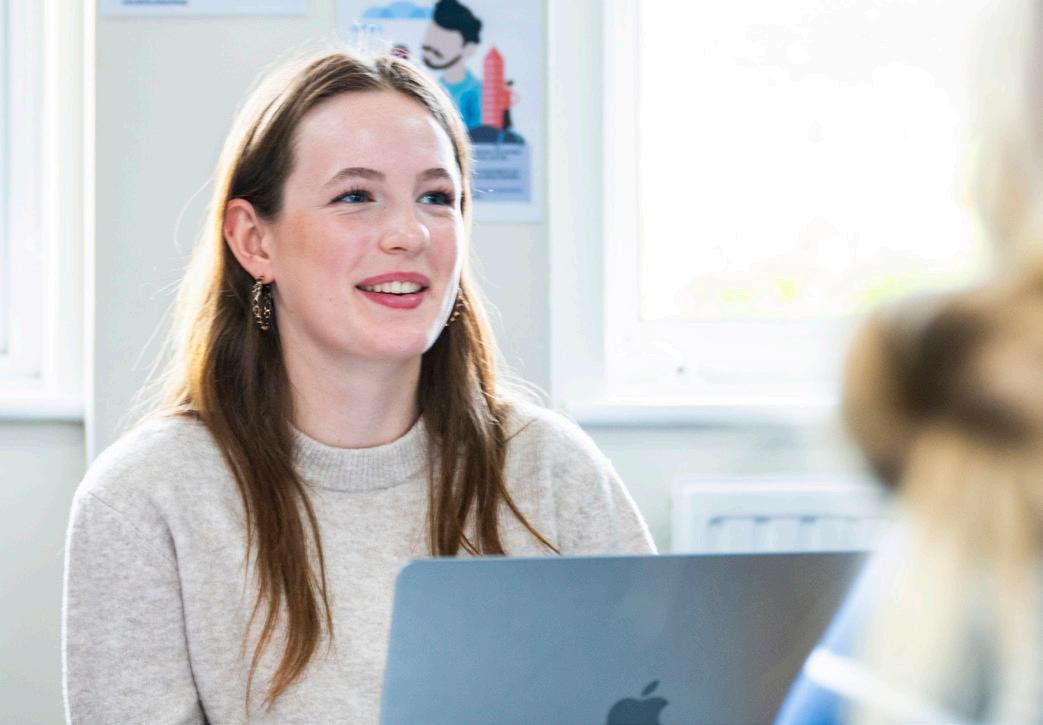
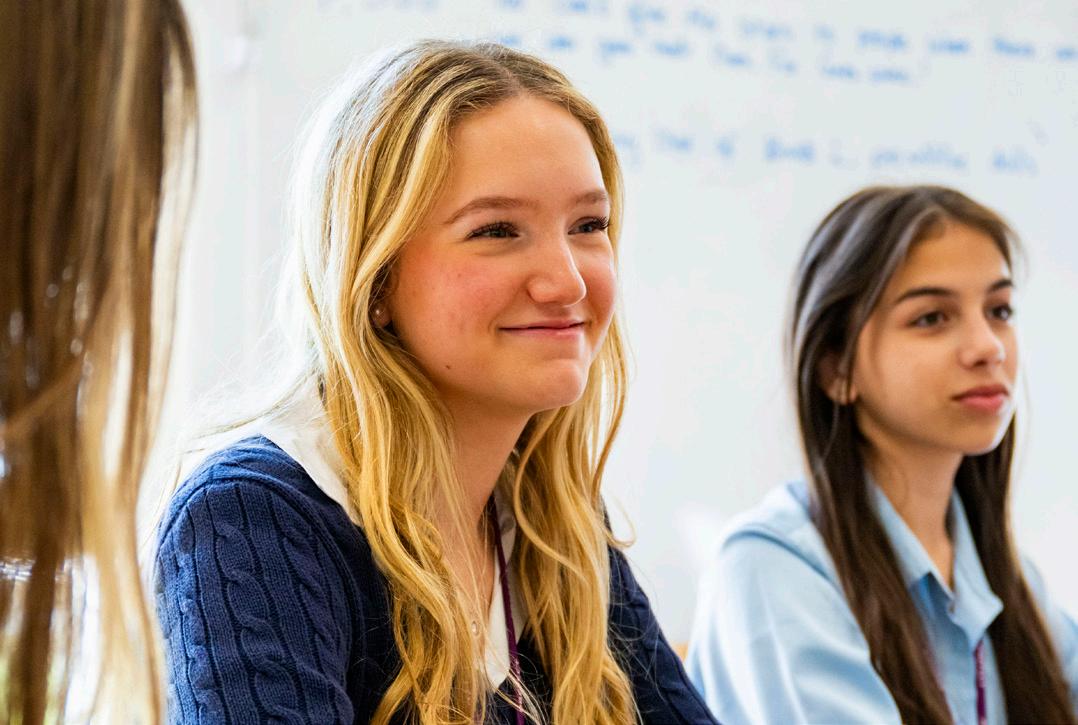
• Critical thinking and the ability to see issues from different perspectives
• Strong written communication for essays and examination answers
• An interest in current social issues and debates
• Analytical skills to assess evidence and sociological arguments
• Organisation and independent study habits to manage reading and revision
Sociology A Level is directly relevant (and advantageous, though not always compulsory) for careers in:
• Social work
• Probation and criminal justice services
• Youth and community work
• Teaching (especially social sciences, citizenship, or PSHE)
• Policy and research roles in government or charities
• Journalism and media focusing on social issues
There are no compulsory residential trips for Sociology. There is an opportunity to go to the Church of Scientology and the London Dungeons in the Autumn Term for Year 13 students. Cost varies according to numbers of students attending the trip but it can be between £30-£80 per year.

Spanish is the fourth most commonly spoken language in the world. With over 400 million speakers, Spanish is an official language on four continents and is the mother tongue in 21 countries.
Apart from the obvious benefit of being able to communicate in a different language, the practicalities of studying a language will help improve your communication and critical thinking skills and have a positive impact on your other studies.
In Year 12, we will explore a range of topics related to Spanish culture and society, including modern and traditional values, cyberspace, equality, machismo and feminism, idols, cinema and television stars, as well as Spain’s regional identity and its World Heritage sites. We will also examine either the film ‘El laberinto del fauno’ or the play ‘La casa de Bernarda Alba’. To enrich our learning experience, we will take a theatre trip to Spain to see the stage adaptation of the book we study.
Additionally, we may have the opportunity to take part in a cultural activity such as cooking and tasting churros or enjoying a tapas-tasting session.
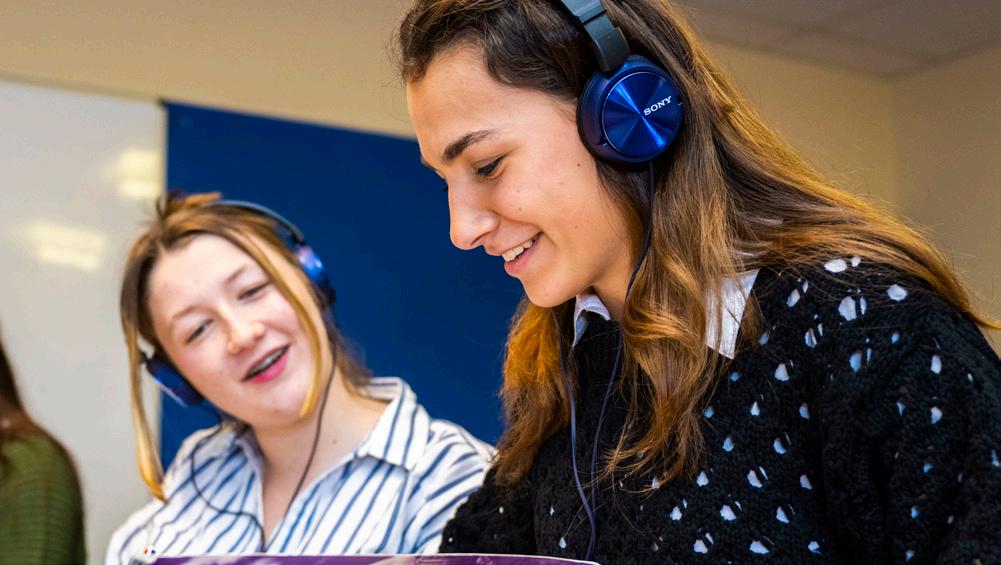
Entry requirements
Paper 1:
Listening, reading and writing
Paper 2: Writing
Listening and responding to spoken passages from a range of contexts.
Reading and responding to a variety of texts written for different purposes.
Translation into English (minimum 70 word passage).
Translation into Spanish (minimum 70 word passage).
Either one question in Spanish on a set text from a choice of two questions or one question in Spanish on a set film from a choice of two questions.
Paper 3: Speaking
Discussion of two sub-themes (6–7 minutes on each) with the discussion based on a stimulus card for each sub-theme.
Written exam: one hour, 45 minutes. 90 marks (45% of AS Level).
Written exam: one hour, 30 minutes. 50 marks (25% of AS Level).
Oral exam: 12-14 minutes.
60 marks (30% of AS Level) Year Two
Listening and responding to spoken passages from a range of contexts.
Paper 1:
Listening, reading and writing
Reading and responding to a variety of texts written for different purposes.
Translation into English
Translation into Spanish (minimum 100 word passages for each).
Paper 2: Writing
Paper 3: Speaking
Either one question in Spanish on a set text from a choice of two and one question in Spanish on a set film from a choice of two or two questions in Spanish on set texts from a choice of two on each text.
Discussion of a sub-theme with the discussion based on a stimulus card (5–6 minutes).
Presentation (2 minutes) and discussion (9–10 minutes) of the Individual Research Project.
Written exam: two hours, 30 minutes. 100 marks (50% of A Level).
Written exam: two hours. 80 marks (20% of A Level).
Oral exam: 21–23 minutes.
60 marks (30% of A Level).
This course is ideal for students who enjoyed GCSE Spanish and achieved strong results. It suits those who are confident in their understanding of grammar, vocabulary, and basic conversational skills. Students with a keen interest in Spanish-speaking countries—their history, politics, music, film, and literature—and who are open to exploring diverse perspectives and global issues will find the content engaging. The course also benefits learners who are comfortable with self-directed research and independent study.
• Employability: Language skills are highly valued in fields like law, business, journalism, education, tourism, and diplomacy.
• University Access: A Level Spanish is respected by top universities and can support applications for a wide range of degrees.
• International Mobility: Opens doors to study, work, or travel abroad with greater ease and confidence.
• Students grow in confidence, independence and adaptability.
• Making connections between language, culture, and current affairs.
• Good grasp of Spanish grammar and syntax.
• Ability to learn and apply new vocabulary regularly.
• Self-motivation to revise, practice, and seek feedback.
• Research skills for the Independent Research Project (IRP).
• Time management and organisation.
Studying Spanish can open a wide range of exciting academic and career opportunities. You could pursue a degree in Spanish, Modern Languages, Linguistics, or Translation and Interpreting, or combine Spanish with other subjects such as Law, Business, History, or Politics in a joint degree. Knowledge of Spanish can lead to careers in international relations, diplomacy, and global business, as well as roles within multinational companies, NGOs, and government agencies where Spanish is a key asset. Through study abroad programmes, internships, or volunteering in Spain or Latin America, you’ll have the chance to immerse yourself in the culture, travel with confidence, and connect meaningfully with local communities. Learning Spanish not only enhances your CV with a highly valuable skill but also demonstrates to employers and universities that you are resilient, adaptable, and globally minded.
Theatre and cultural trip to Spain (approximately £650)



Young Enterprise is a Year 12 enrichment opportunity that empowers young people to set up and run a student company under the guidance of a business volunteer and the Business Studies department. Students make all the decisions about their business, from deciding on the company name, managing the company finance and selling to the public. This is an incredibly rewarding experience as participants gain practical business experience and skills, enterprising mindset and employability skills needed to help you build a successful future.
Students hold a weekly board meeting in which they discuss their agenda and work with their their team and adult mentor. Each team needs a wide range of skills and people in order to form a successful company.
• Managing Director
• Vice Managing Director
• Company Secretary
• Marketing Director
• Sales Director
• Human Resources Director
• Operations Director
• Finance Director
• Sustainability Director
• Technology Director

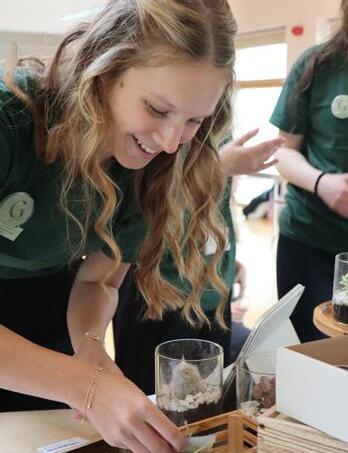

Throughout the year there are a number of selling opportunities where the team can put their selling skills into practice which includes events such as Dragons Den, Marlow Late Night Shopping, the School Christmas Fair and a Sunday trading day in the Eden Centre.
Towards the end of the academic year participants are given the opportunity to present their company at the Area Showcase where they can compete for a range of awards as well as the accolade of representing the High Wycombe Area against other local schools. We have an excellent track record of winning this accolade for the past four consecutive years, with a particular highlight being in 2019 when Bathe travelled to France as the UK Young Enterprise winners and compete in the European Finals.
Young Enterprise is a fantastic opportunity to work with new people, make new friends, develop a plethora of skills and gain an invaluable experience.
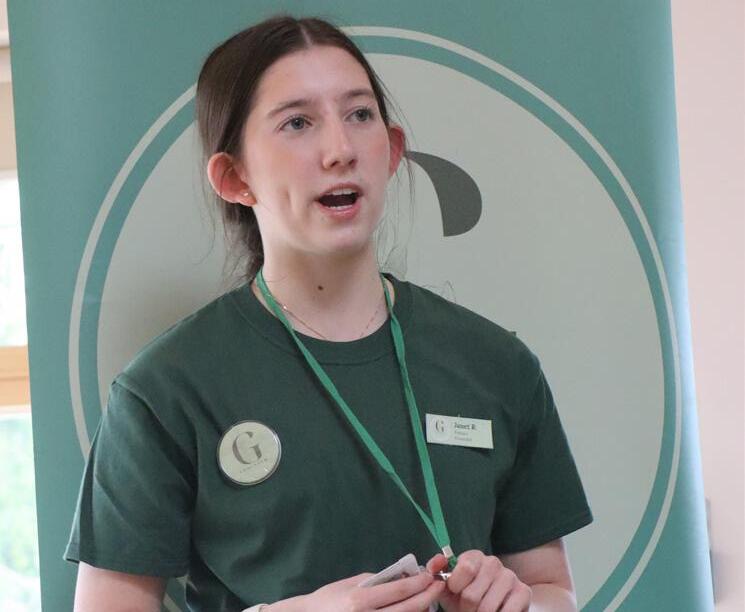
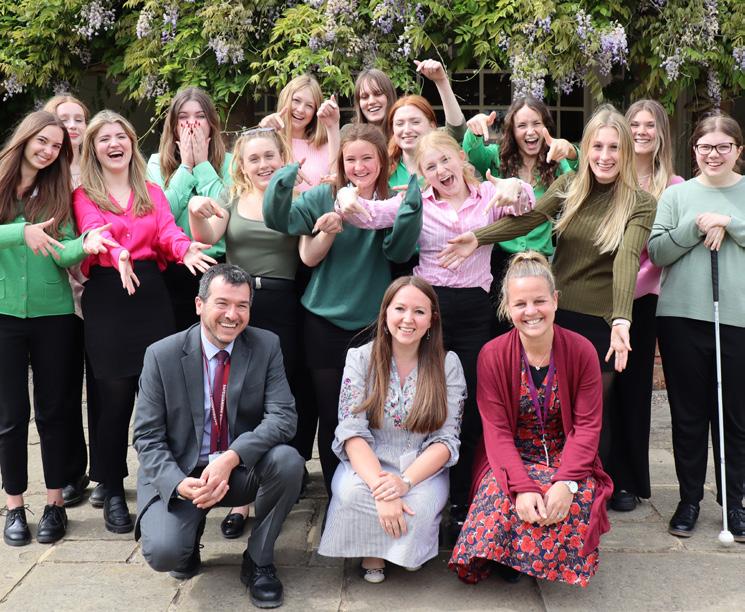

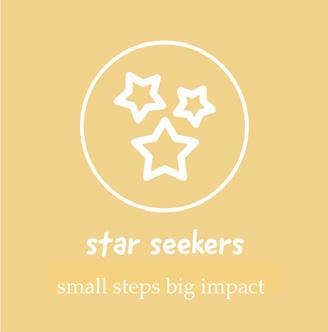
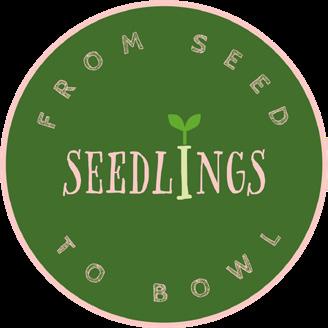



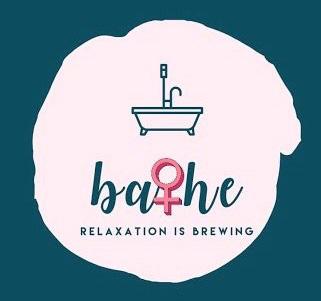
Our wider Sixth Form Curriculum enables all students to cultivate skills that extend far beyond the conventional curriculum
The EPQ is held in high-esteem by universities and carries UCAS points equivalent to half an A Level qualification. Students in the Lower Sixth have the opportunity to participate in this excellent course which involves either completing an extended essay (5,000 words). producing a performance piece (plus a 1,000 word report) or creating an artefact (plus 1,000 word report) in a subject area of their choice.
The course provides the context for critical thinking and project management skills which are widely transferable and assesses students’ ability to plan, carry out, report on and evaluate a project. During the EPQ, students will have taught skills lessons to support them with their academic writing, complete 90 hours of independent work, produce a 15-page log to accompany their project and give a presentation.
• Is AI the next breakthrough for medical developments?
• Should the Equestrian Industry’s ‘social licence to operate’ be revoked?
• Does the menstrual cycle affect women’s performance in sport?
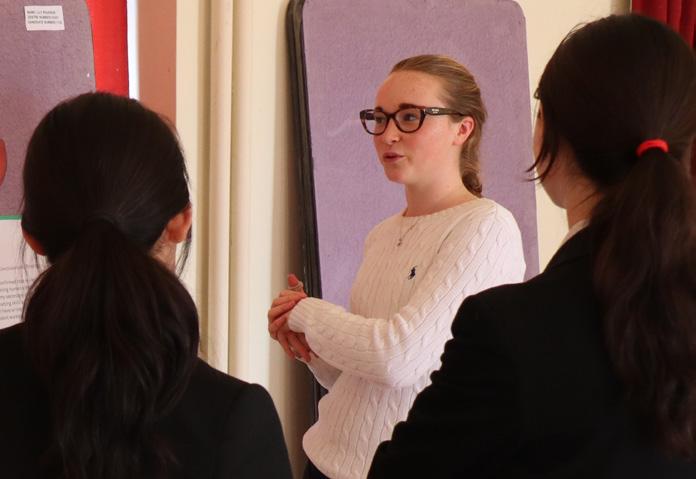
• Is Diplomatic Immunity Ethical?
• Should the UK adopt a codified constitution?
• Does the evolution of historical perspectives on ADHD inform current understanding and management of the disorder?
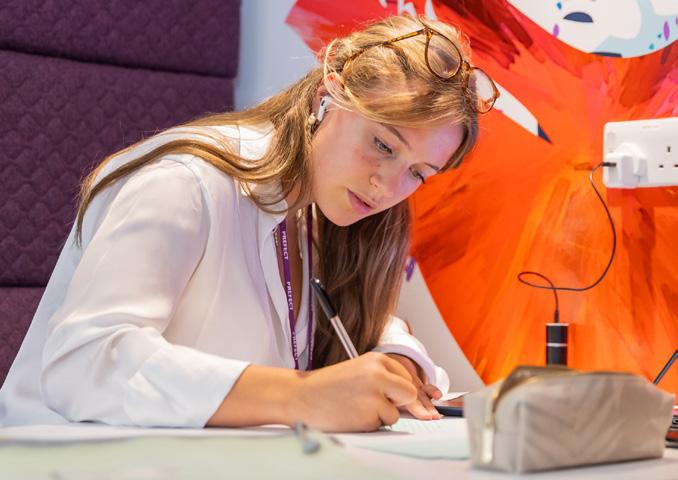
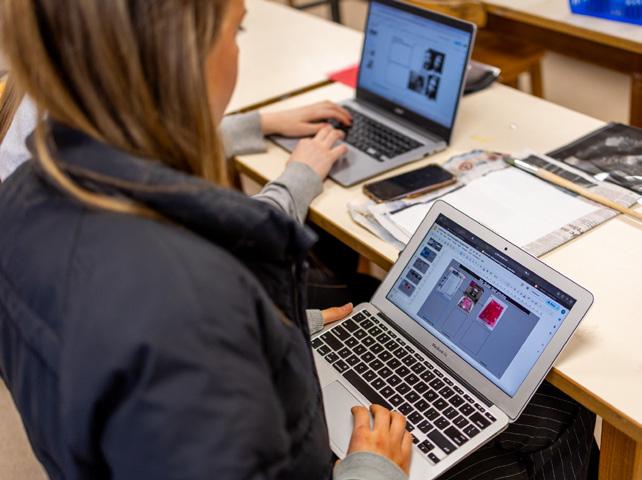
This course is designed to equip you with essential mathematical skills that will be invaluable in your future studies and career. Unlike traditional A Level Mathematics, Core Mathematics focuses on practical applications, real-world problems, and statistical analysis. You’ll explore topics such as data handling, probability, and financial mathematics and risk analysis, gaining a deeper understanding of how Mathematics impacts our everyday lives.
In addition, the course will naturally supplement the mathematical content within other popular A Levels such as Business, Psychology, Geography and the Sciences. It also comes with AS Level UCAS points or commonly reduced offers during the UCAS application process.
This Further Mathematics qualification is designed to fill the gap for high achieving students by assessing their higher order mathematical skills, particularly in algebraic reasoning, in greater depth, thus preparing them fully to maximise their potential in further studies at Level 3. It offers the opportunity for stretch and challenge that builds on the Key Stage 4 curriculum and is intended as an additional qualification to A Level Mathematics.
The content covers the areas of algebra and geometry, which are crucial to further study in the subject, in greater depth and breadth and focusses on improving the students’ problem solving skills. It also gives an introduction to calculus and matrices and develops further skills in trigonometry, functions and graphs.
Entry requirements | GCSE Mathematics at Grade 8 or above.
The University of Edinburgh
Arabic and Spanish | Finance and Business | Medical Sciences
University of York Environmental Sciences
University of Leeds
Food Science and Nutrition
German and Chinese | Nursing
University of Manchester Sociology and Criminology
Psychology | Midwifery Architecture | Finance
University of Liverpool Geography
University Centre Reaseheath Wildlife Conservation and Ecology
University of Birmingham
Biomedical Science | English Modern Languages
University of Warwick
Biomedical Science | History | Psychology
English and History | English and Creative Writing Philosophy, Politics and Economics | Sociology
Oxford Brookes University Architecture | Early Childhood Studies Engineering Equine Science | Physiotherapy
University of Oxford | Theology and Religion
Swansea University | Sport and Exercise Science | Zoology
Cardiff University Biomedical Science | Philosophy
University of Bristol Theatre and English
University of Bath Economics and Mathematics
Durham University Modern Languages and Cultures Anthropology and Archaeology
Newcastle University English Literature
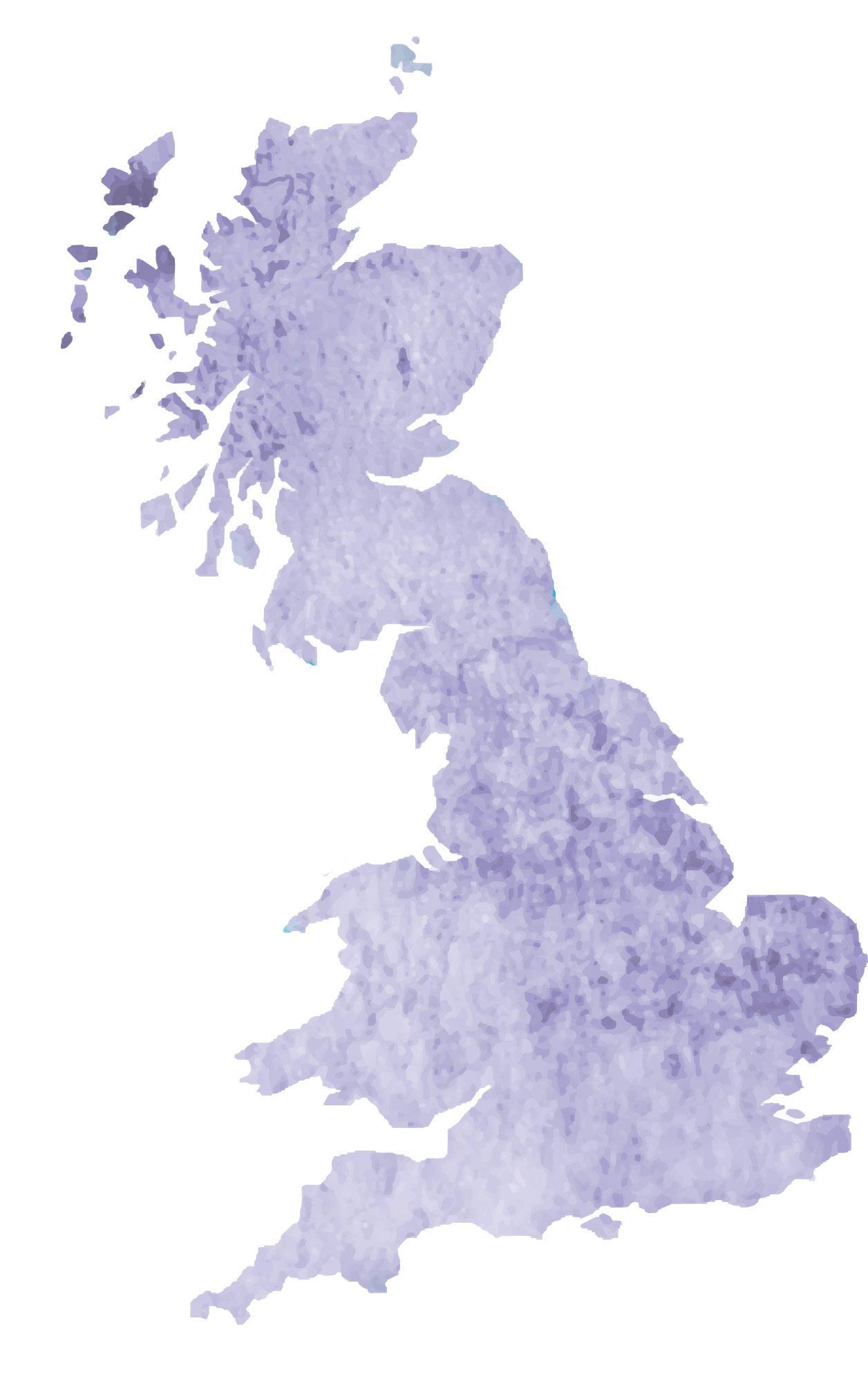
University of Exeter | Drama | English and Russian | Philosophy and Theology Sociology
Arts University Bournemouth Costume and Performance Design
University of Sheffield Politics and Sociology
University of Nottingham Biochemistry | Geography
Law | Mathematics and Economics
Loughborough University Business Economics and Finance Psychology | Textiles
University of Leicester Sociology | Politics
University of East Anglia History
University of Cambridge Medicine
Veterinary Science
Brunel University
Sports, Health and Exercise Science
Central St Martins
Art Foundation
Kings College | Adult
Nursing
Queen Mary University
English and Drama
Royal Holloway
University | Physics
Royal Academy of Dance | Dance
UCL | History | Philosophy and History of Art
University of the Arts
London | Graphic Design and Communications
University of Kent | Criminology
University of Reading Architecture | Geography
University of Portsmouth International Business
University of Southampton Computer Science Geography Languages and Contemporary European Studies
A selection of our leavers’ destinations between 2020 and 2025 and their courses of study
